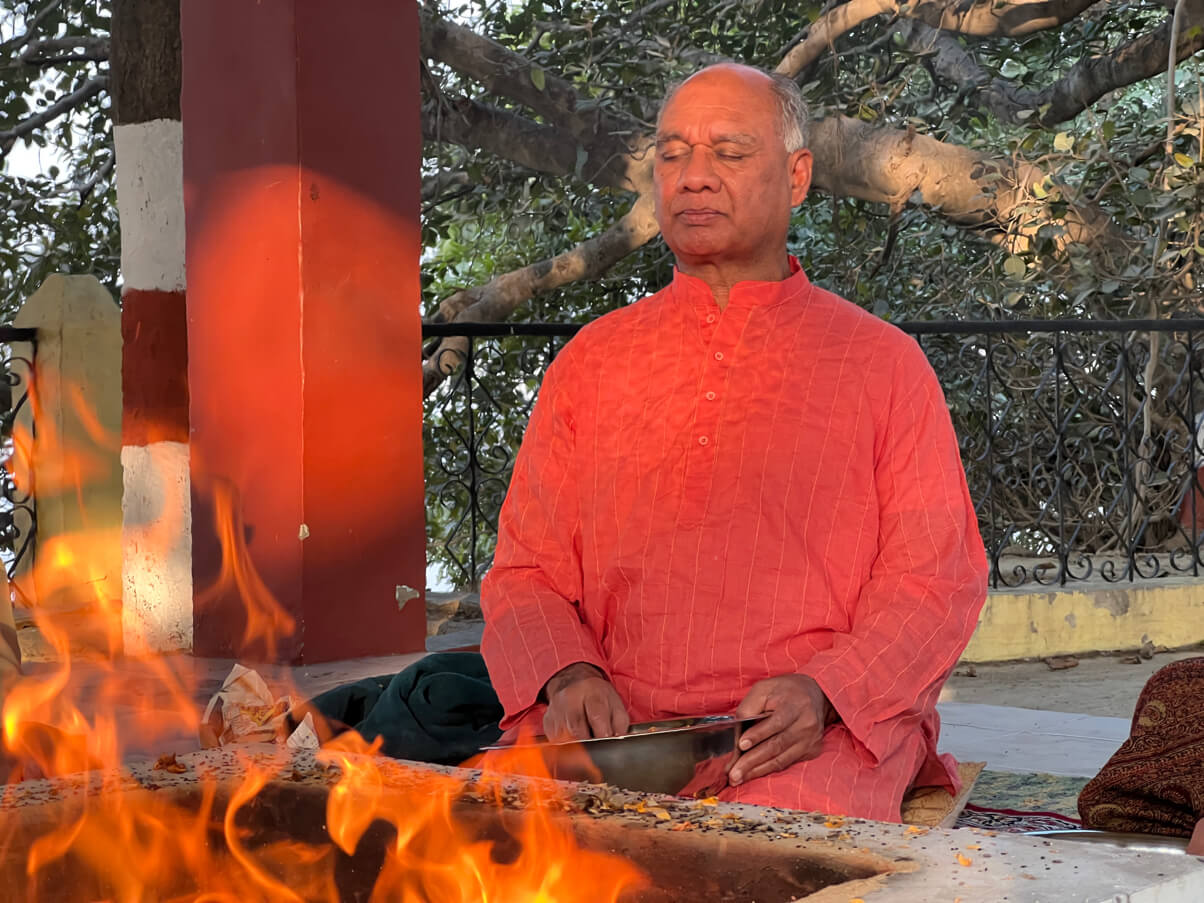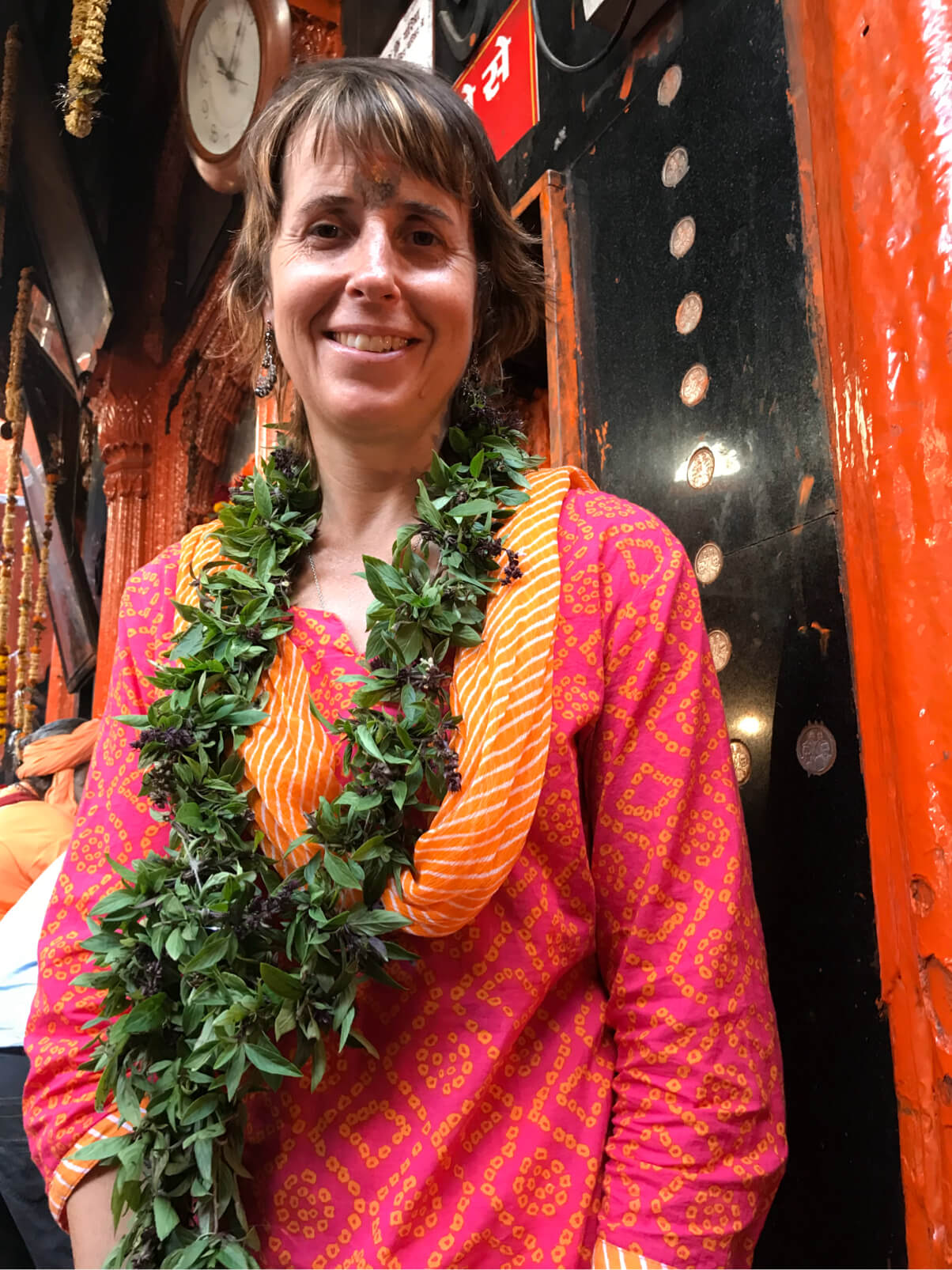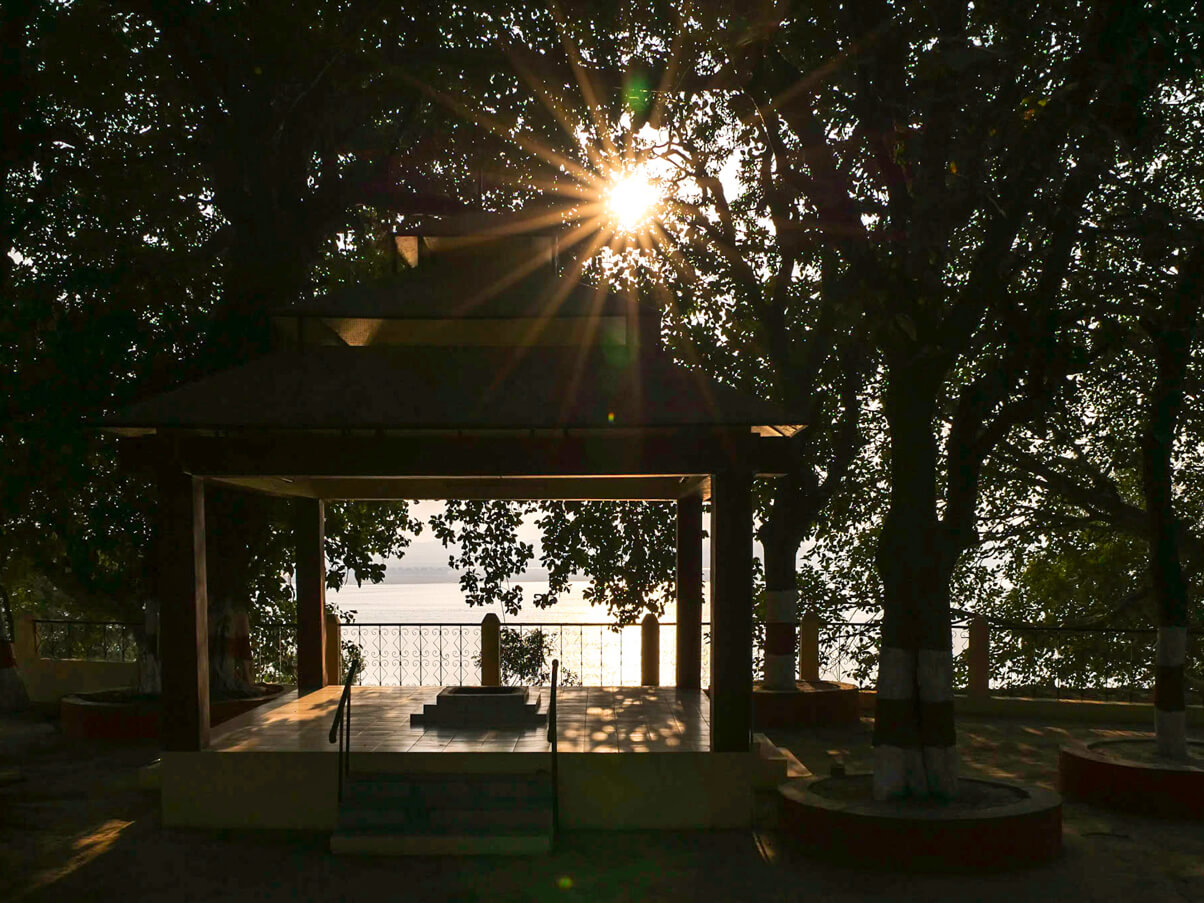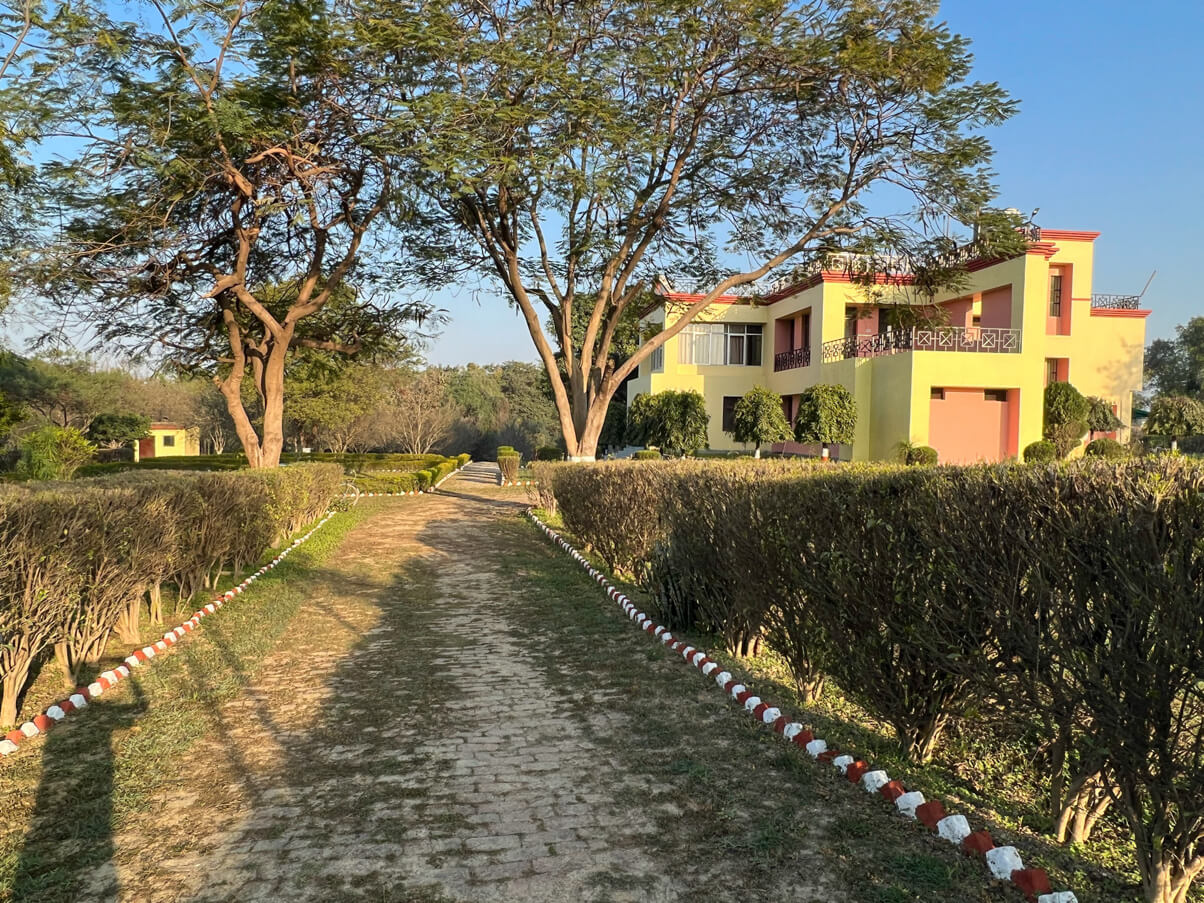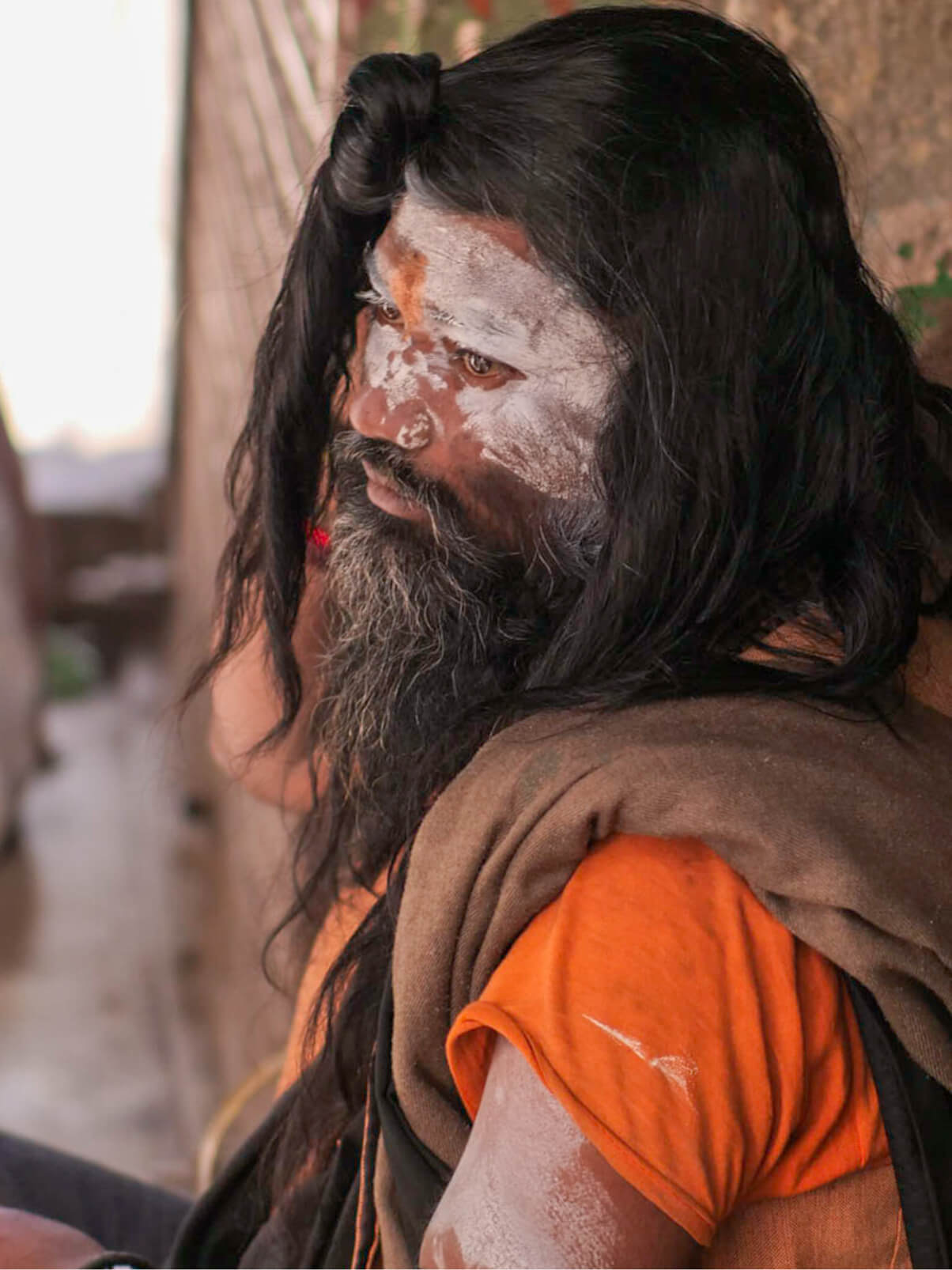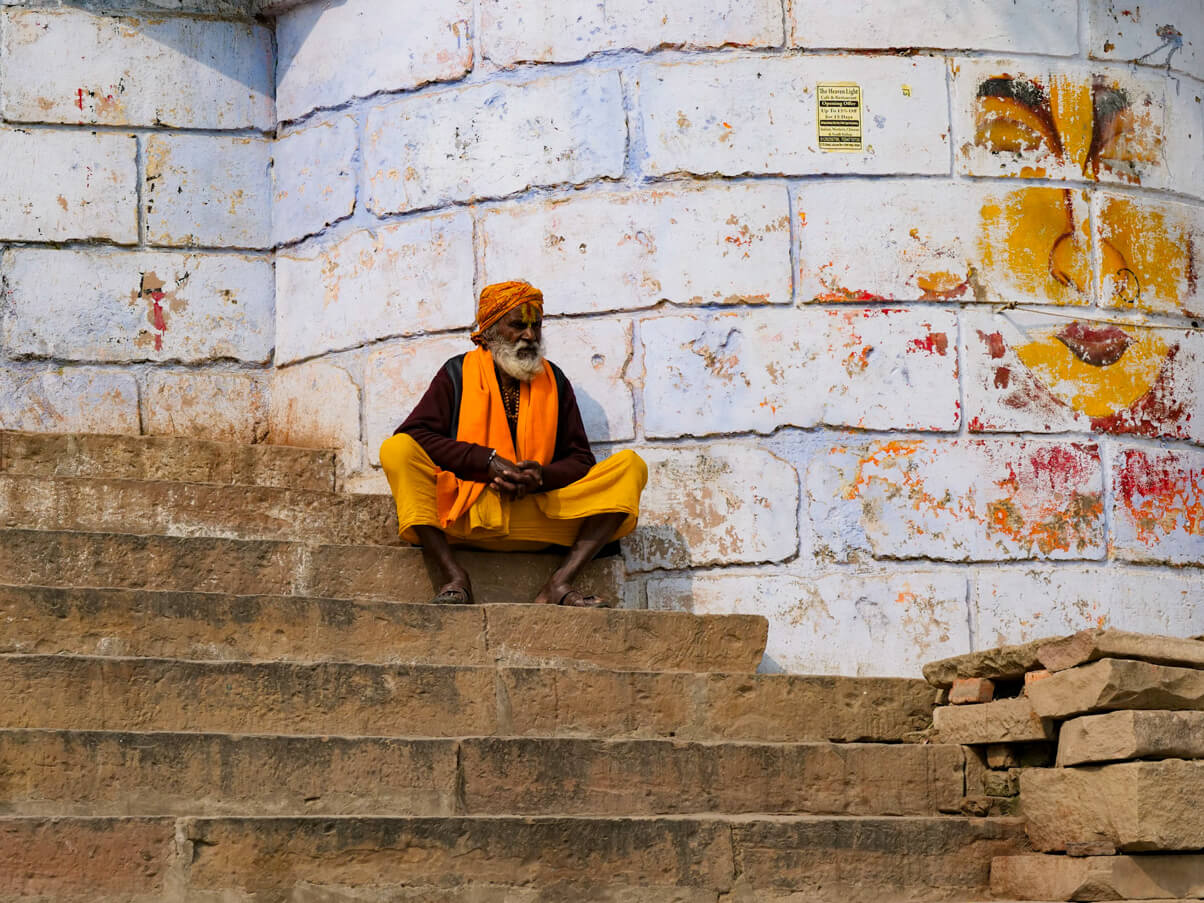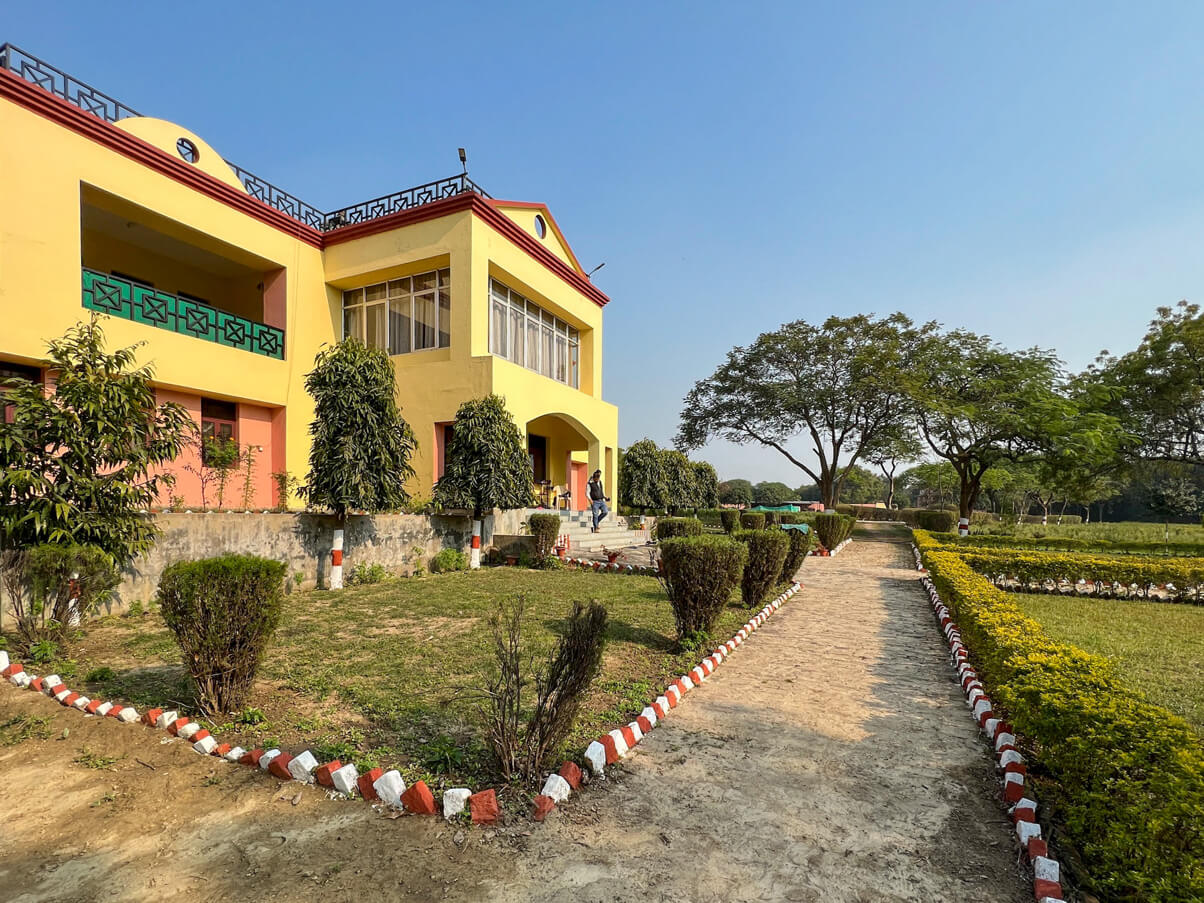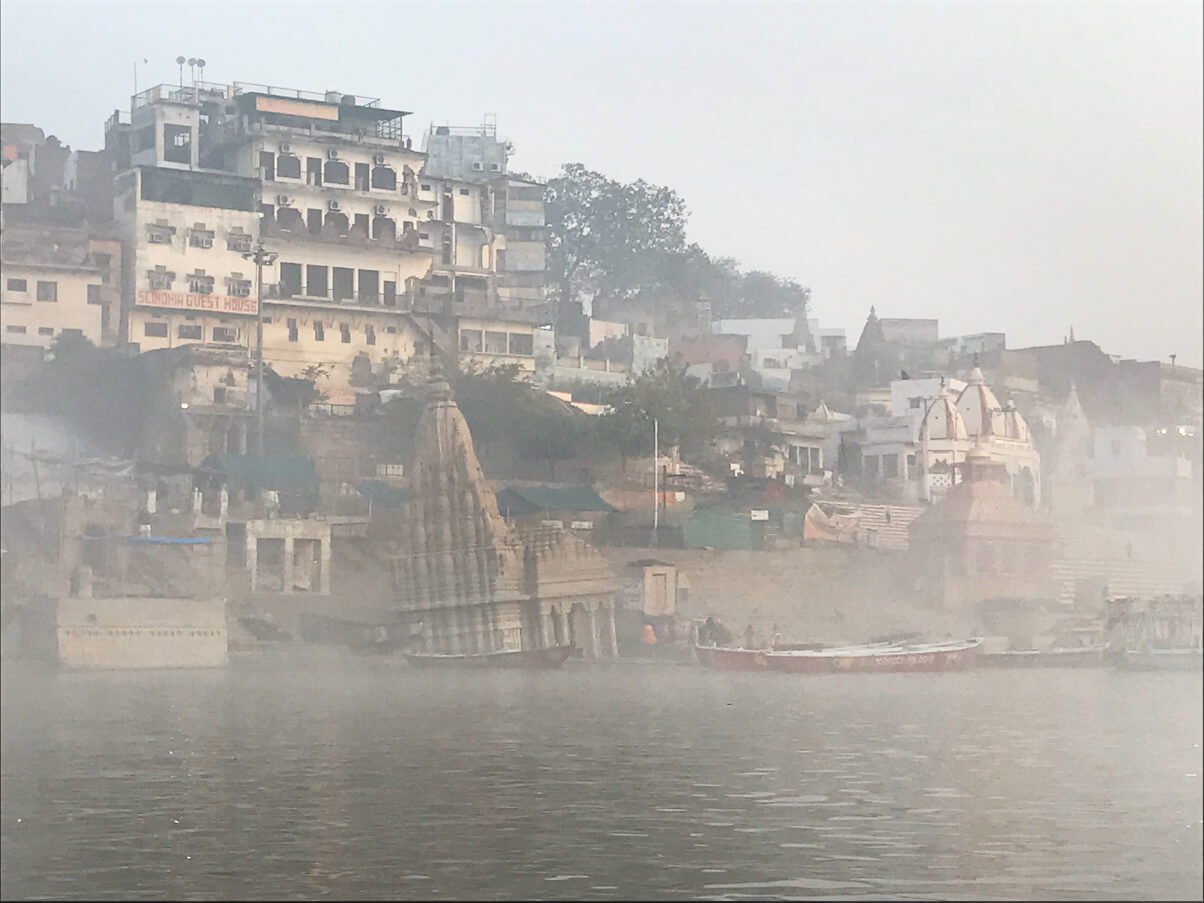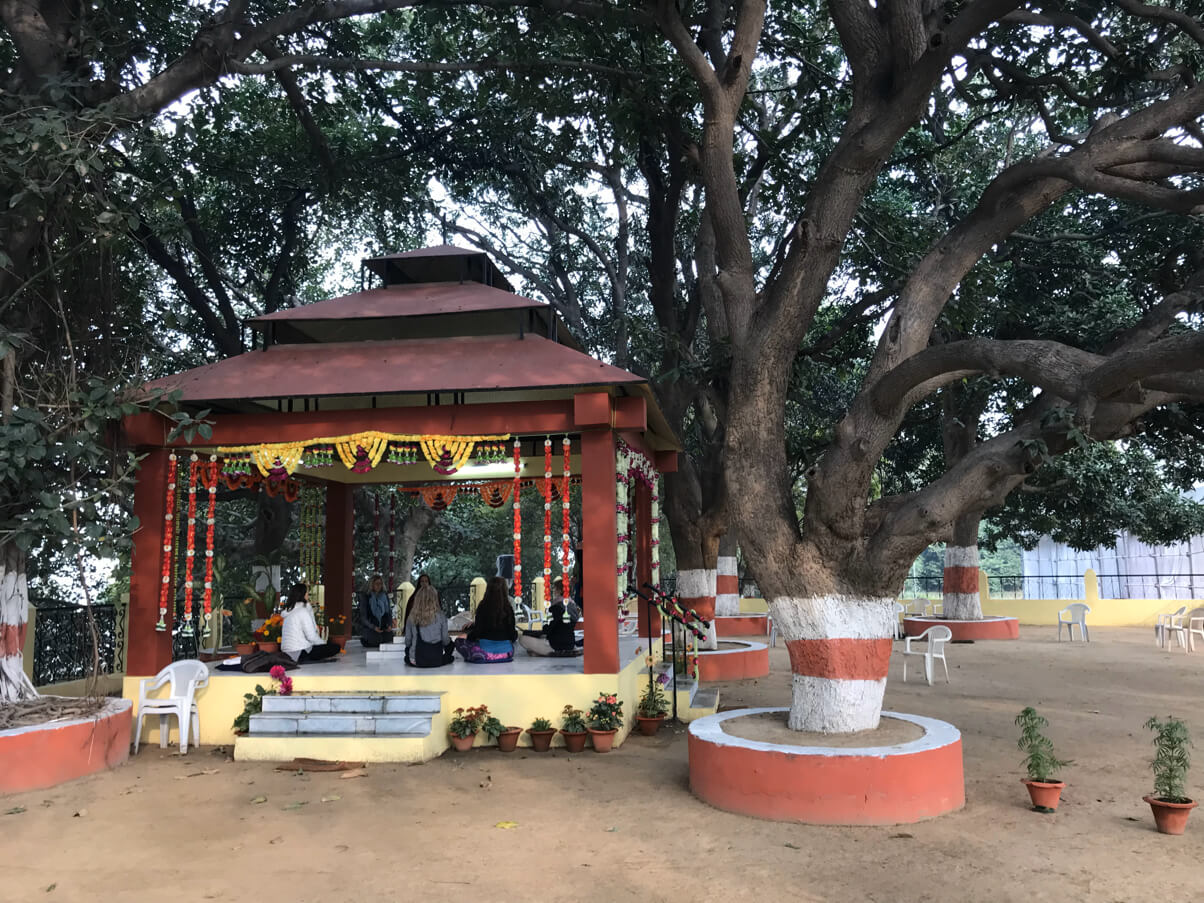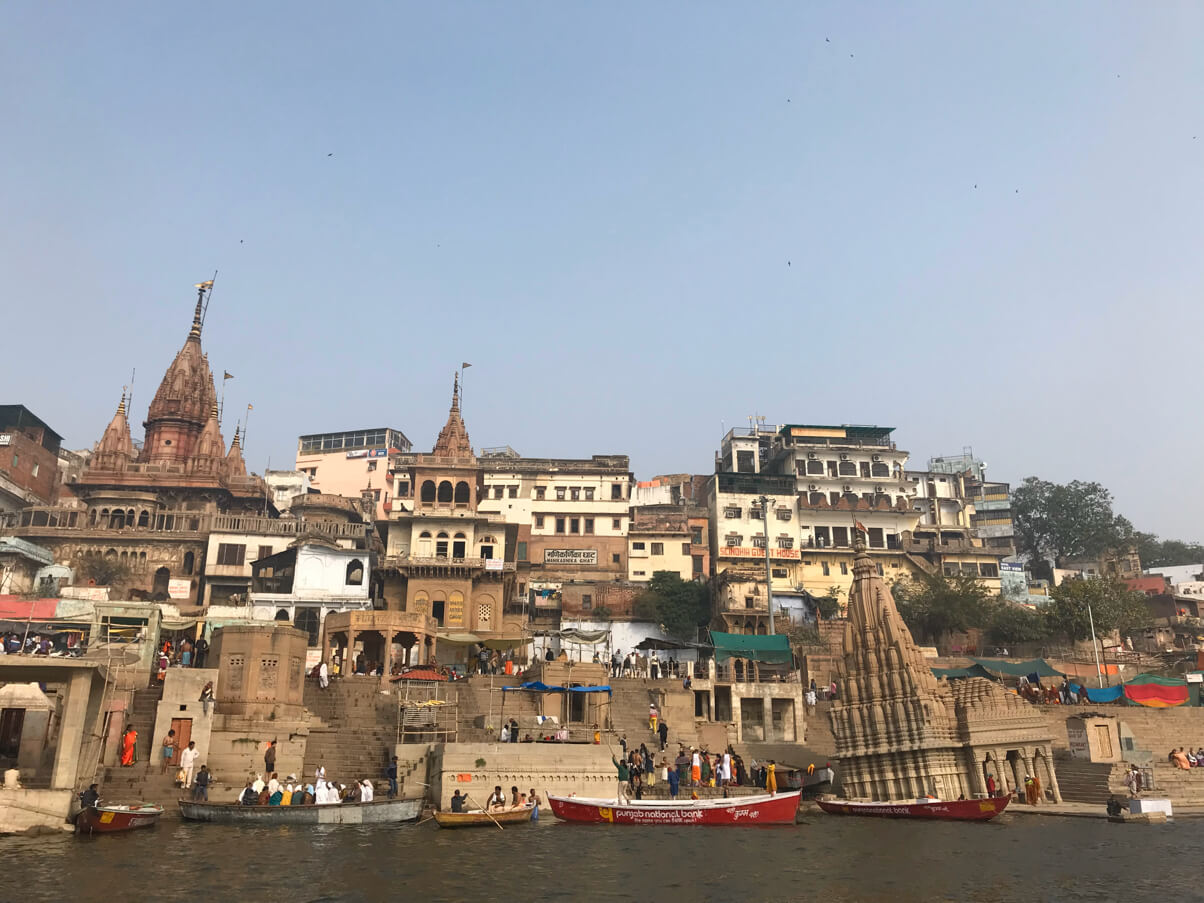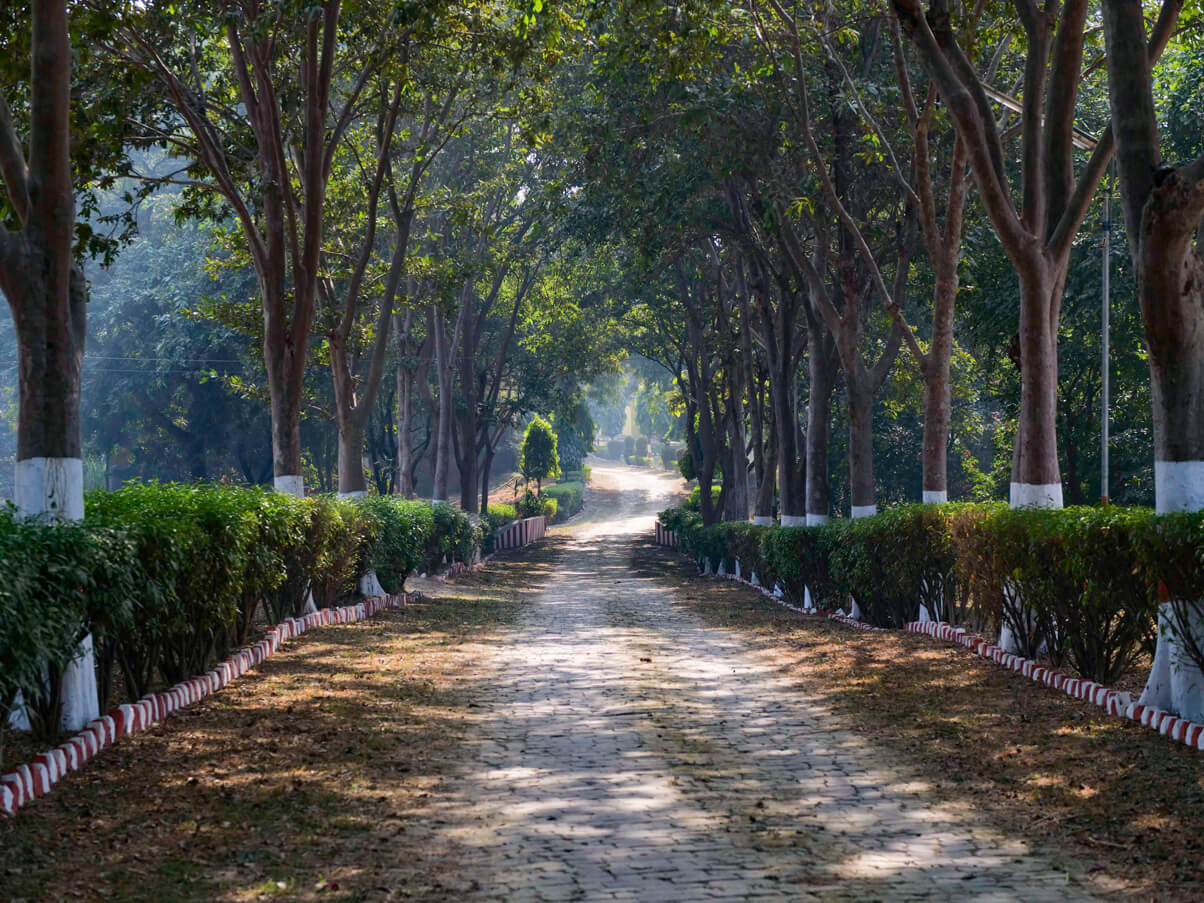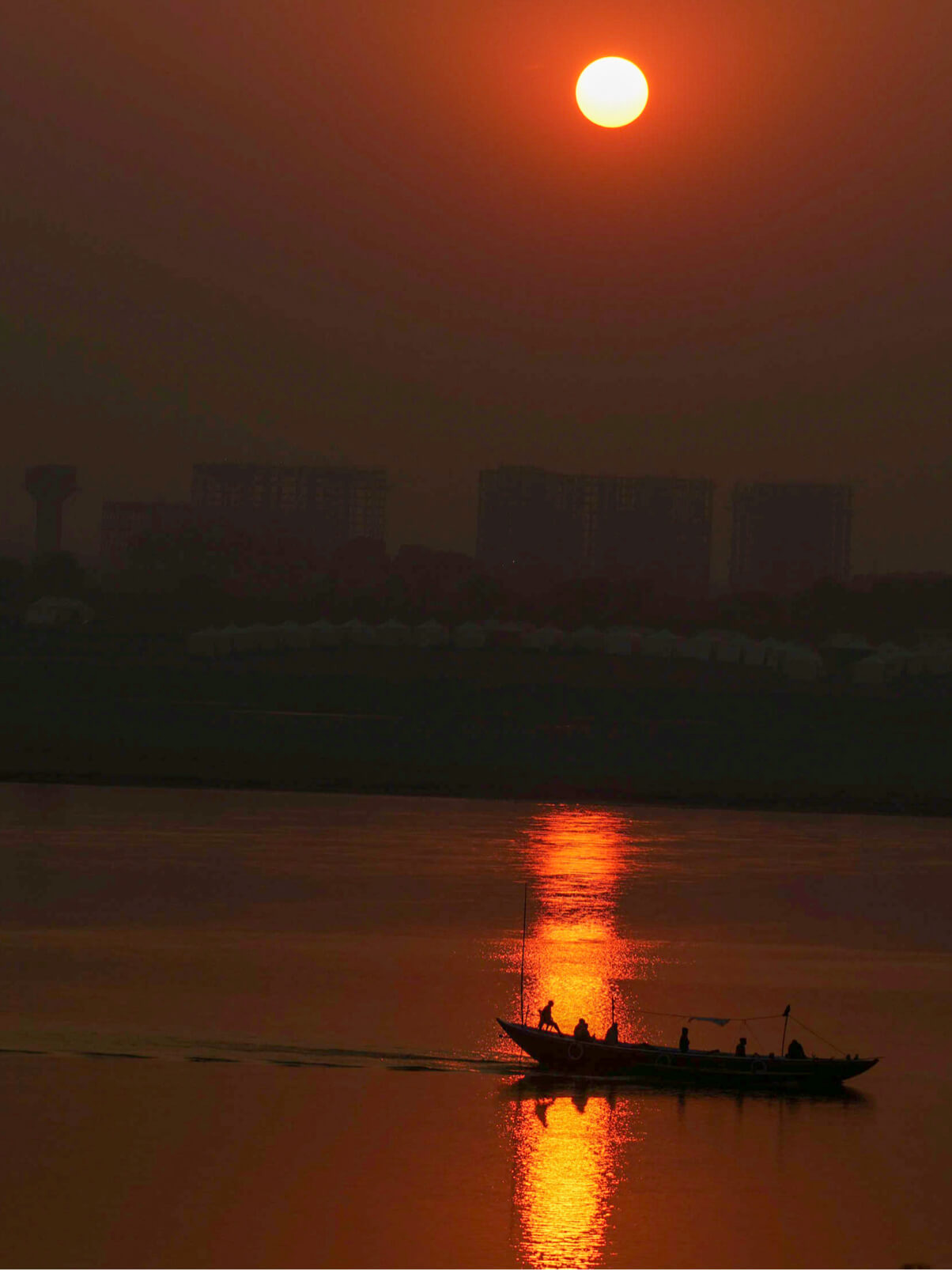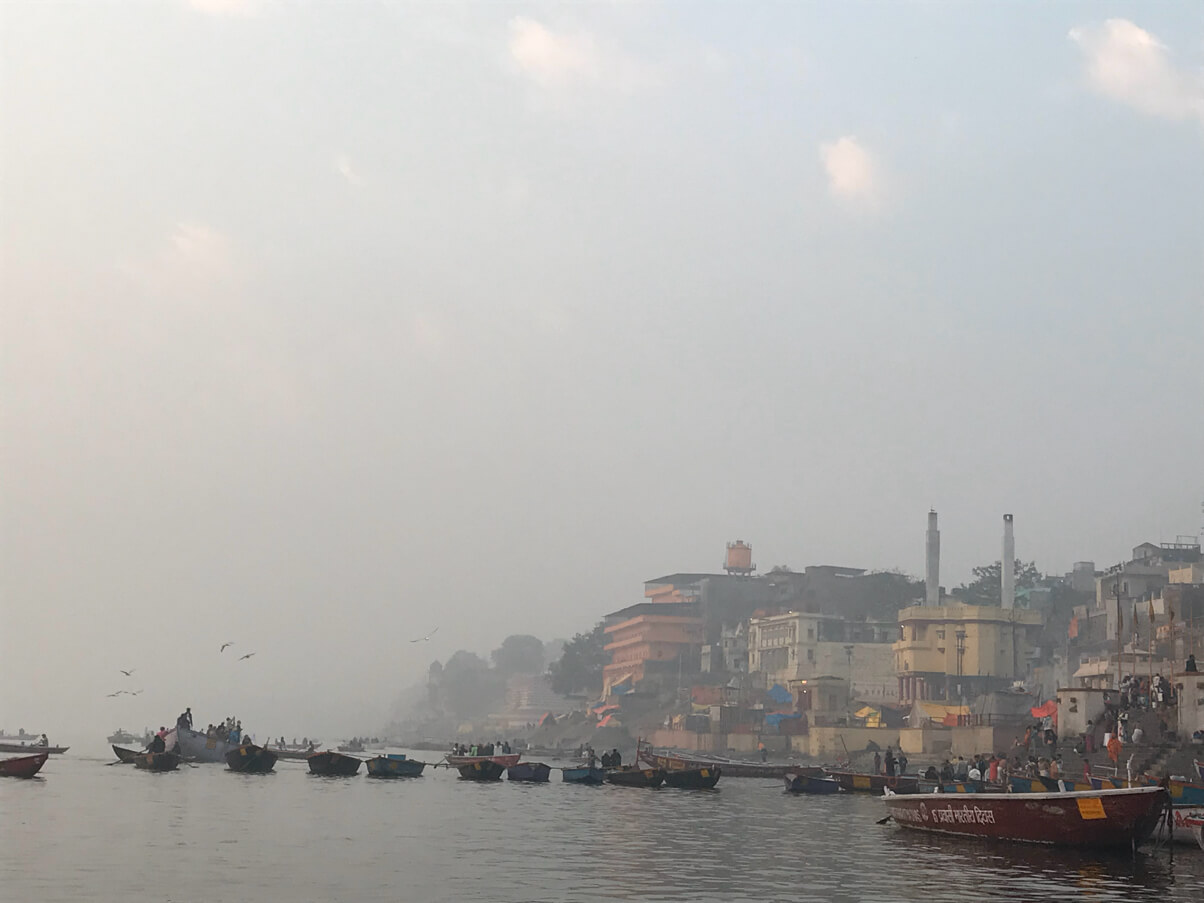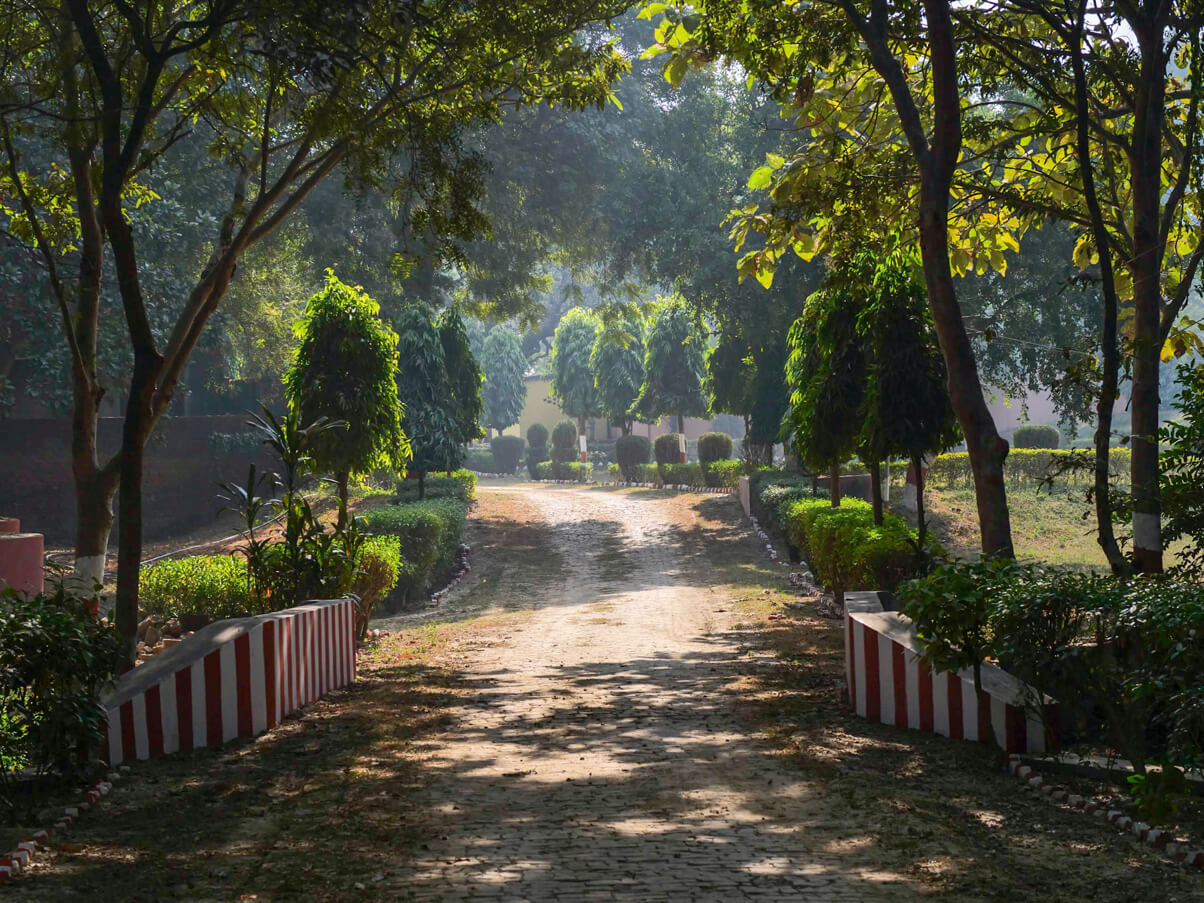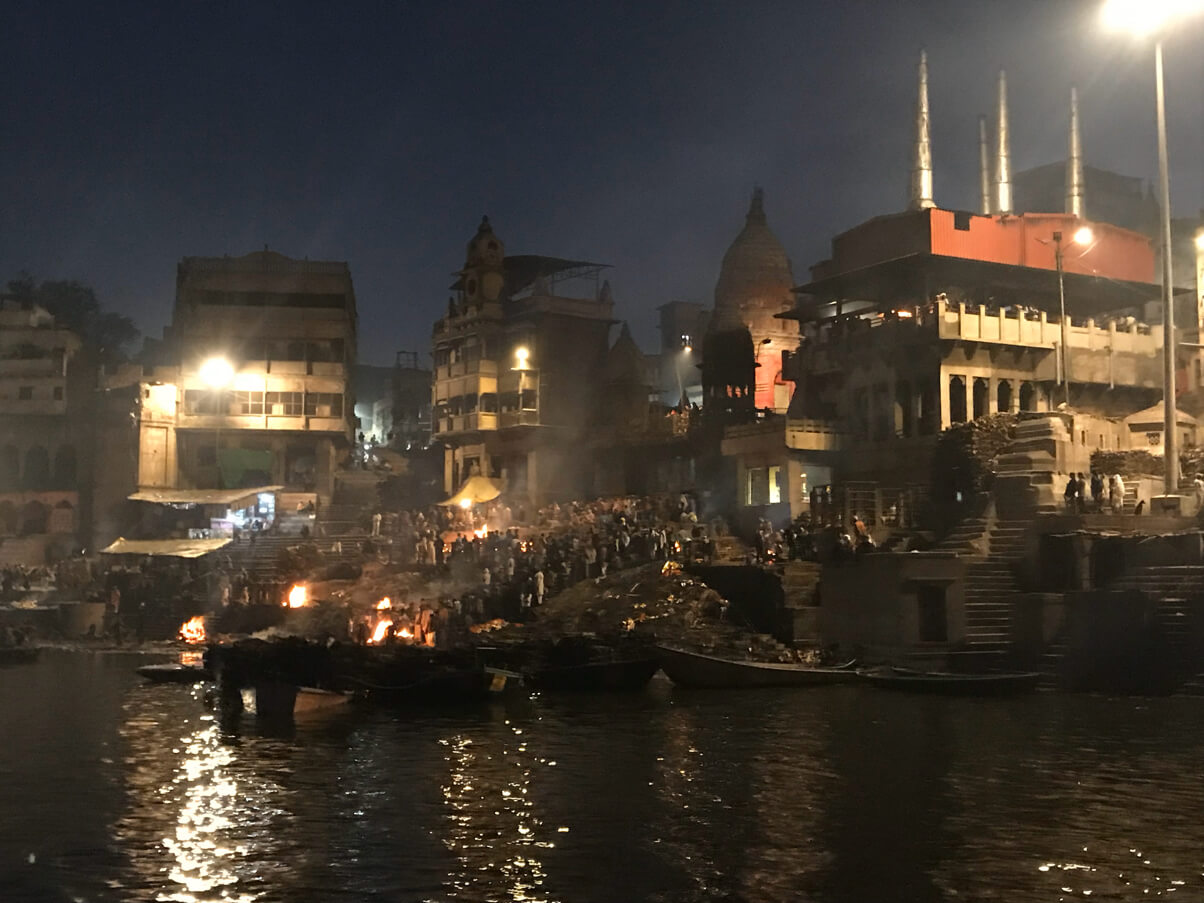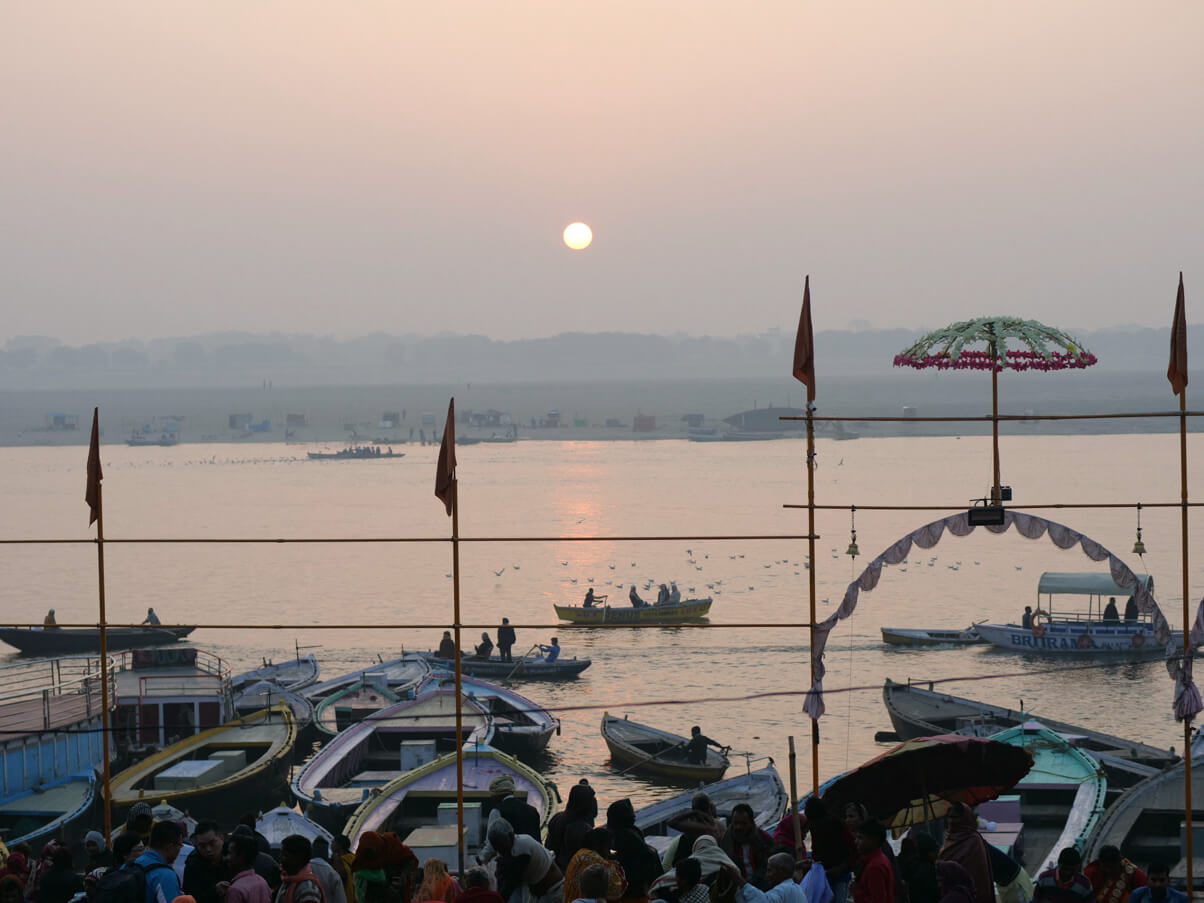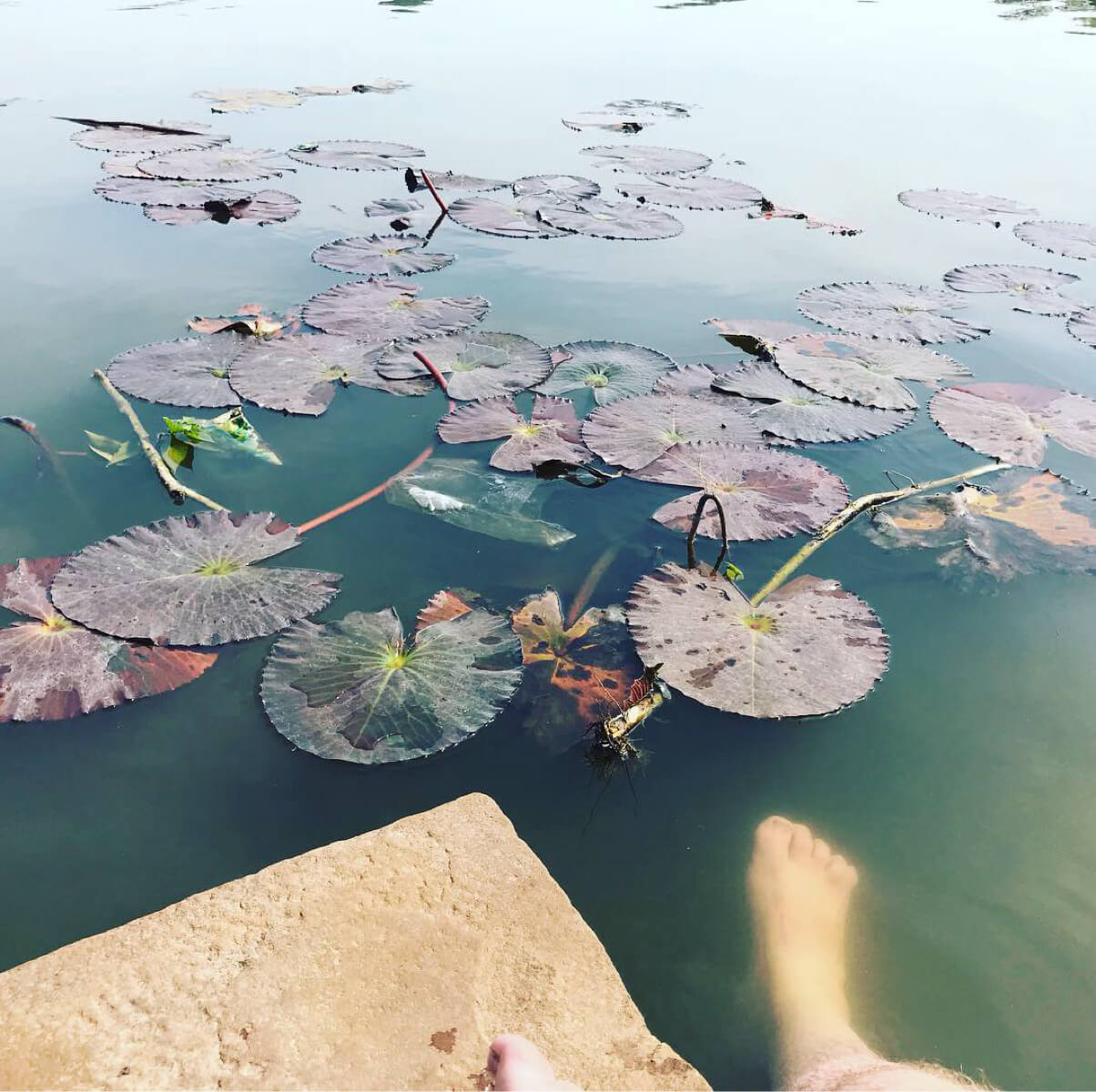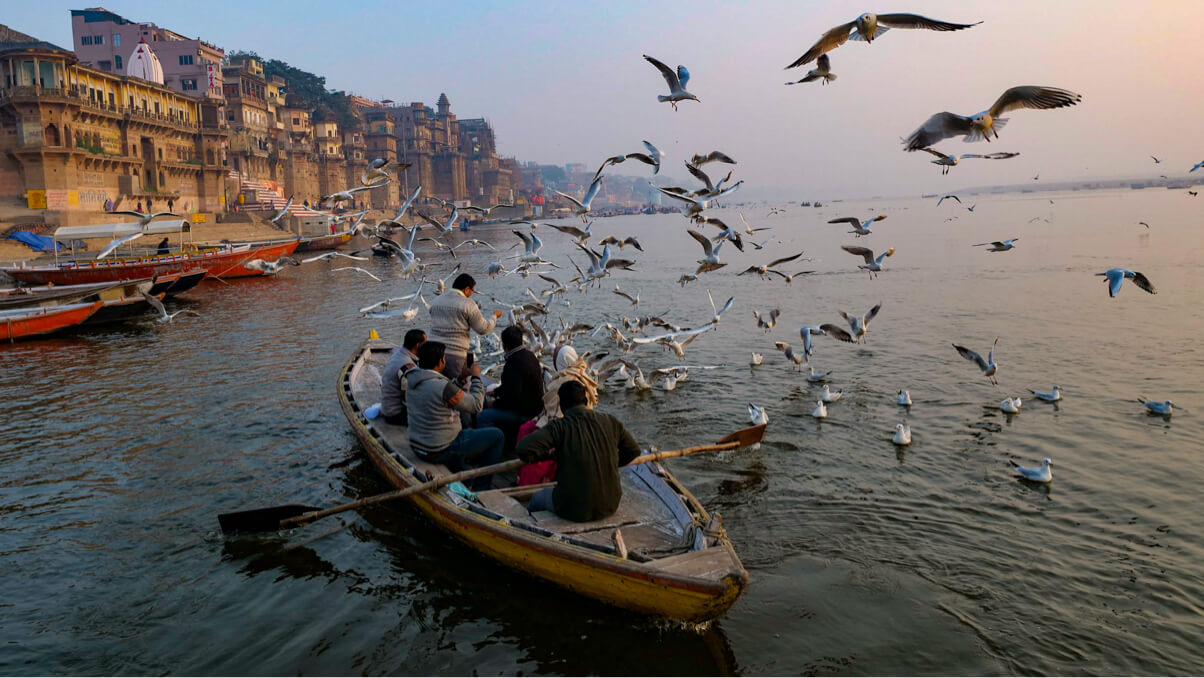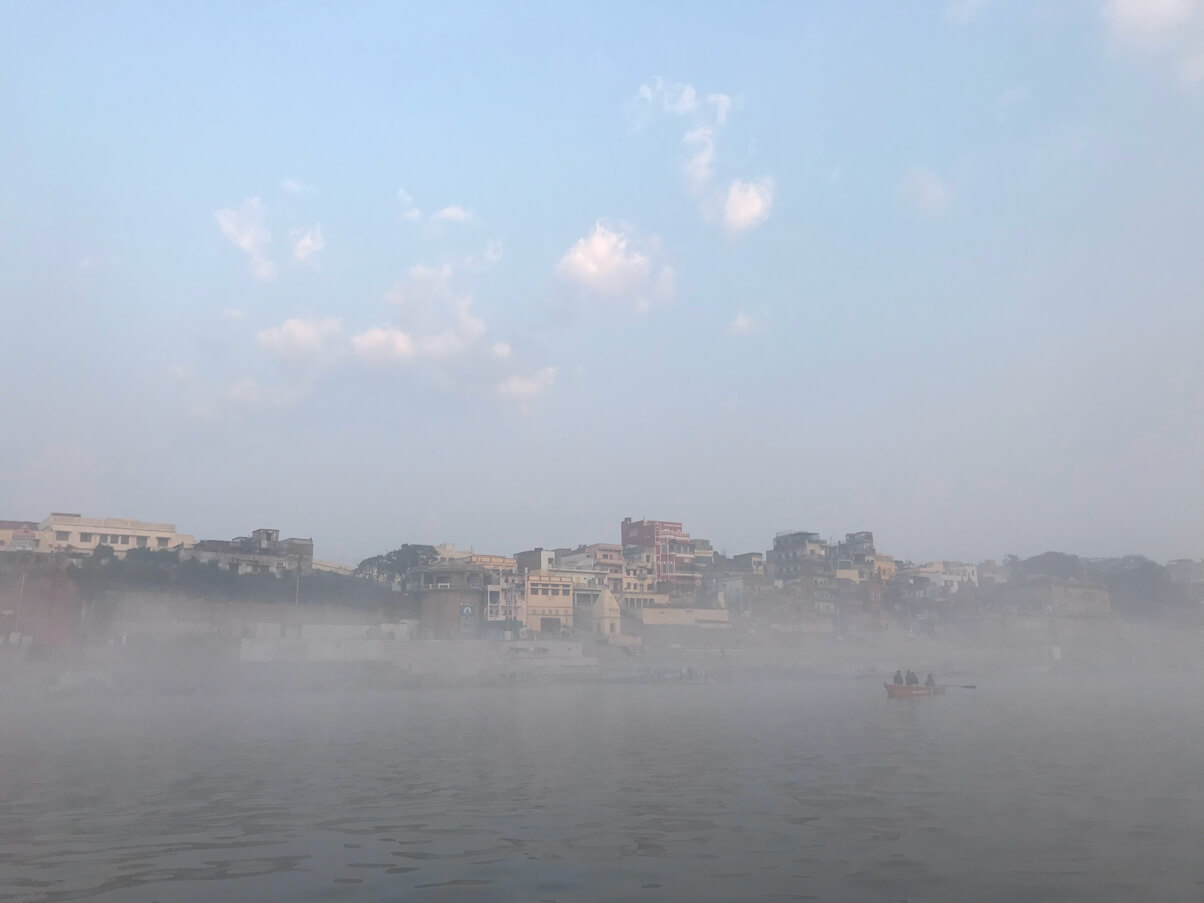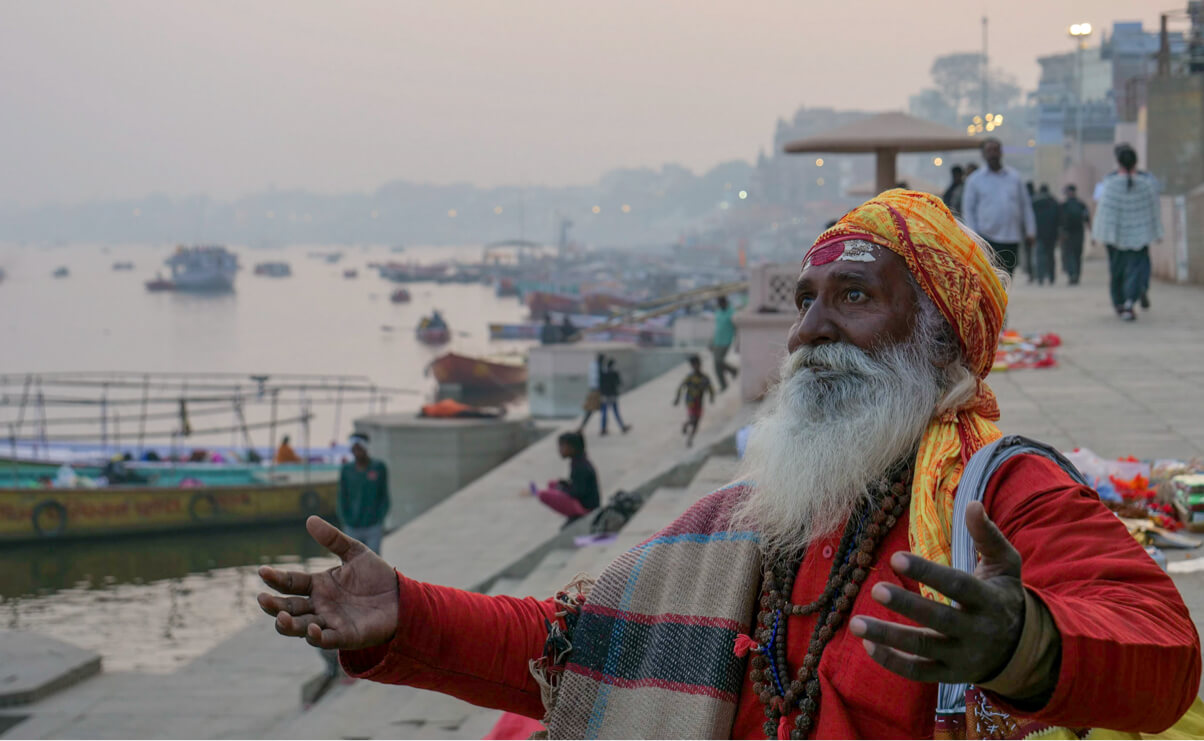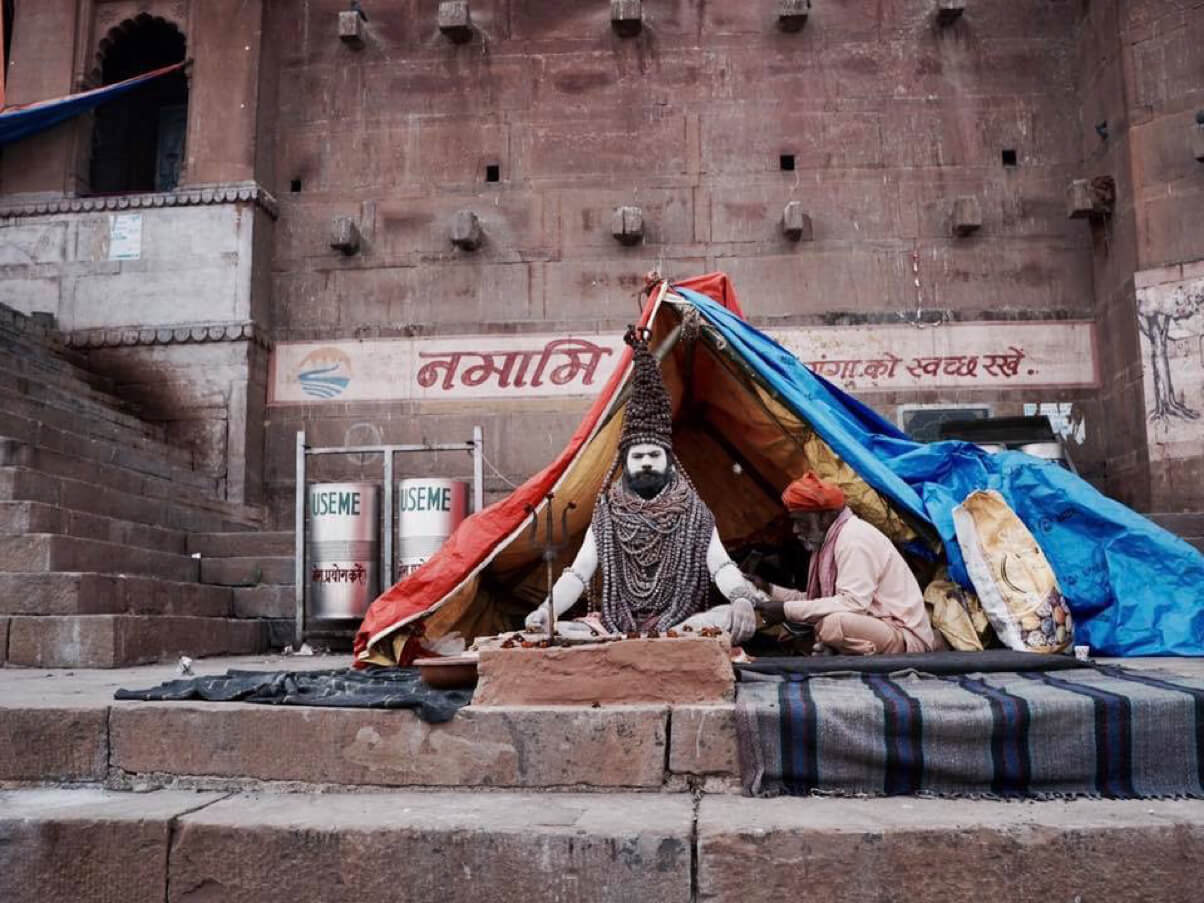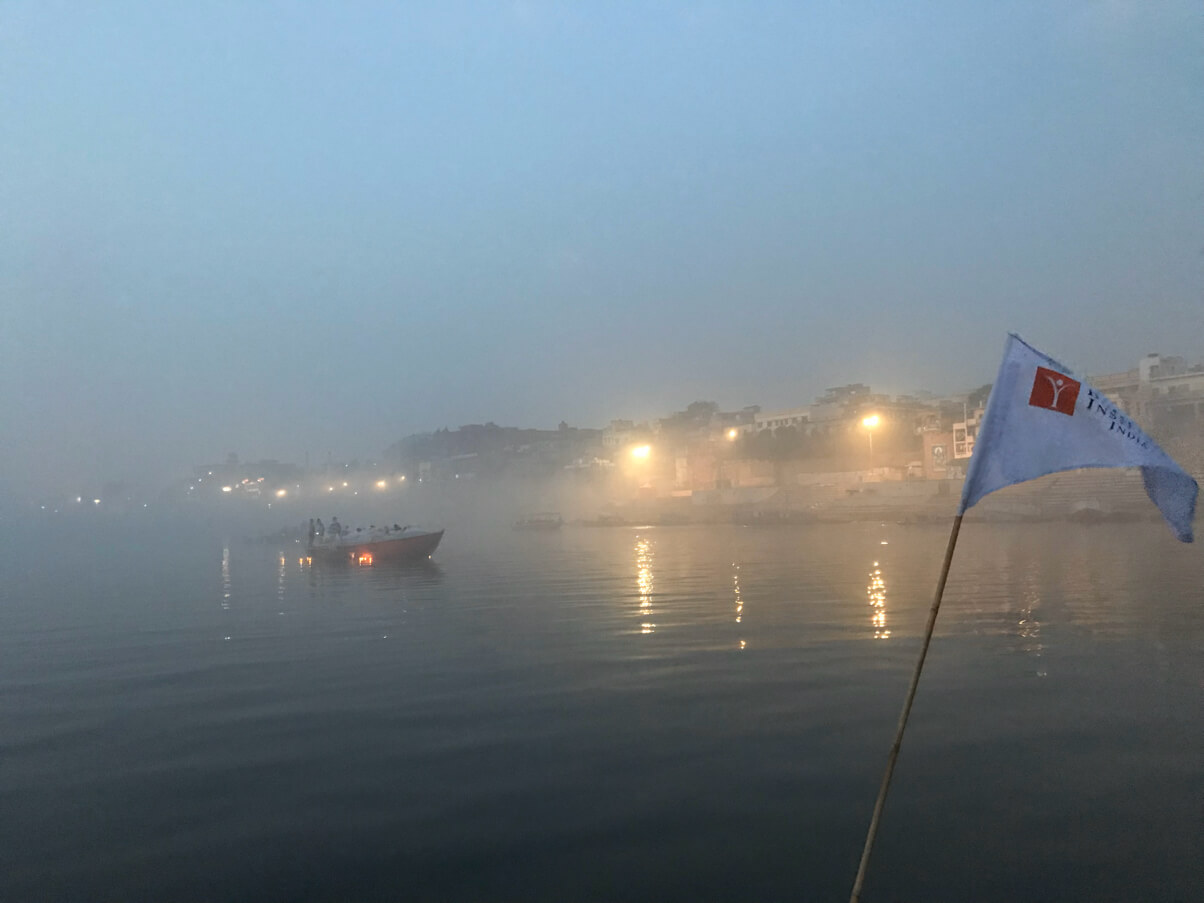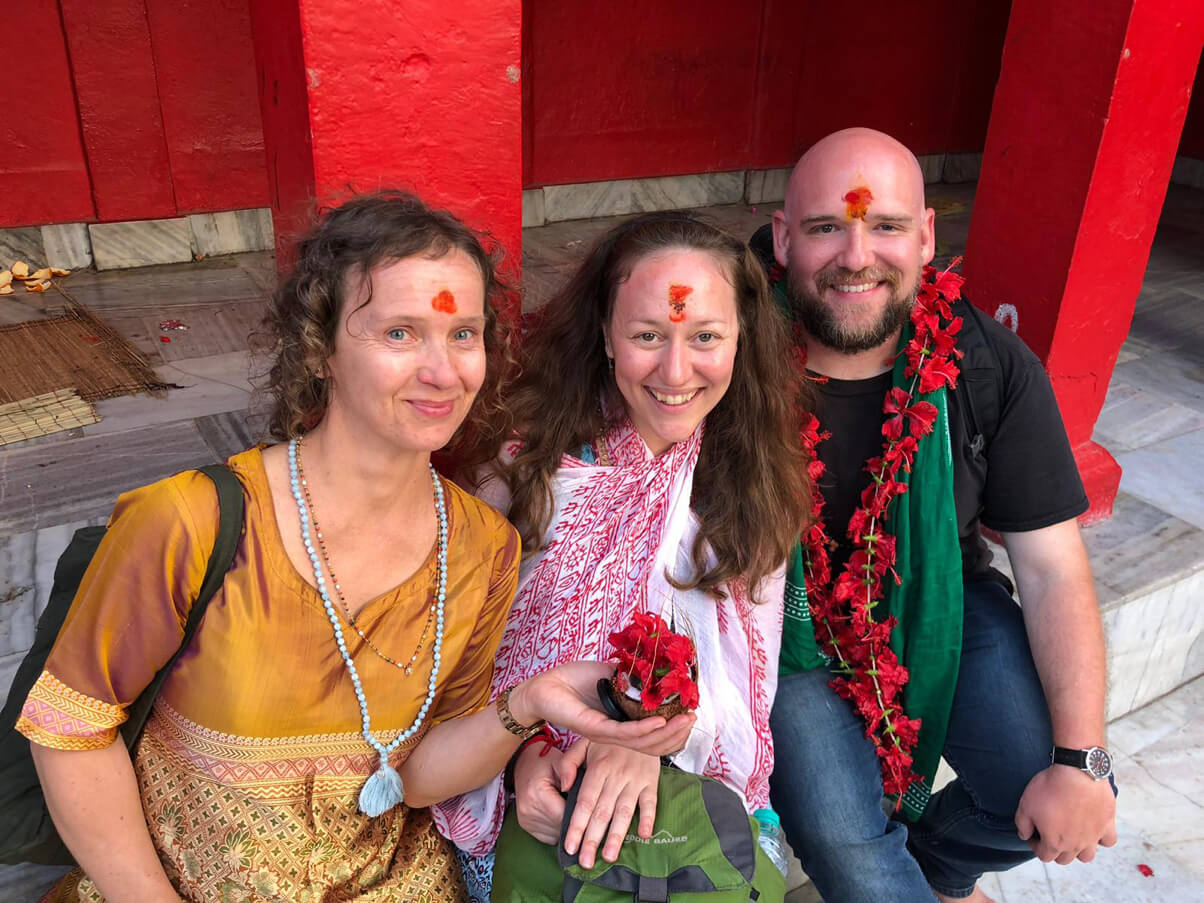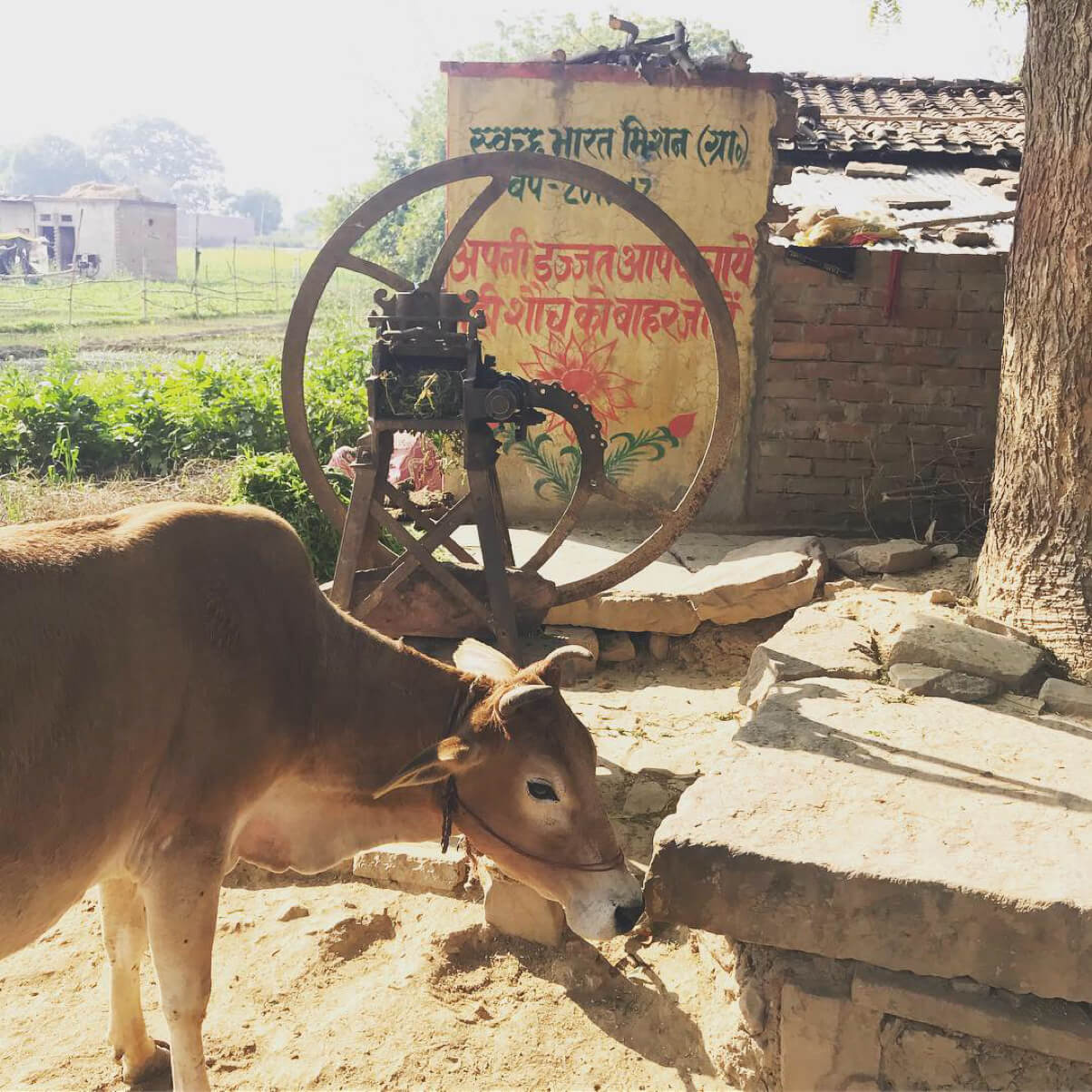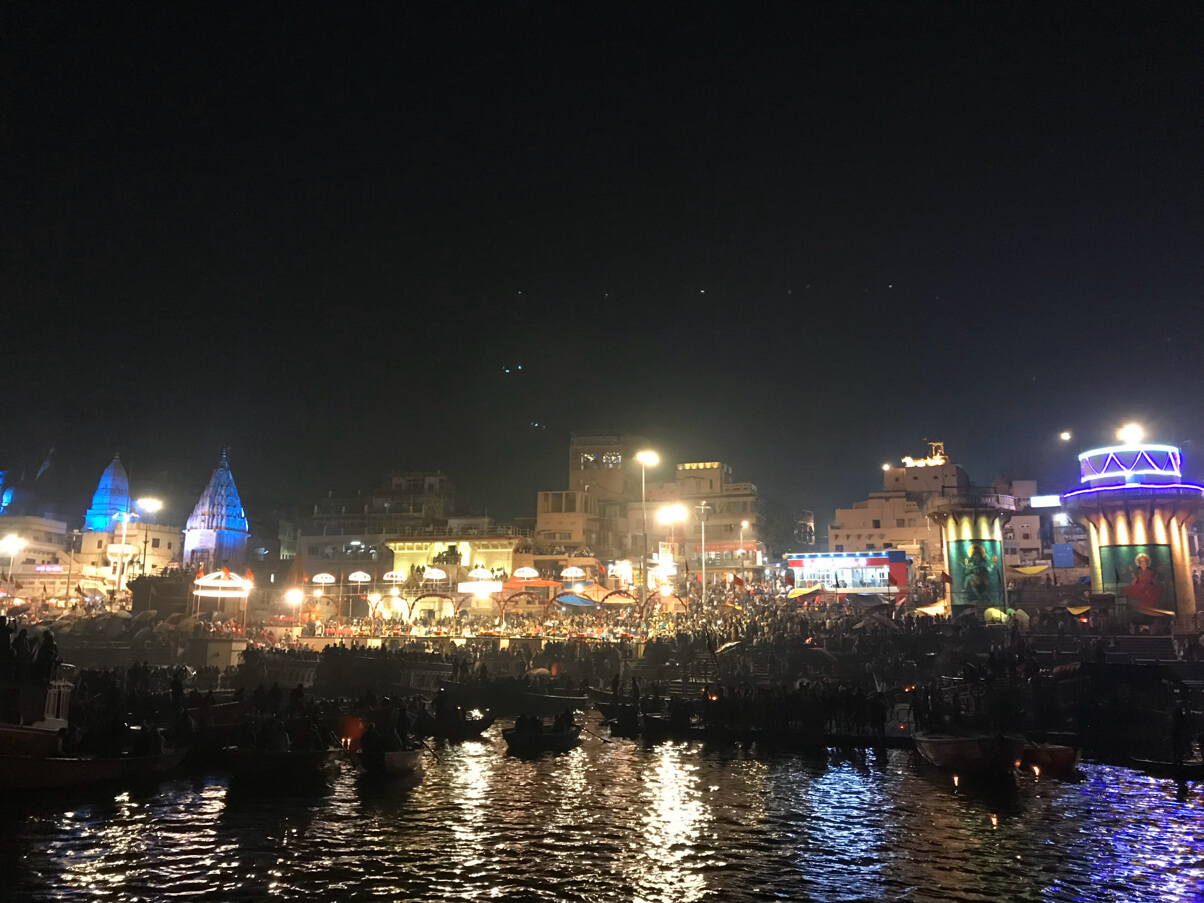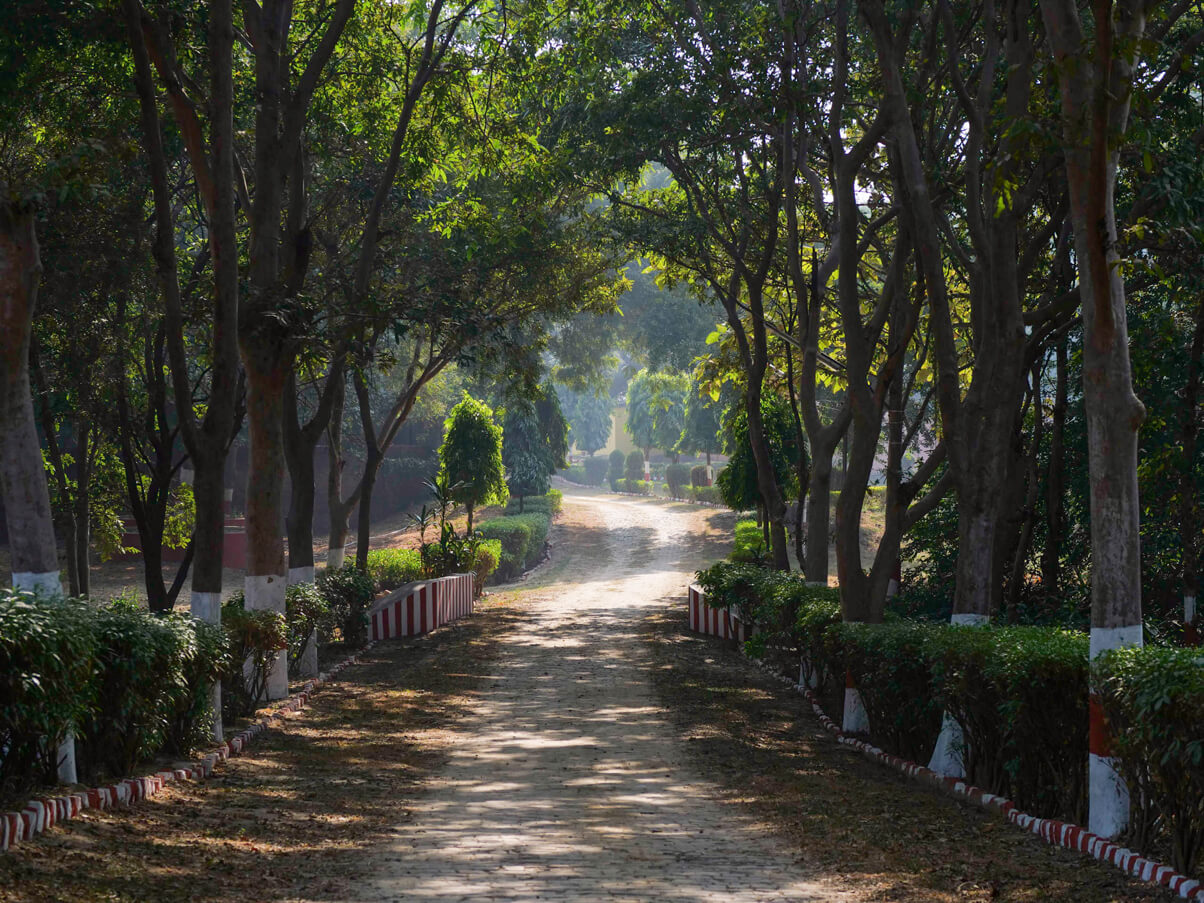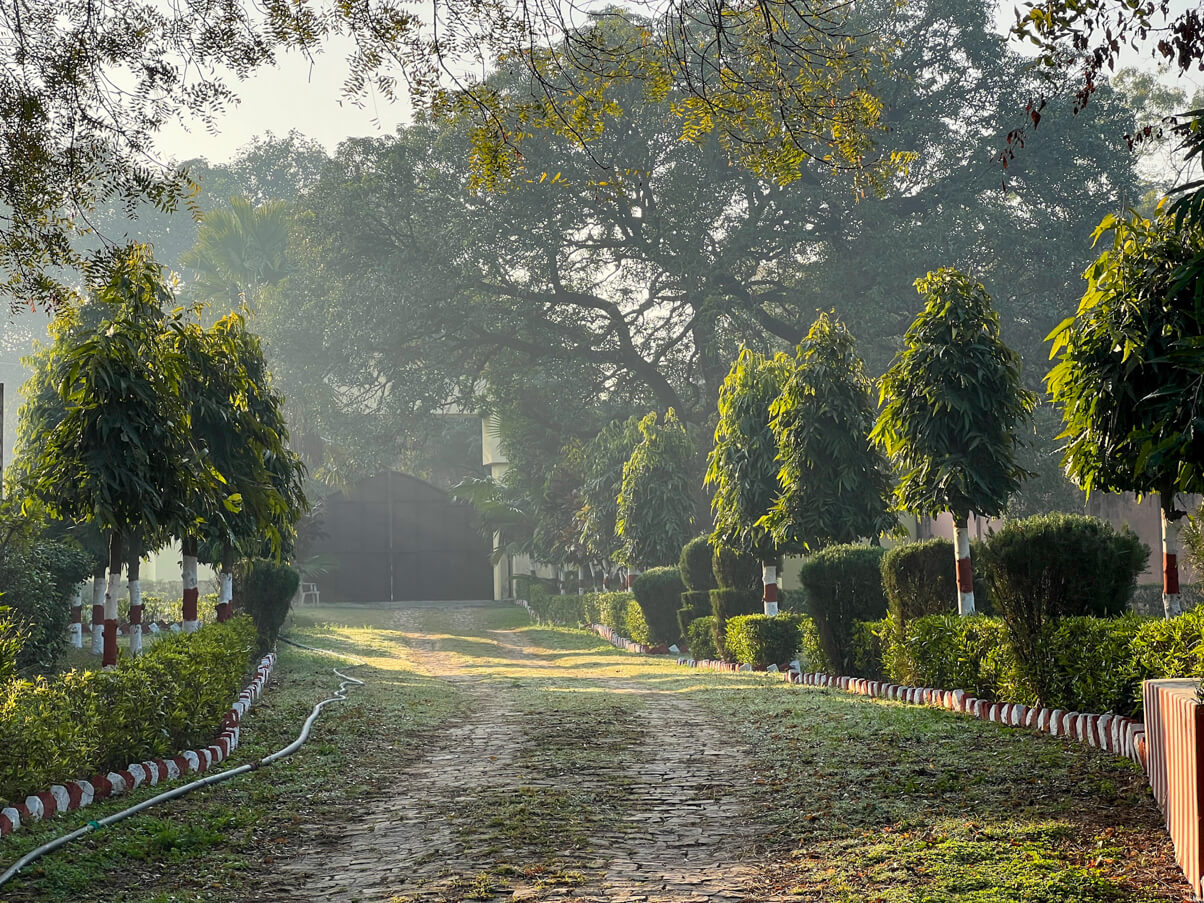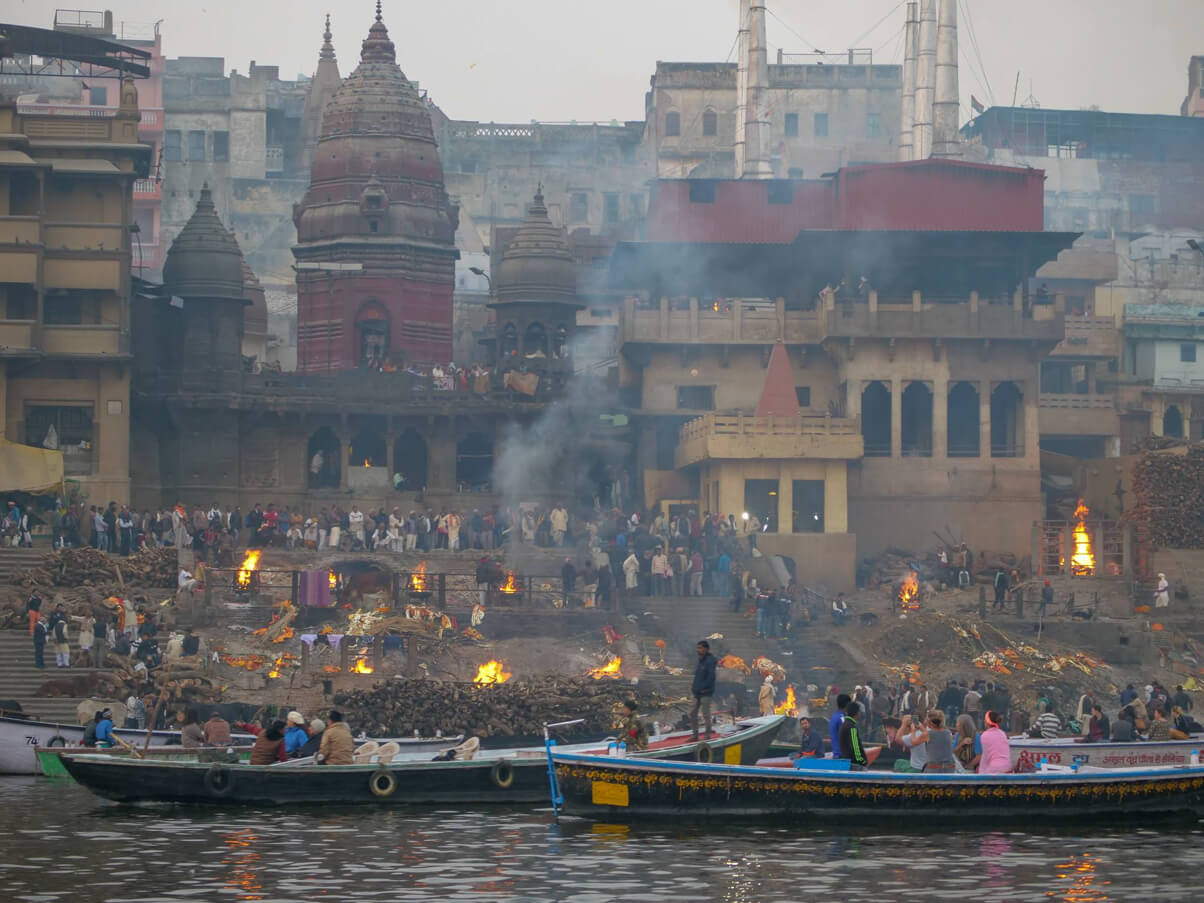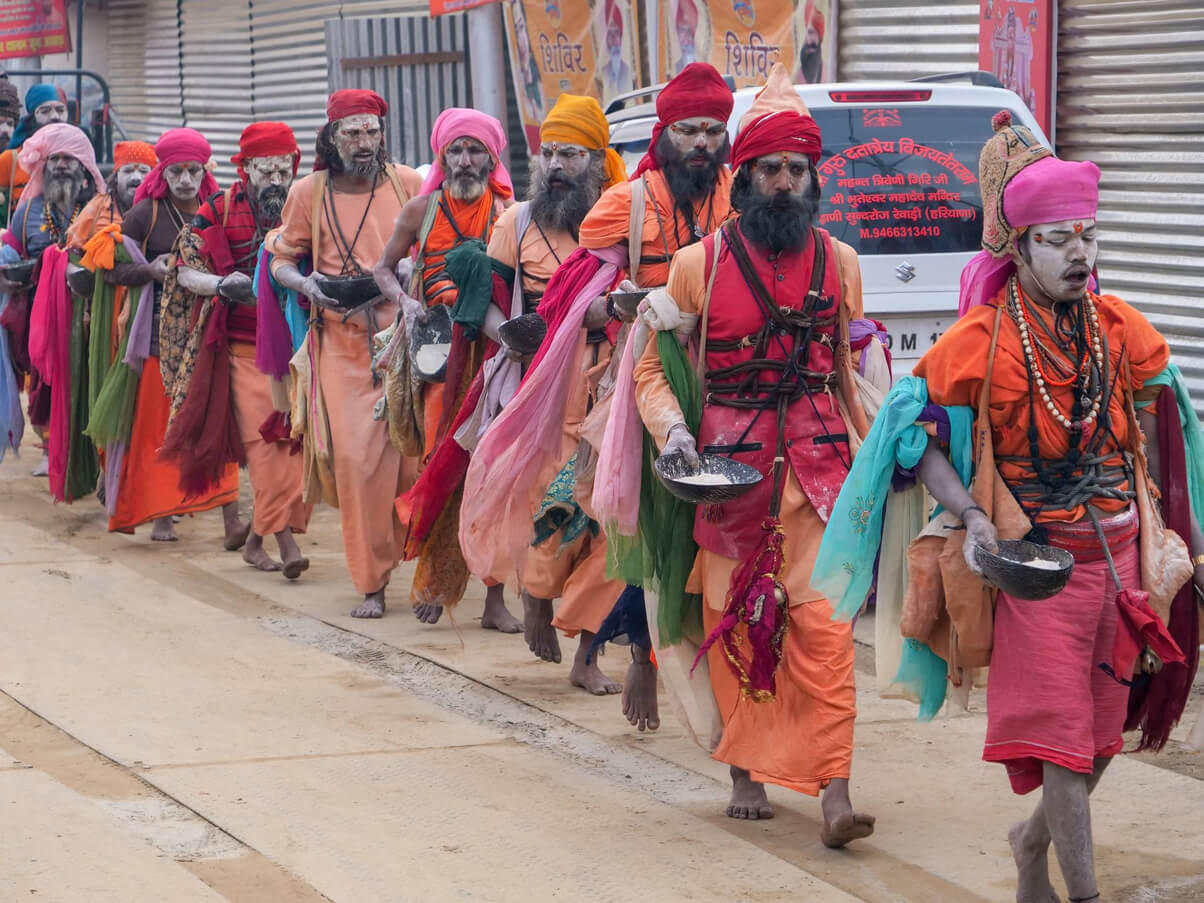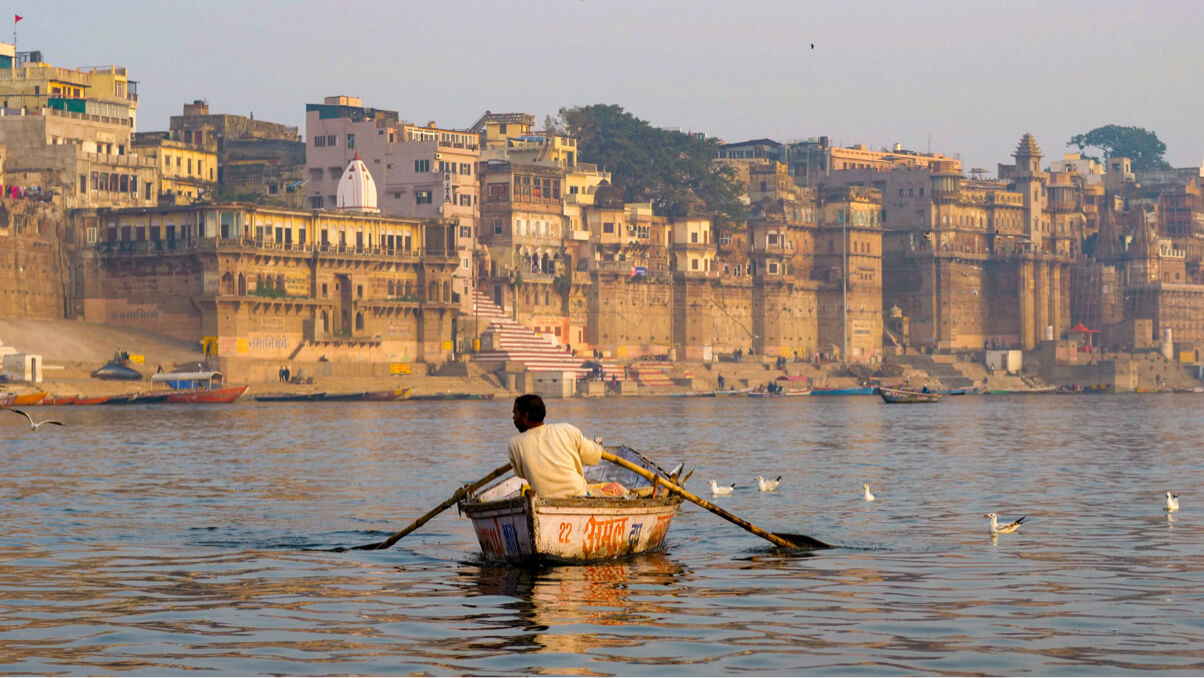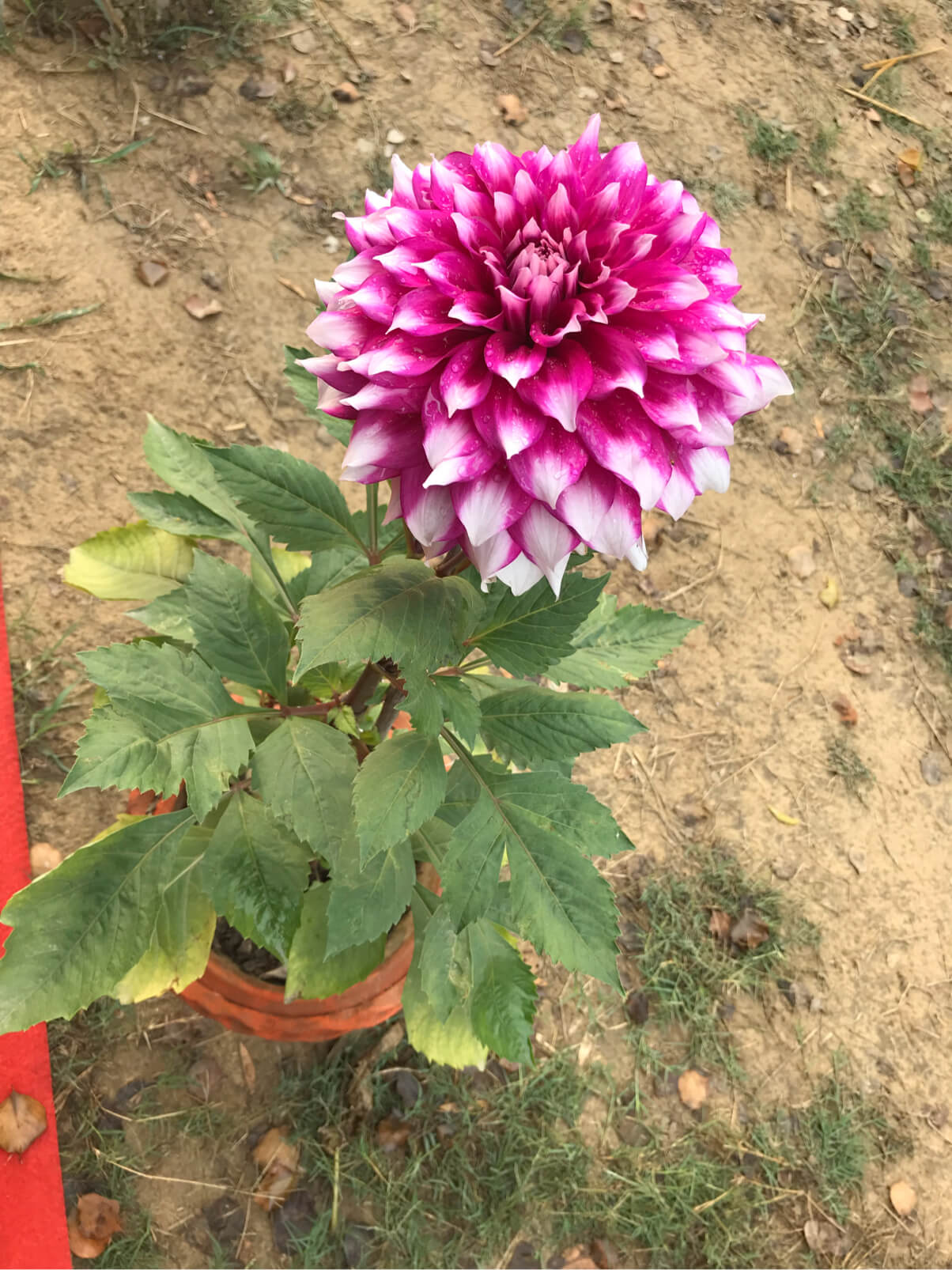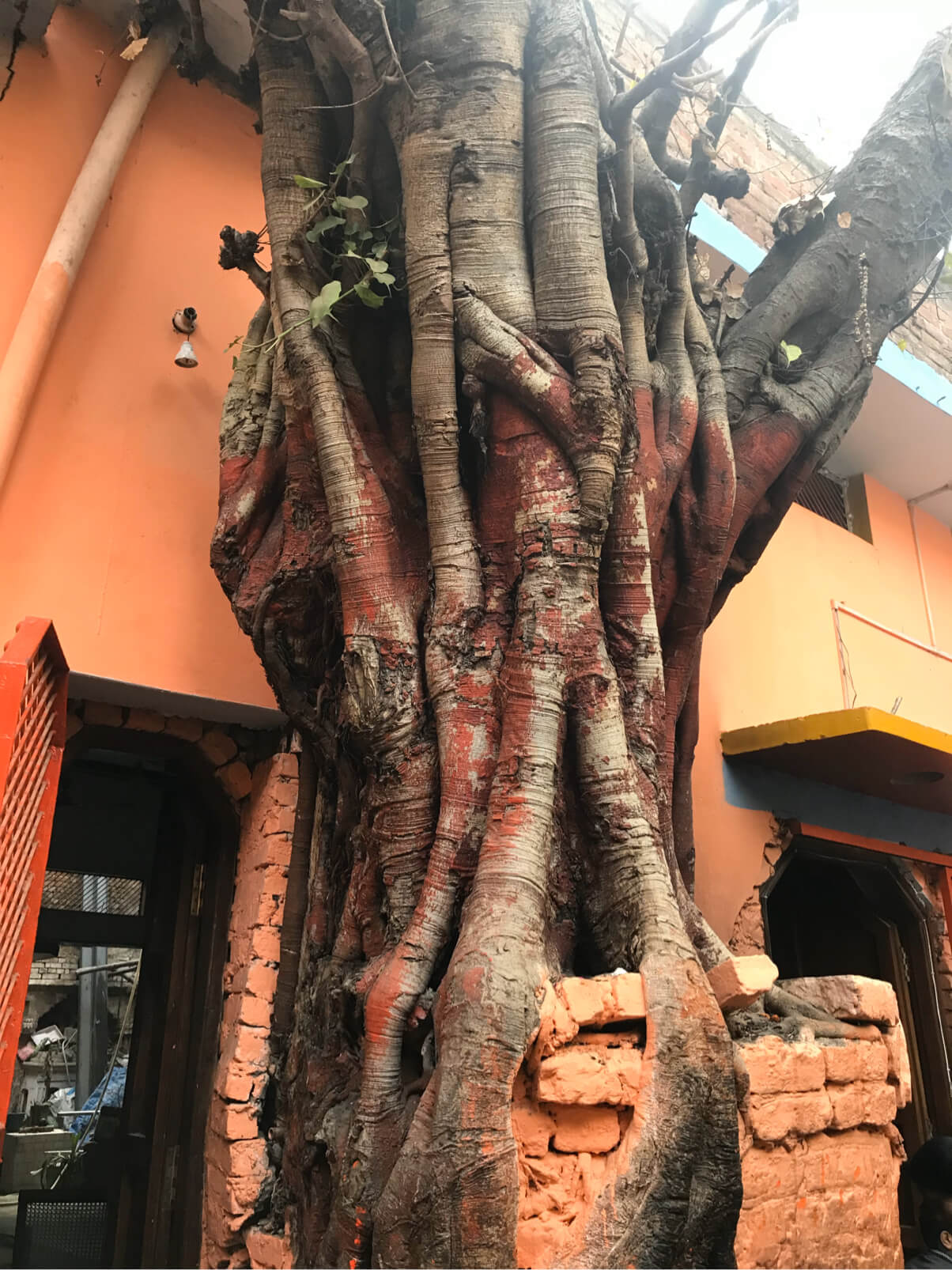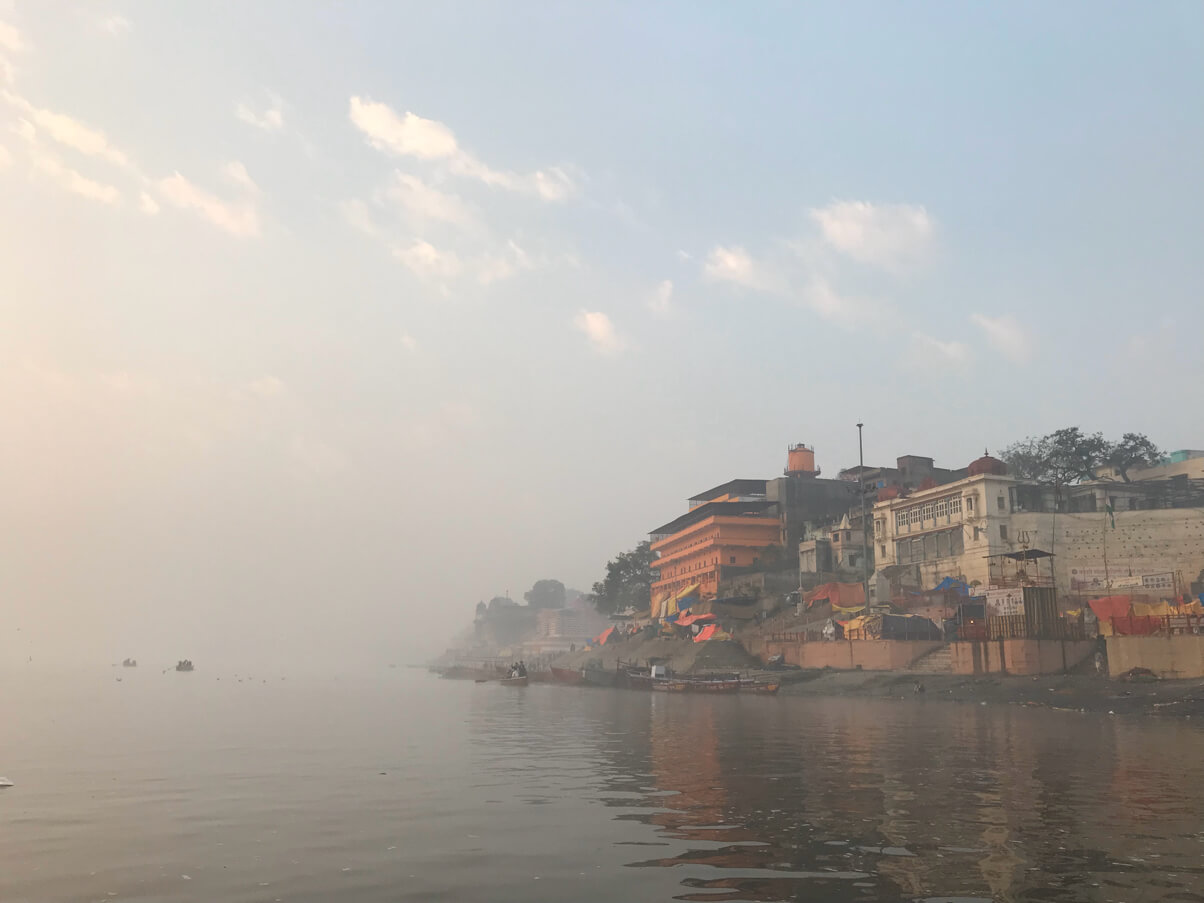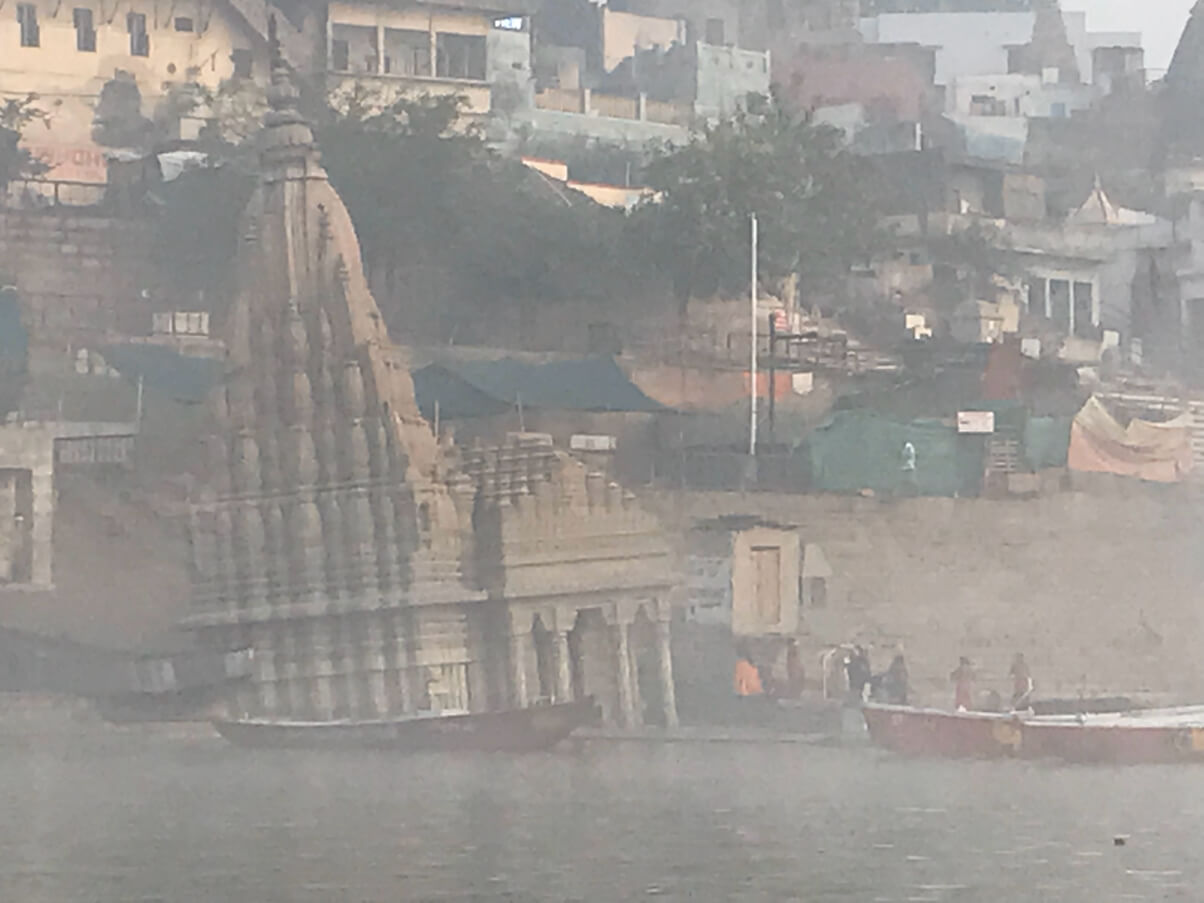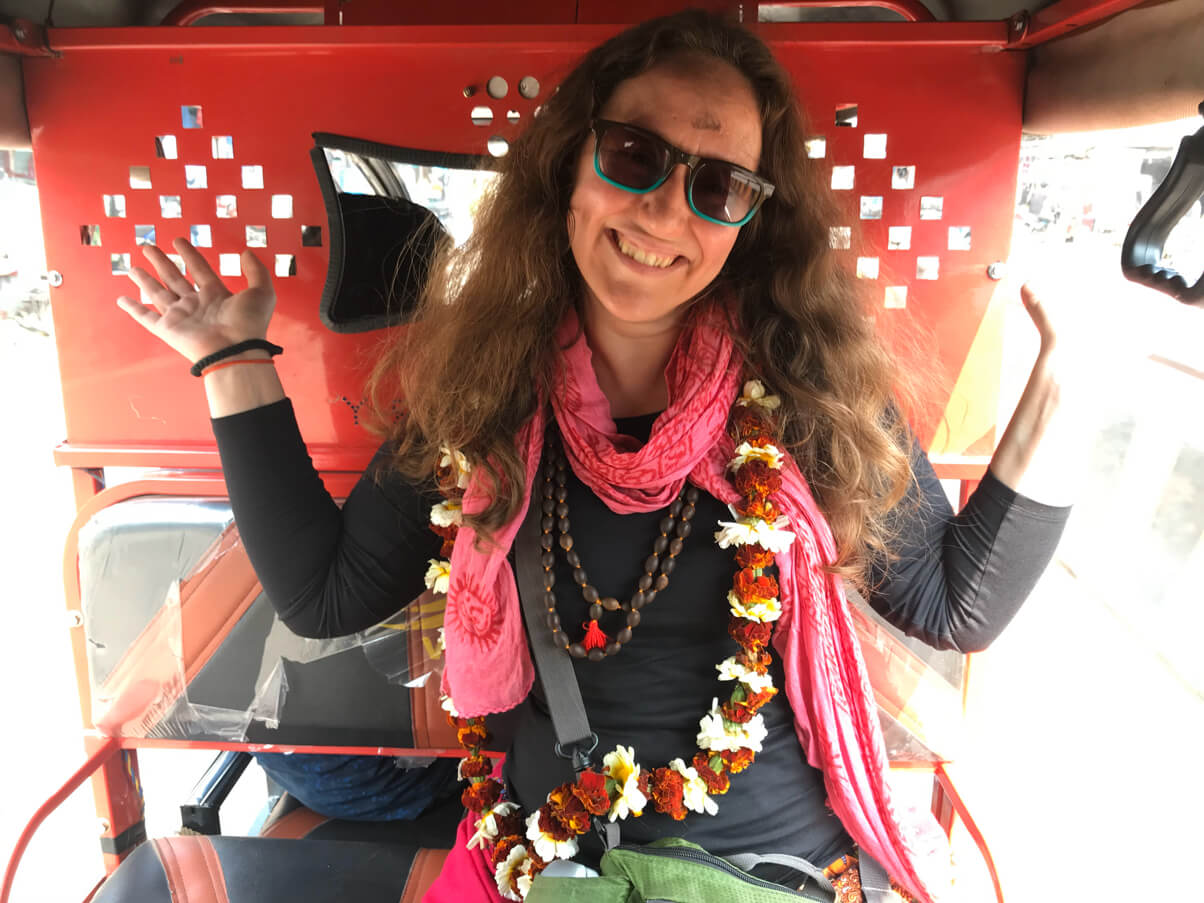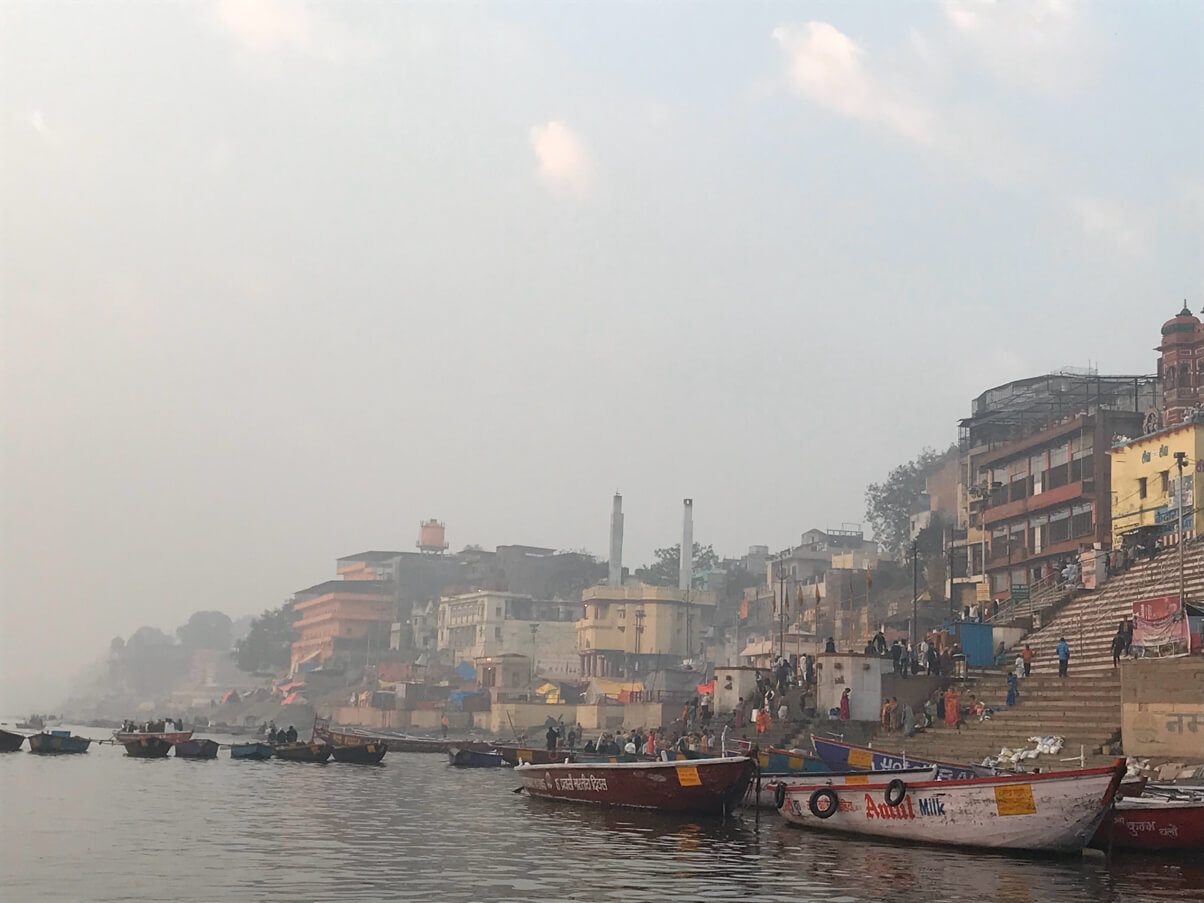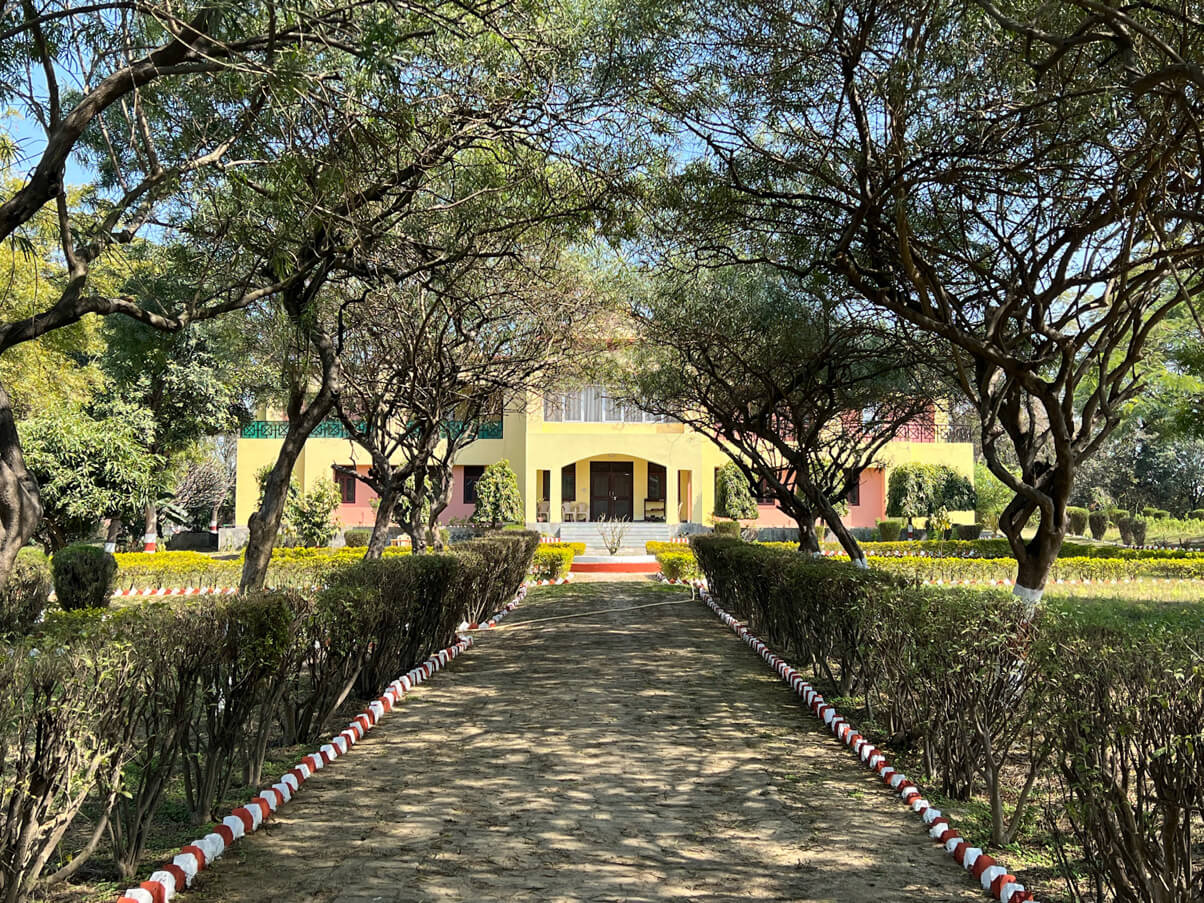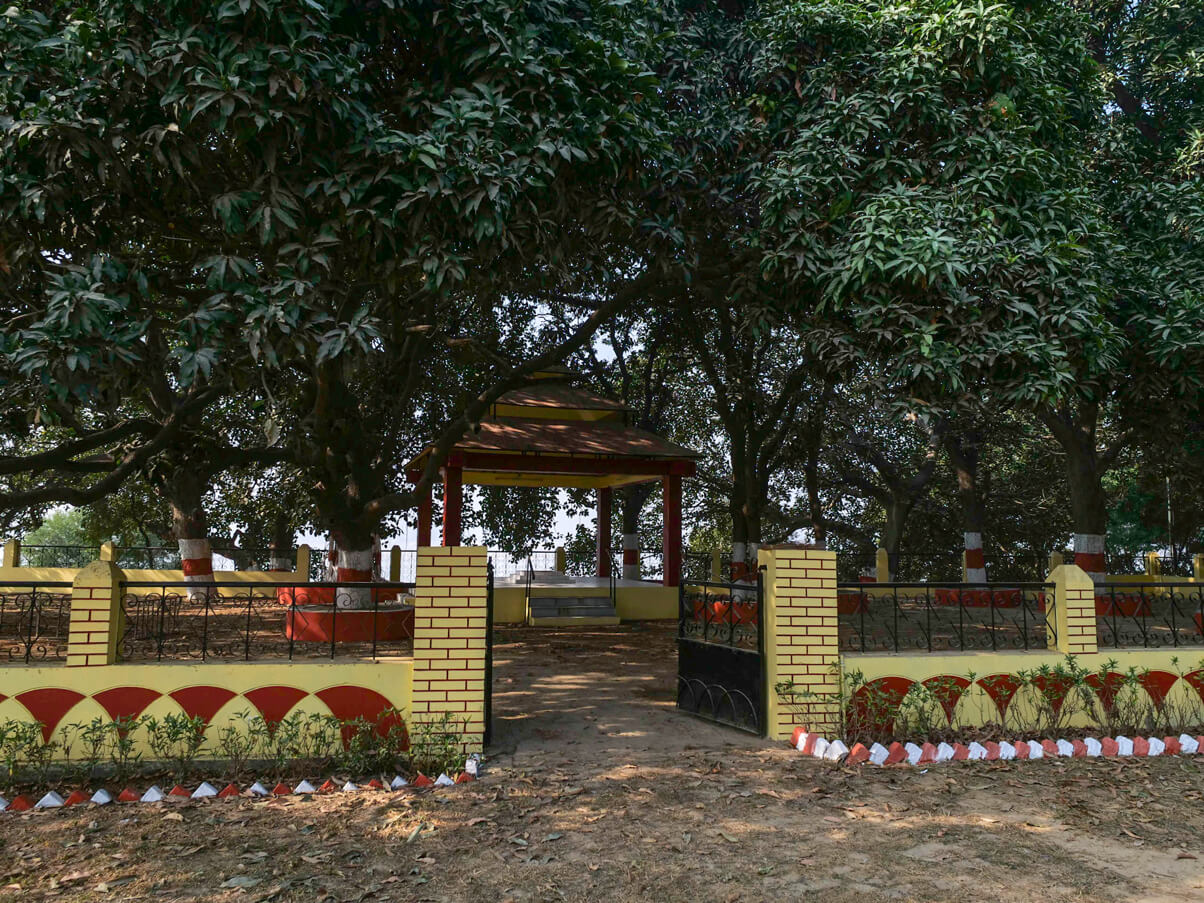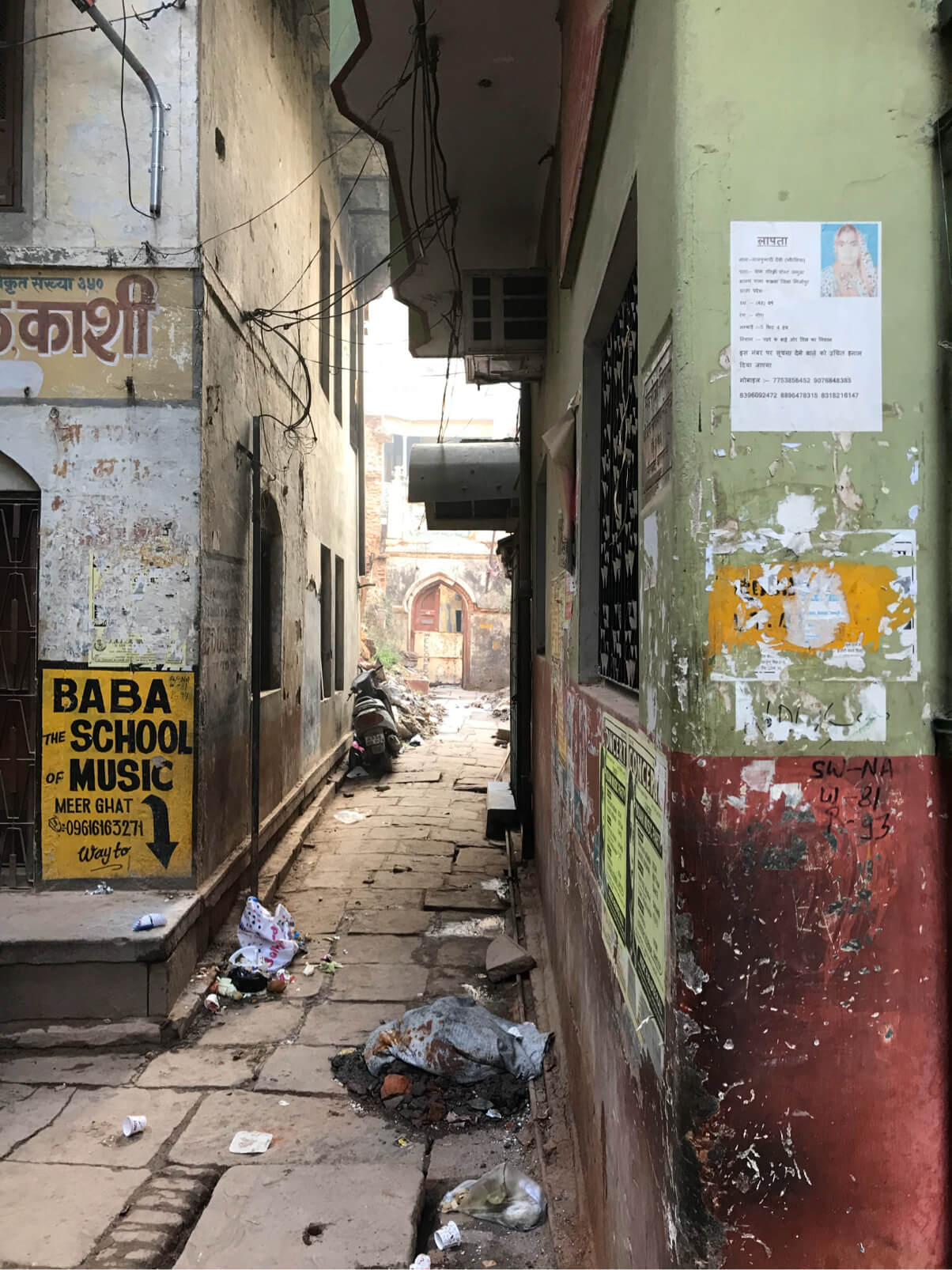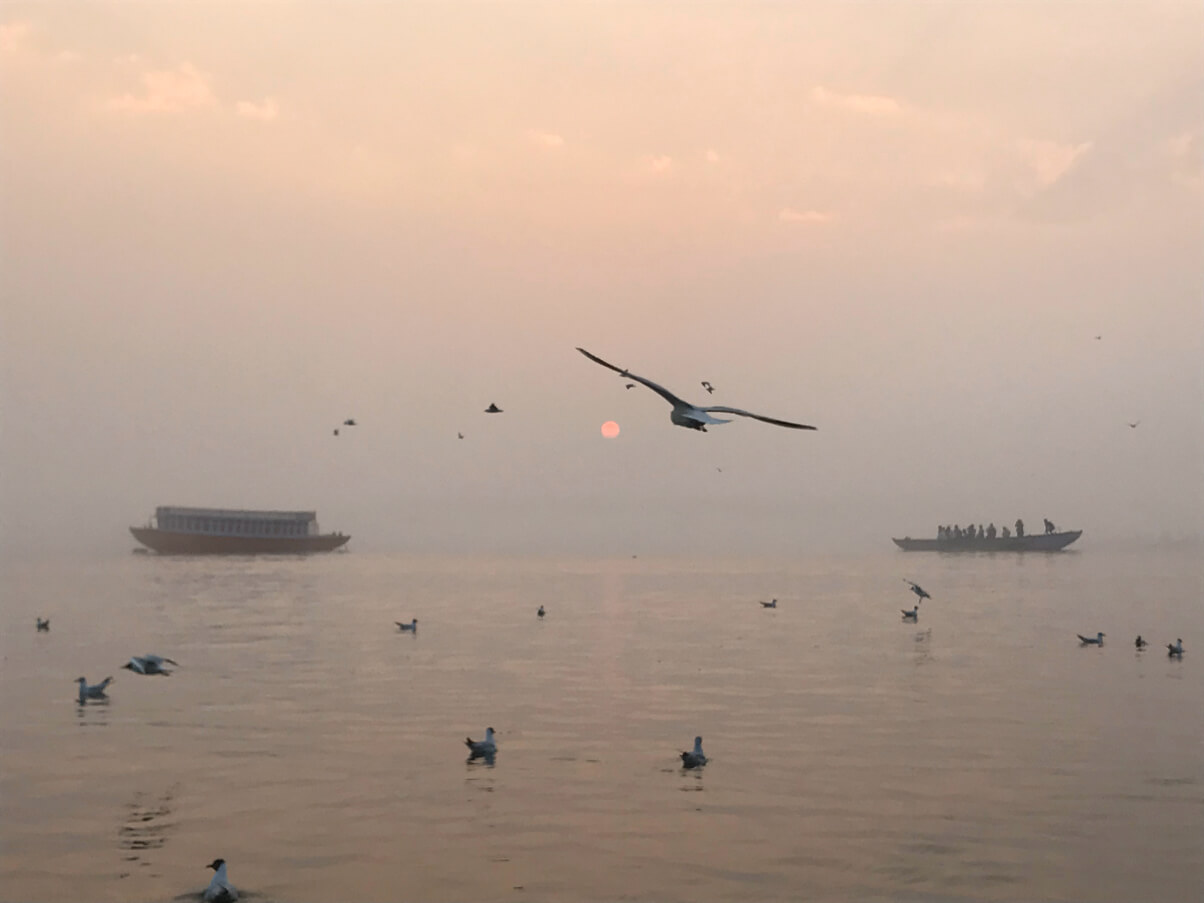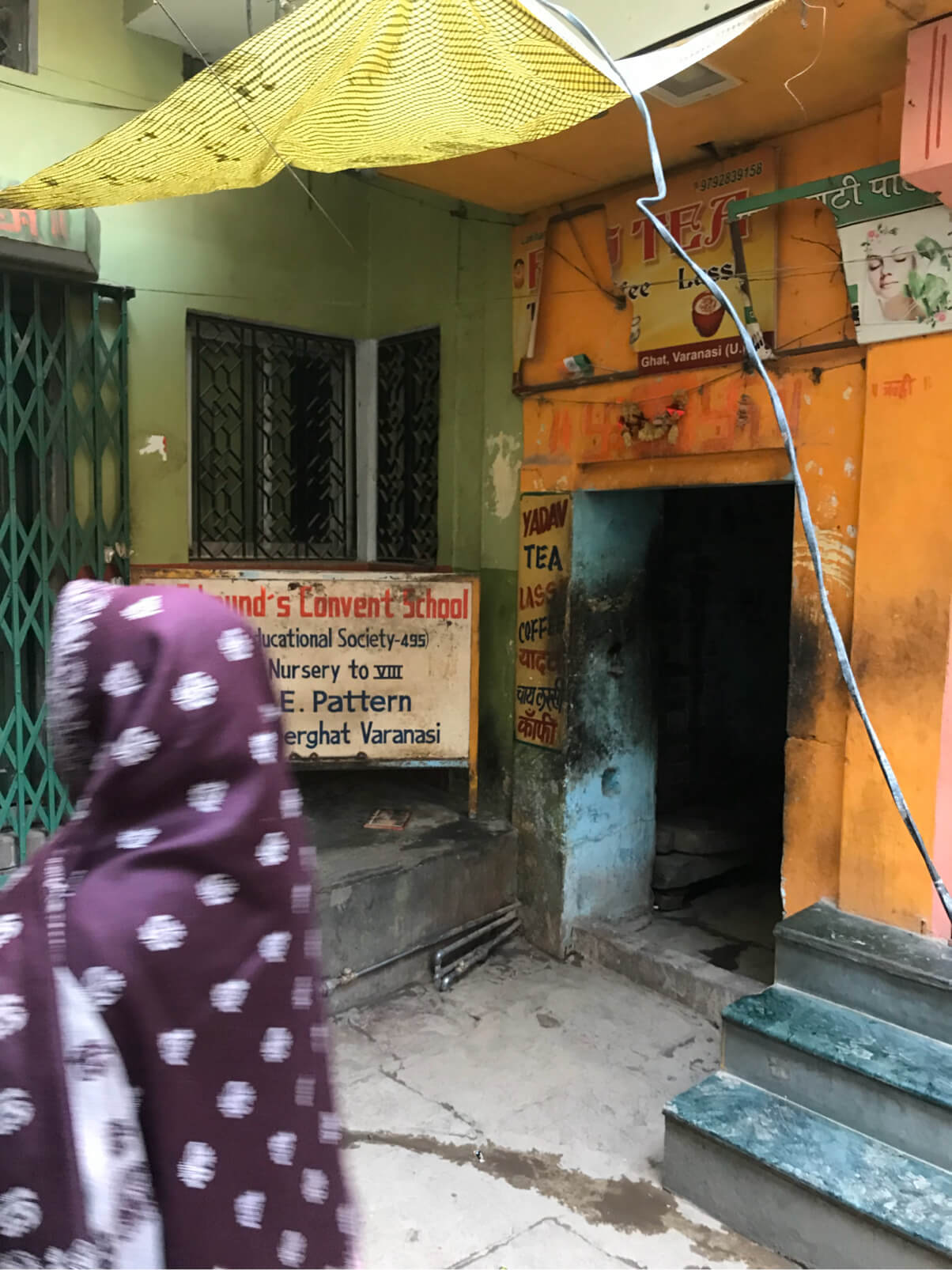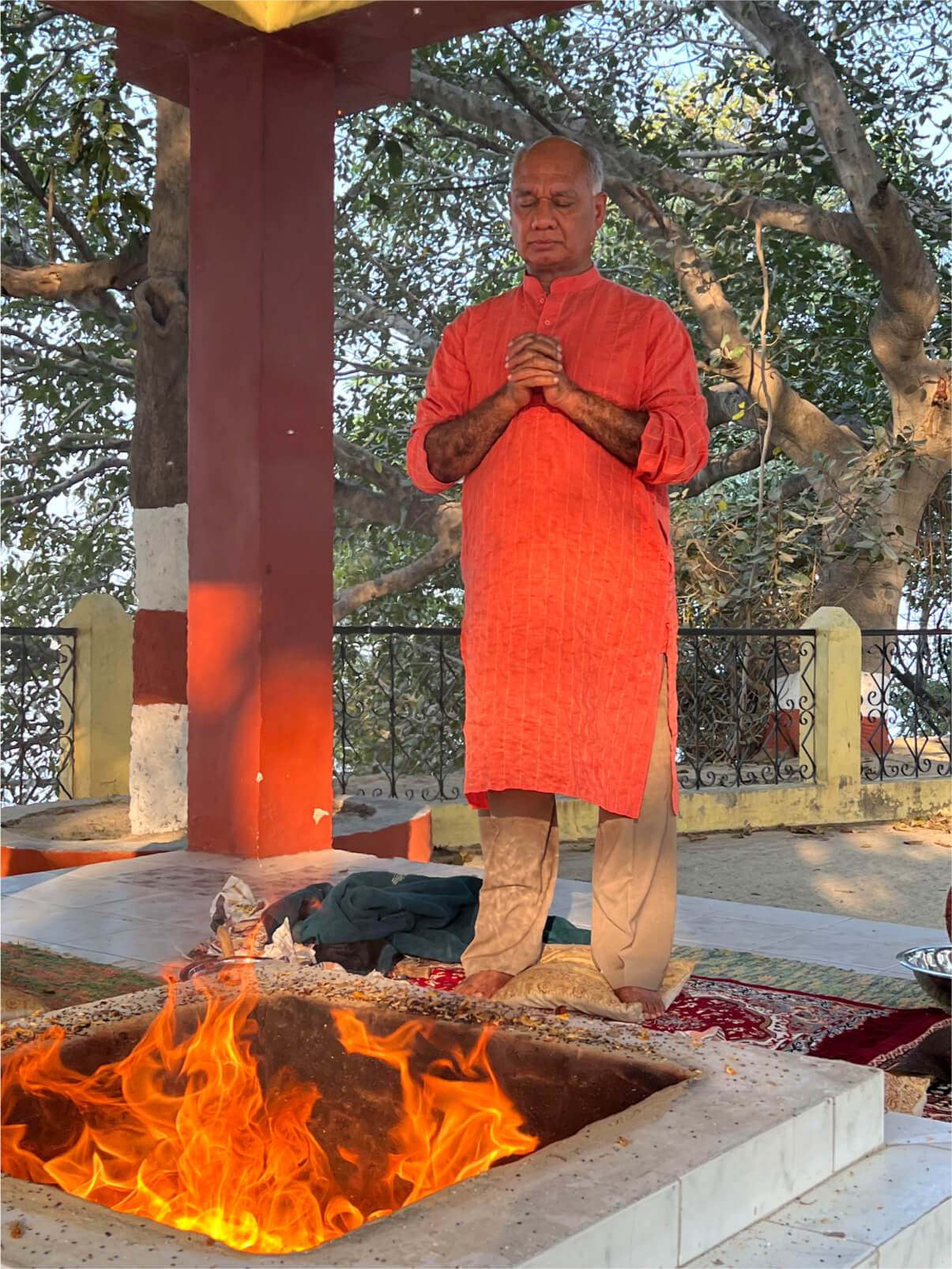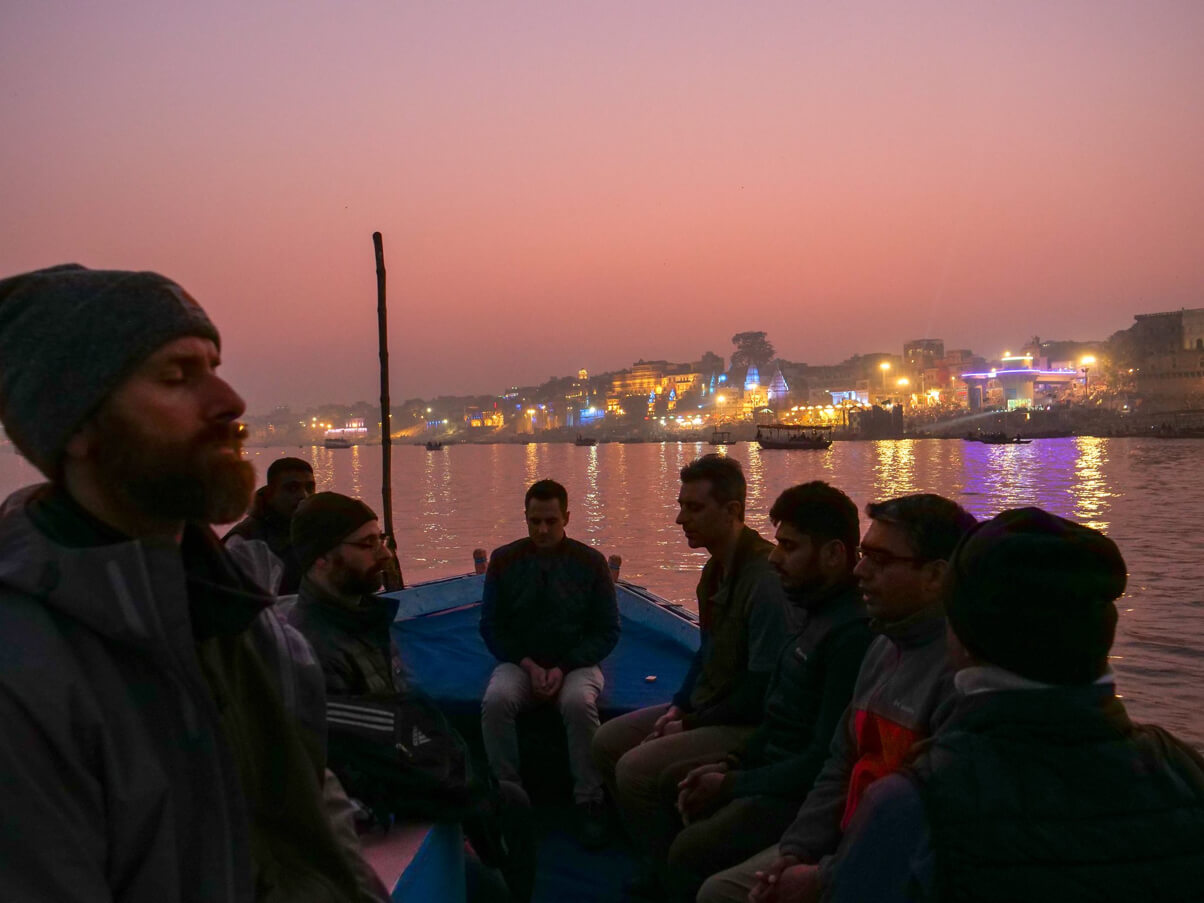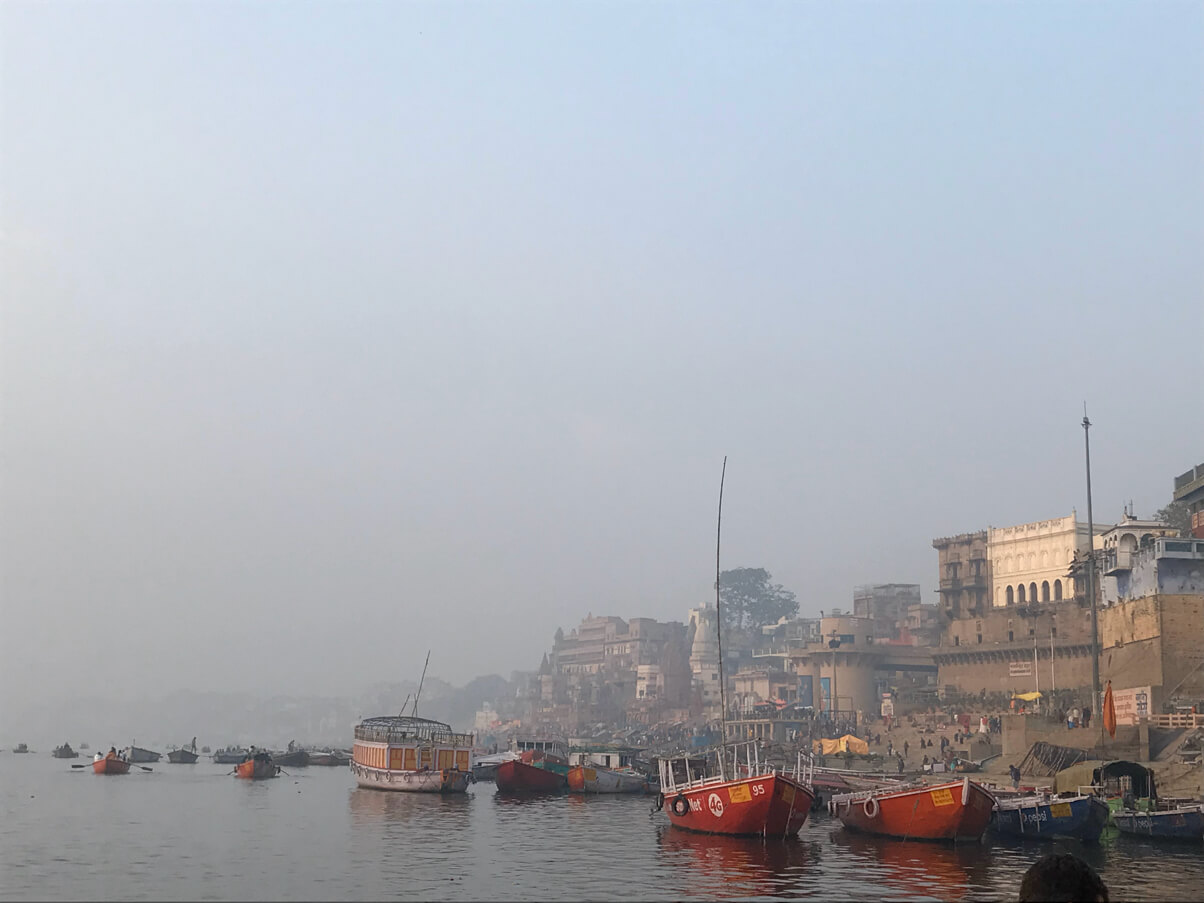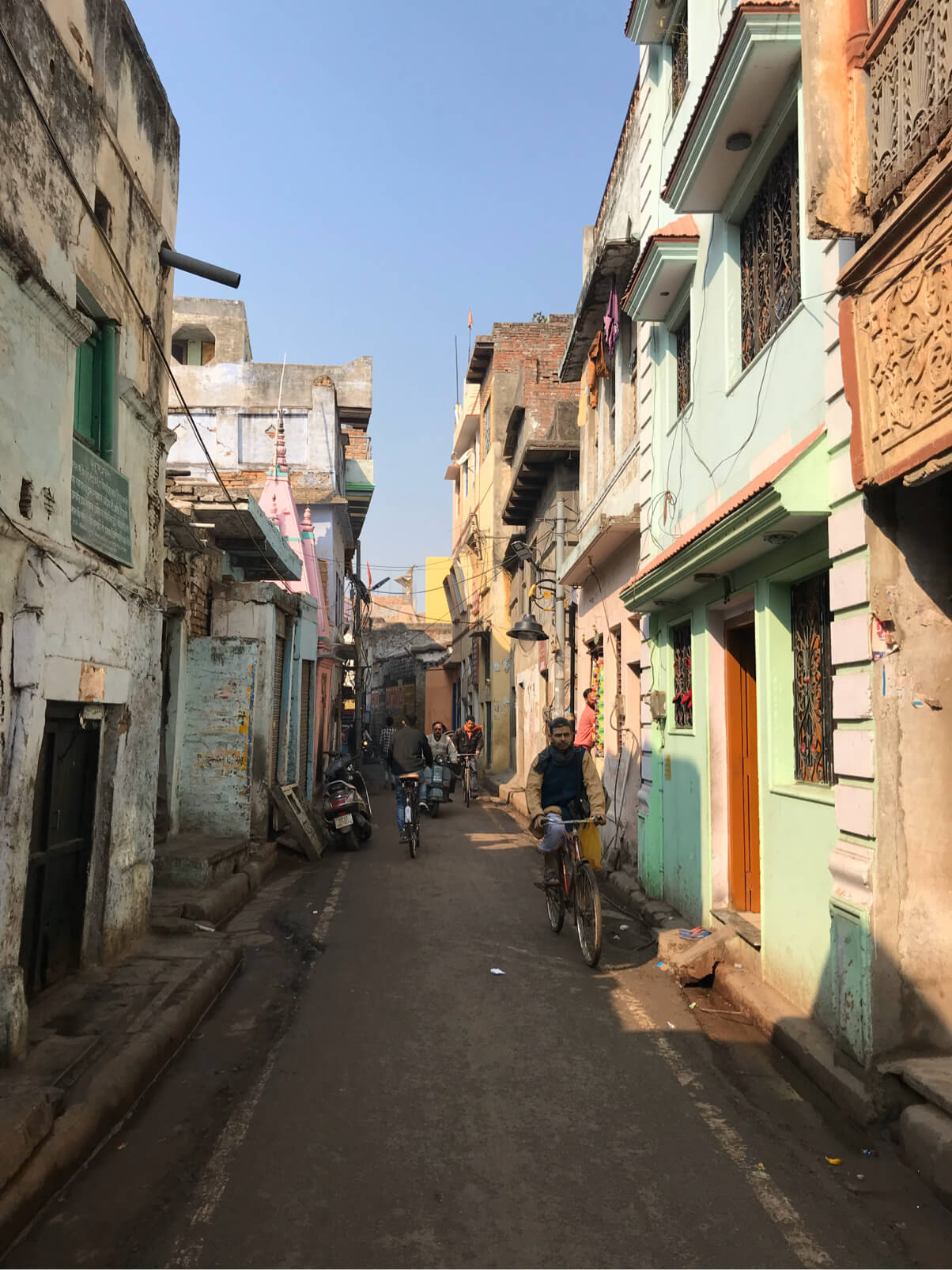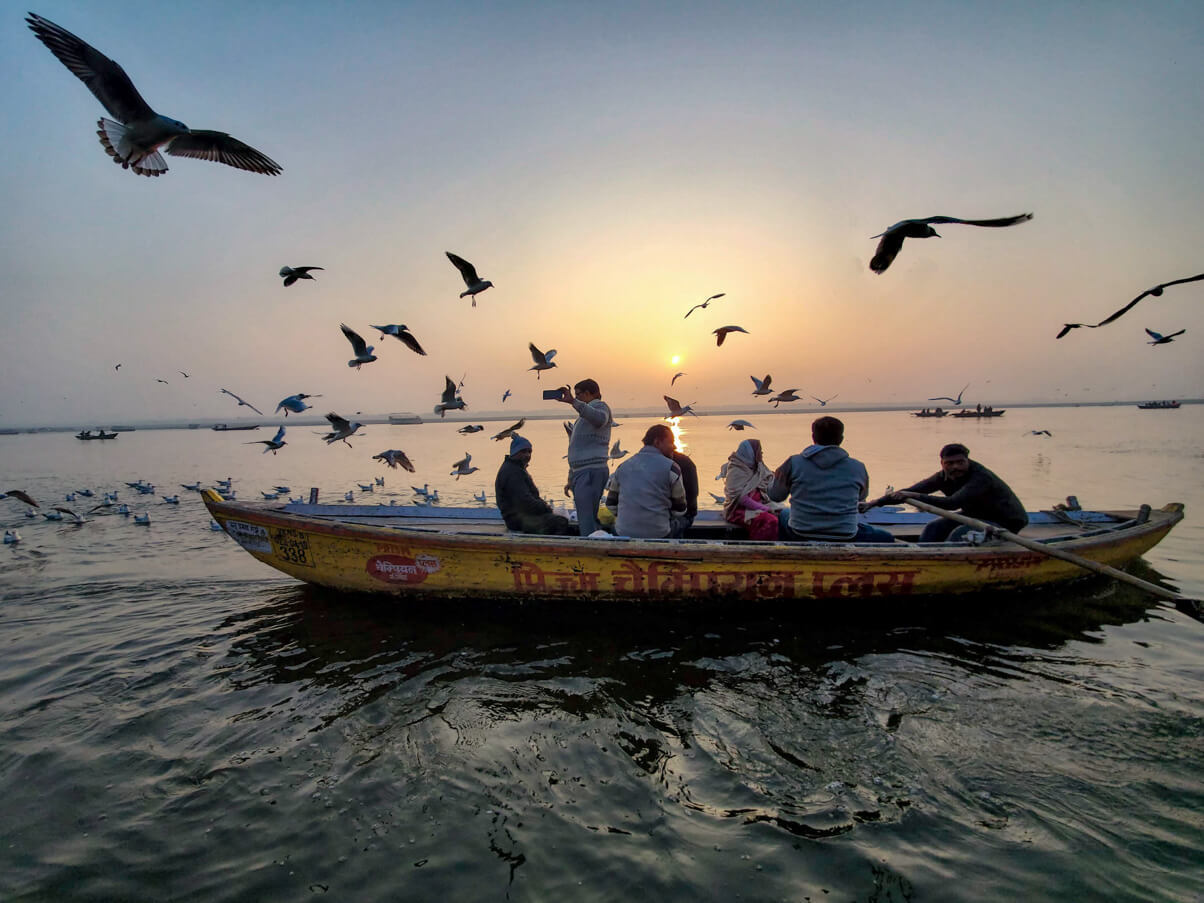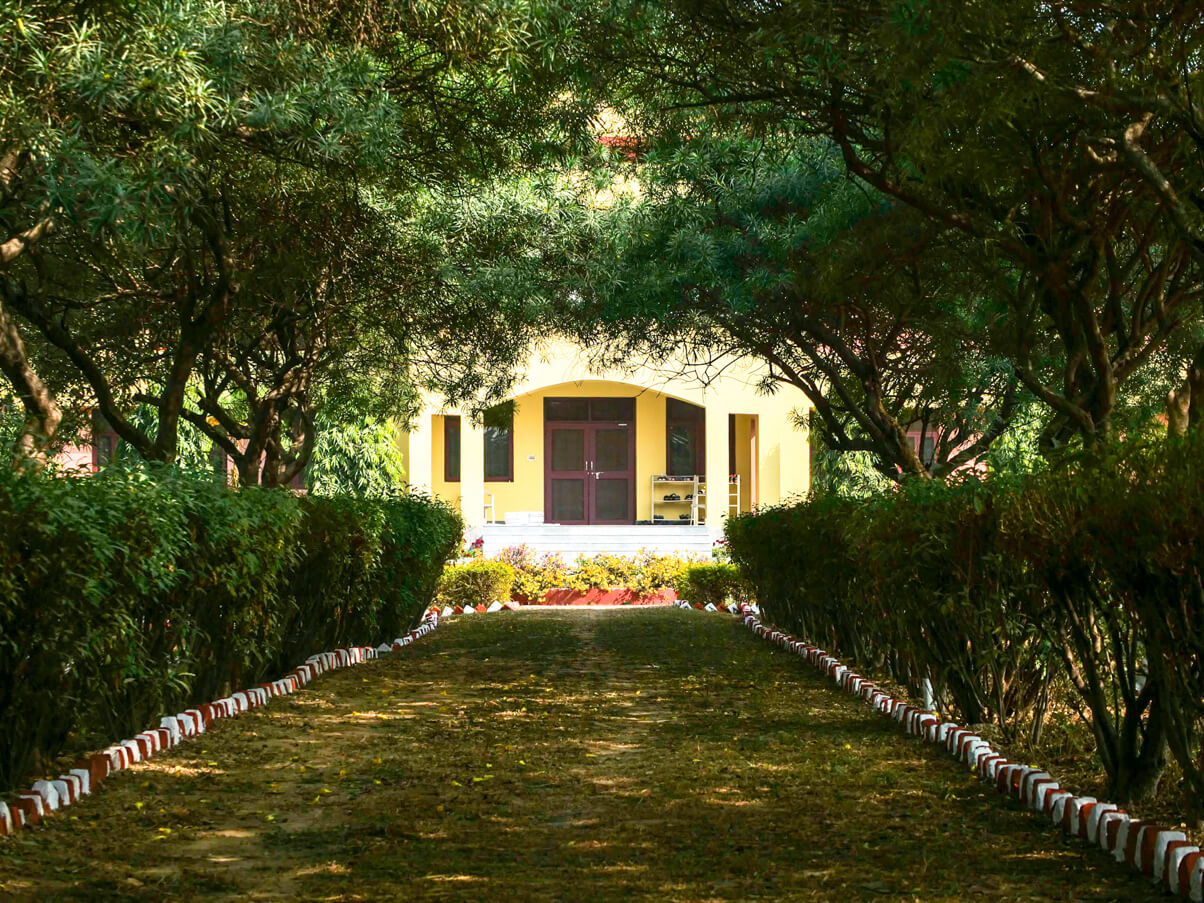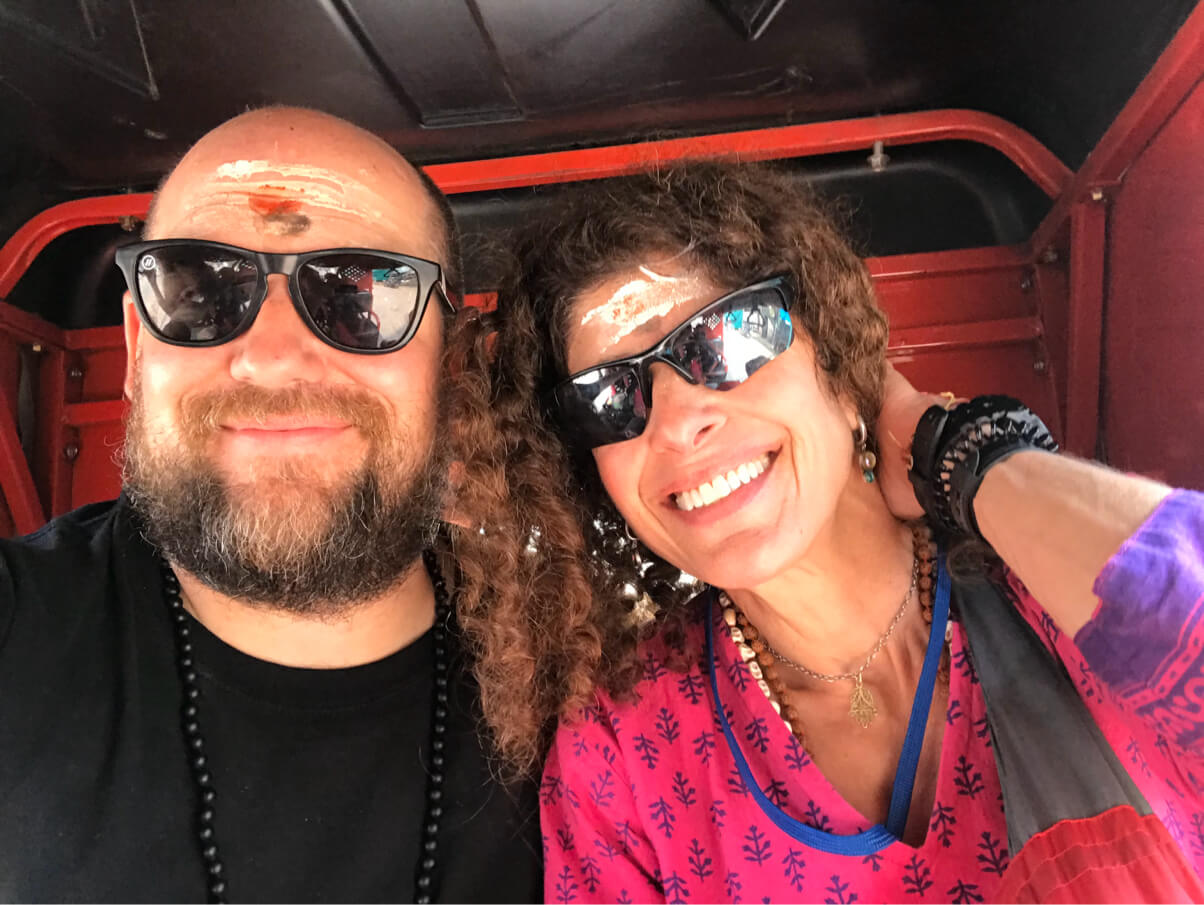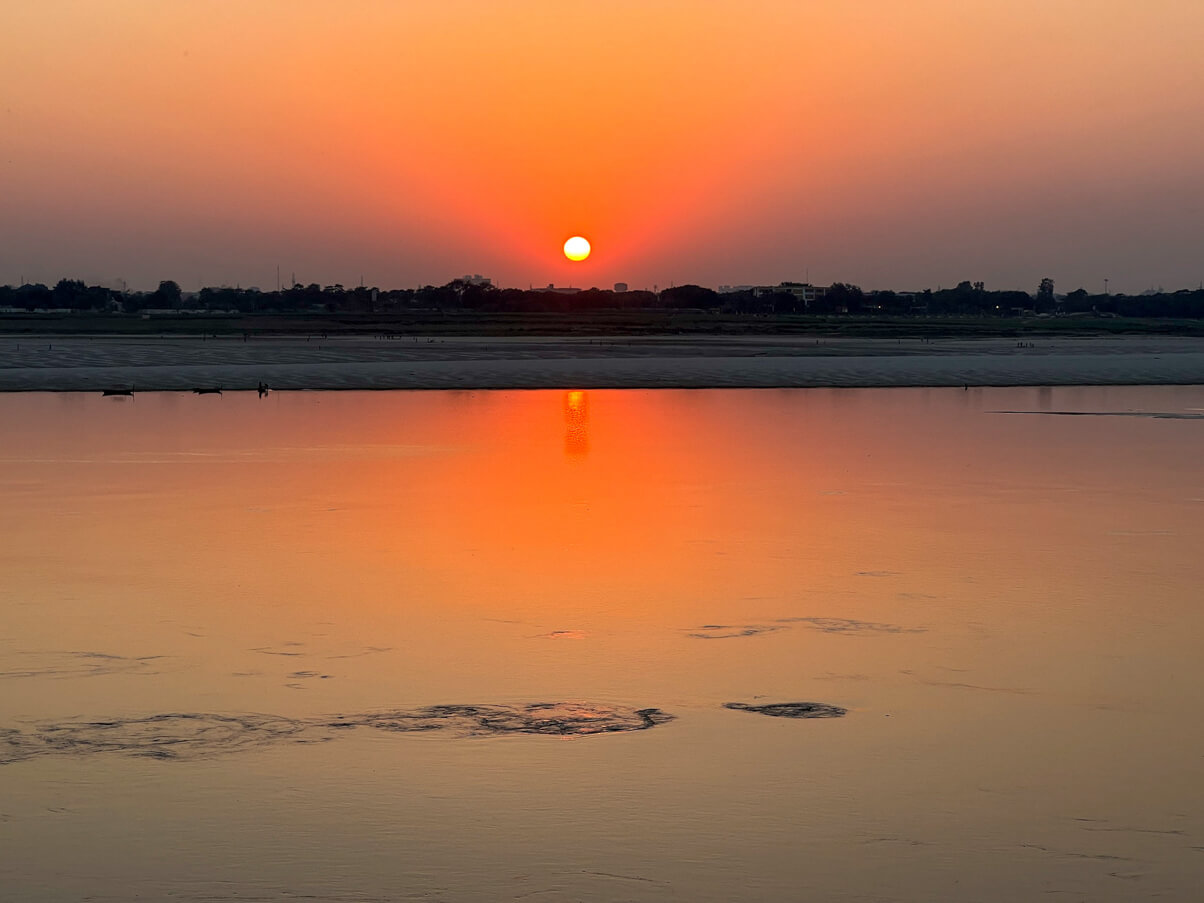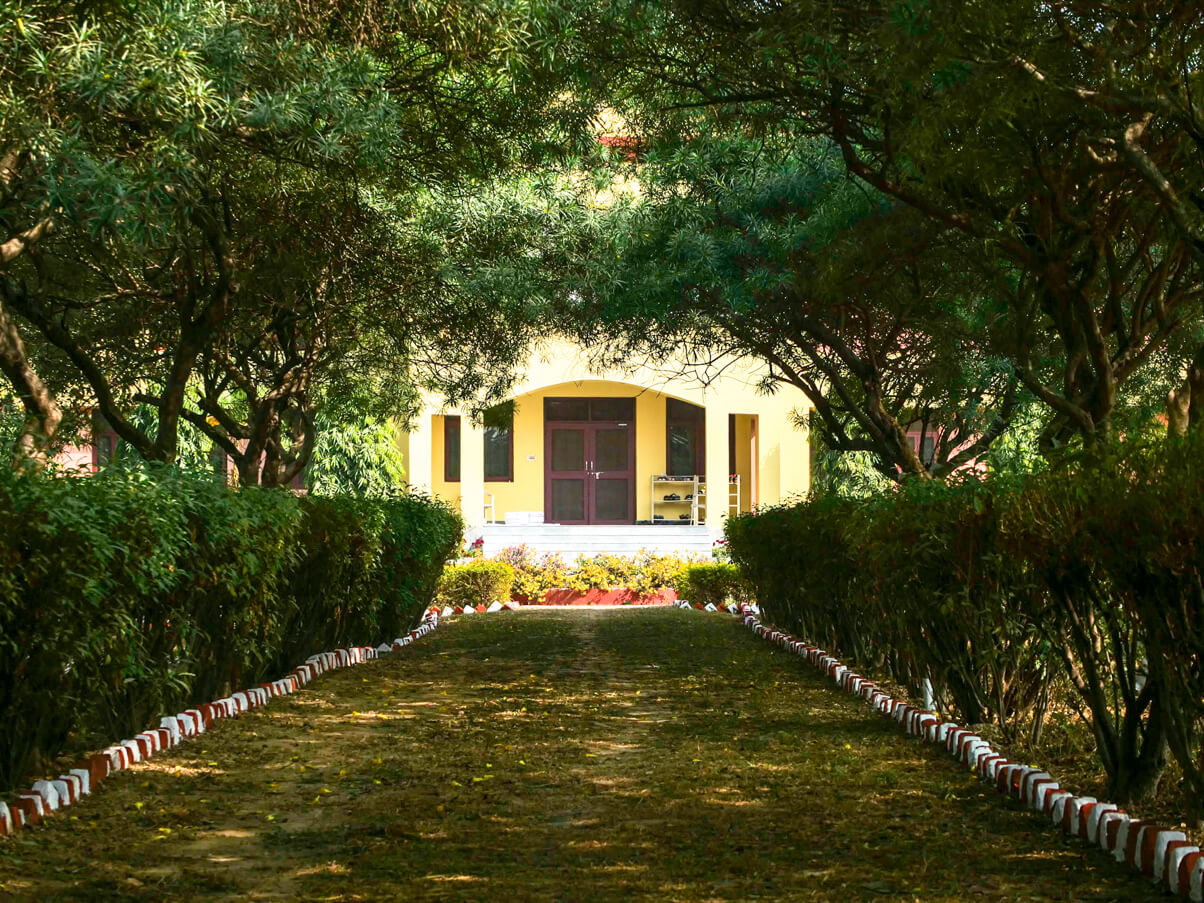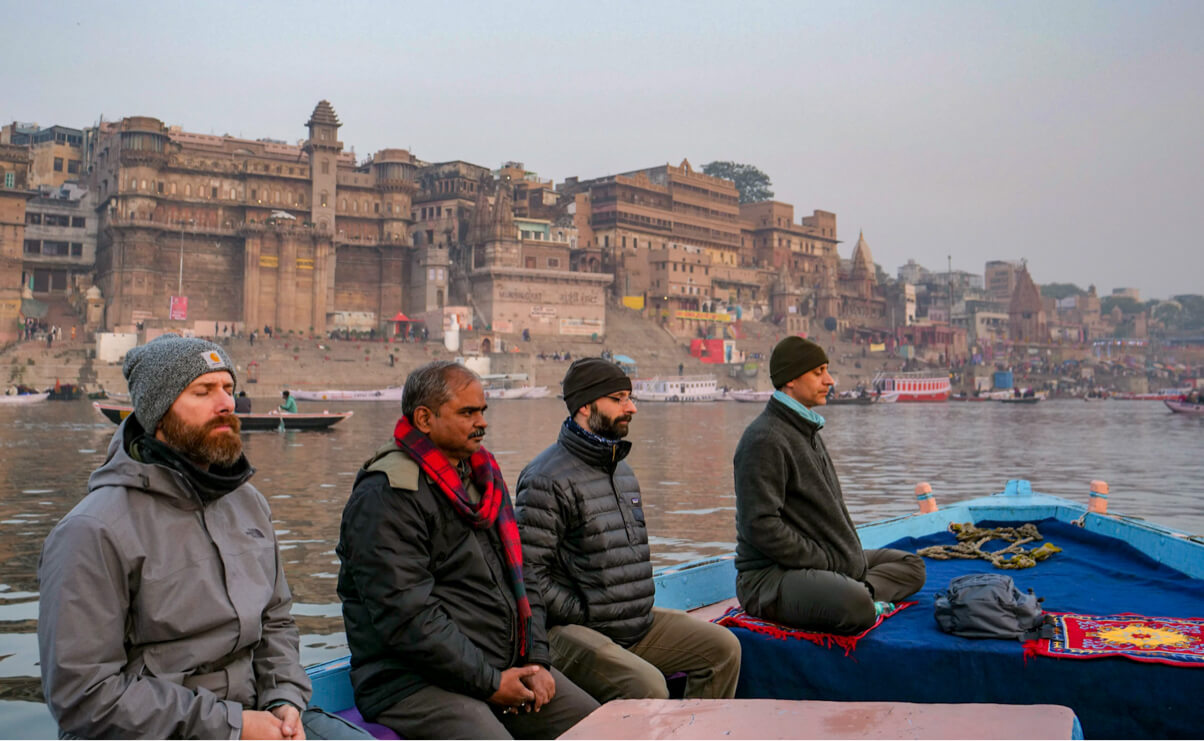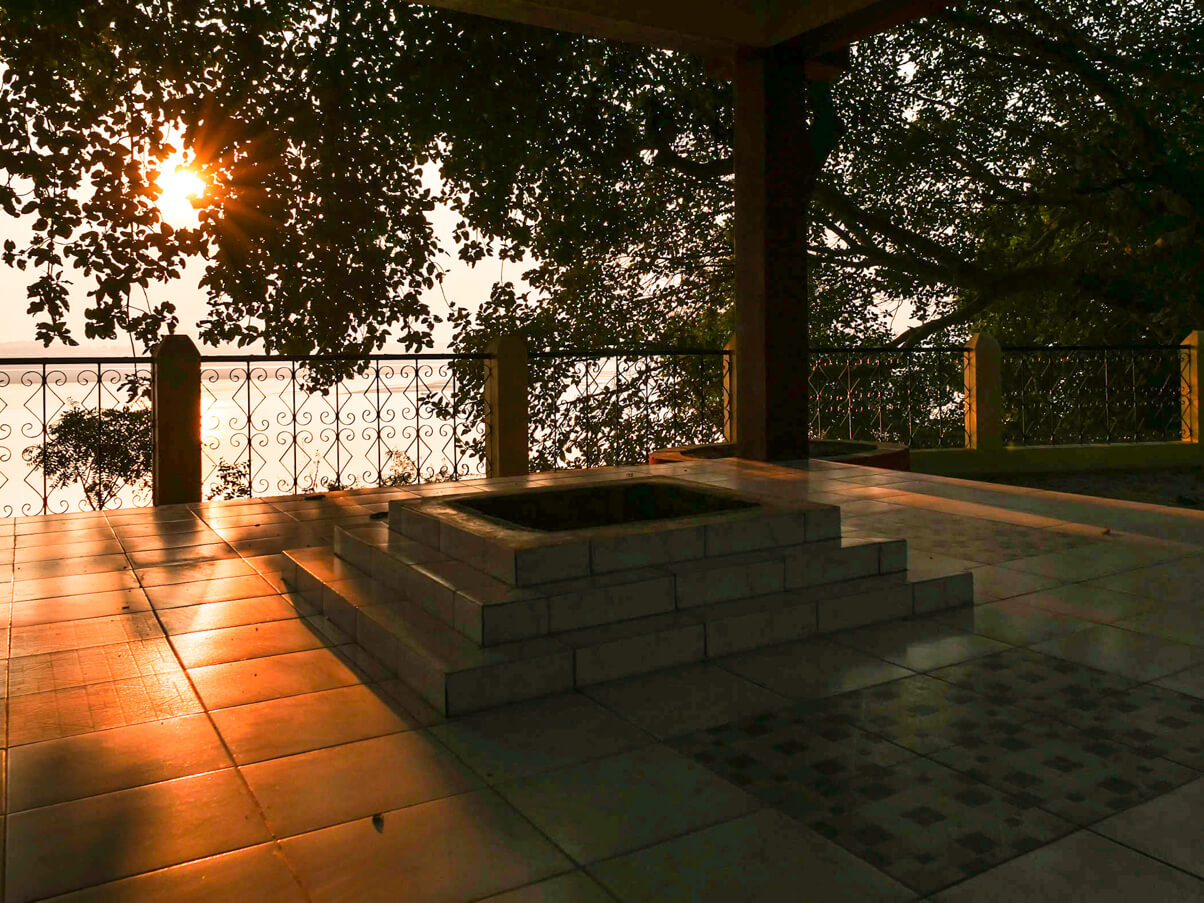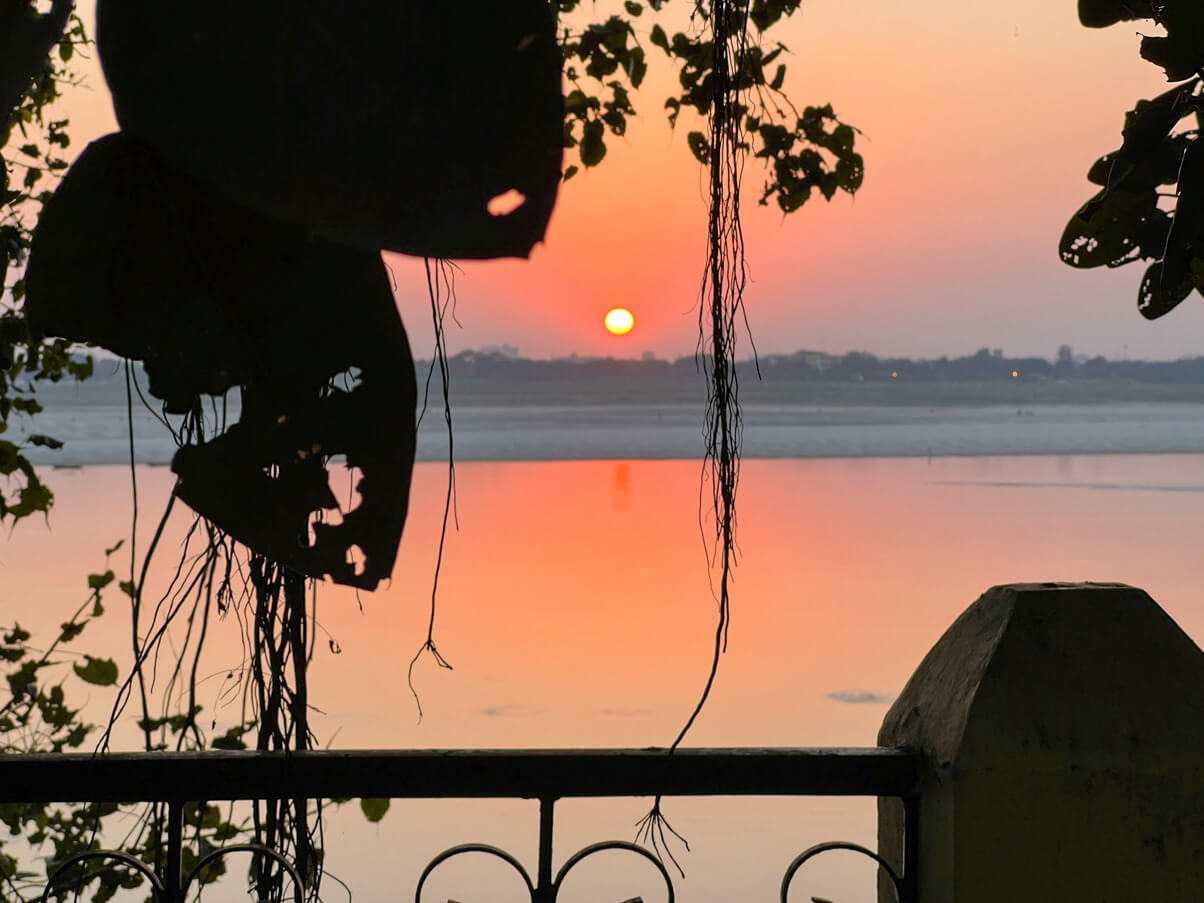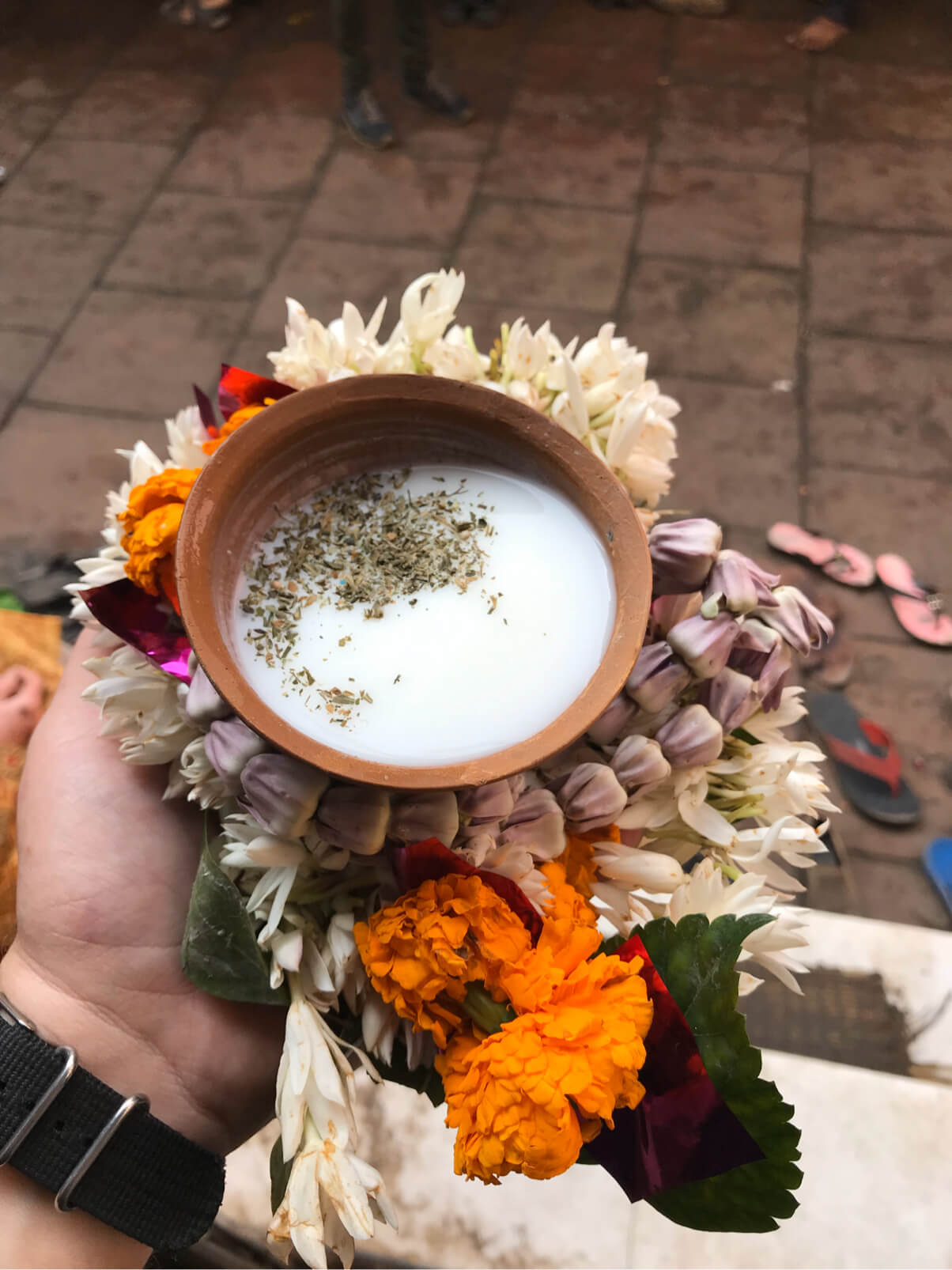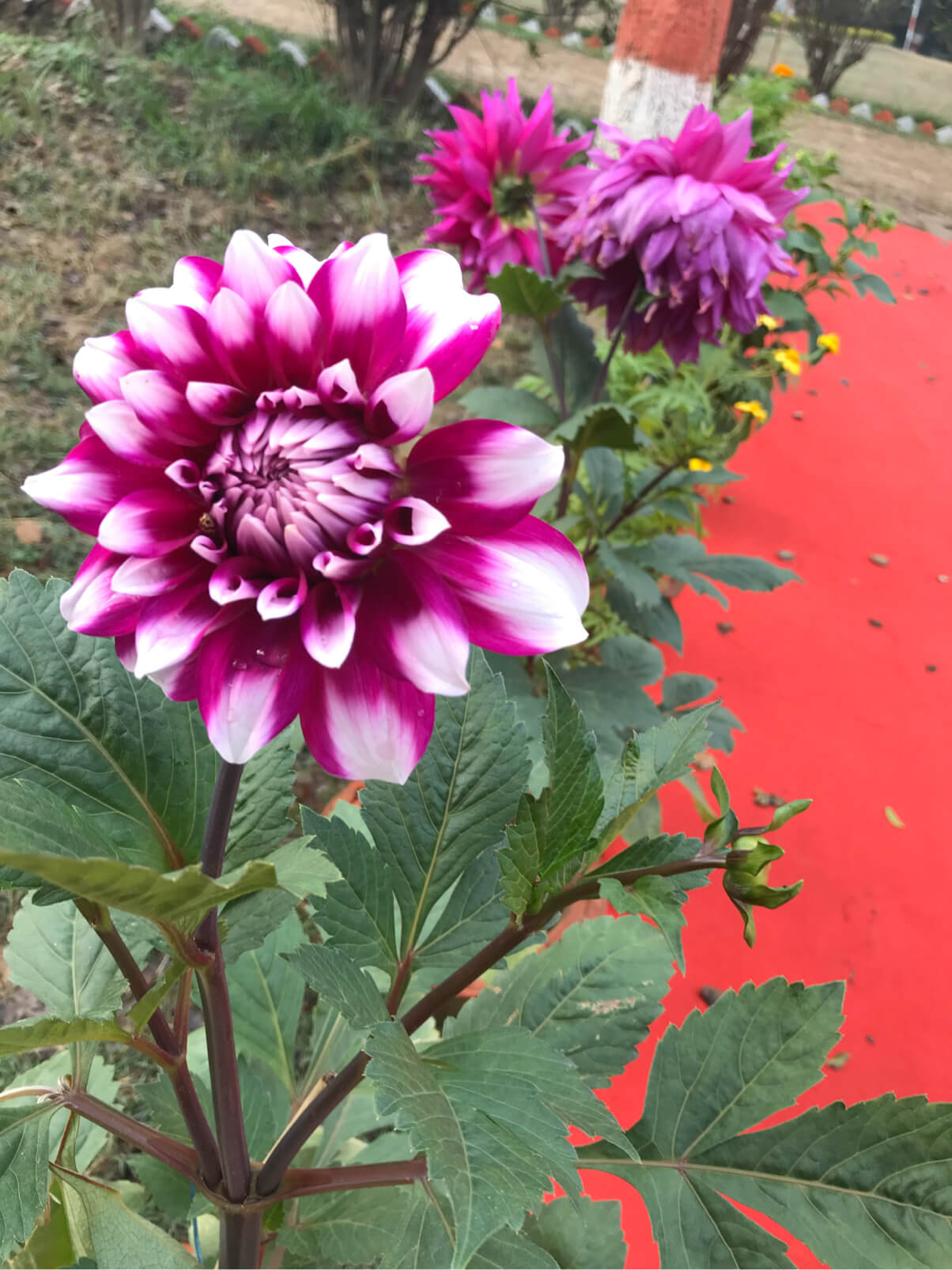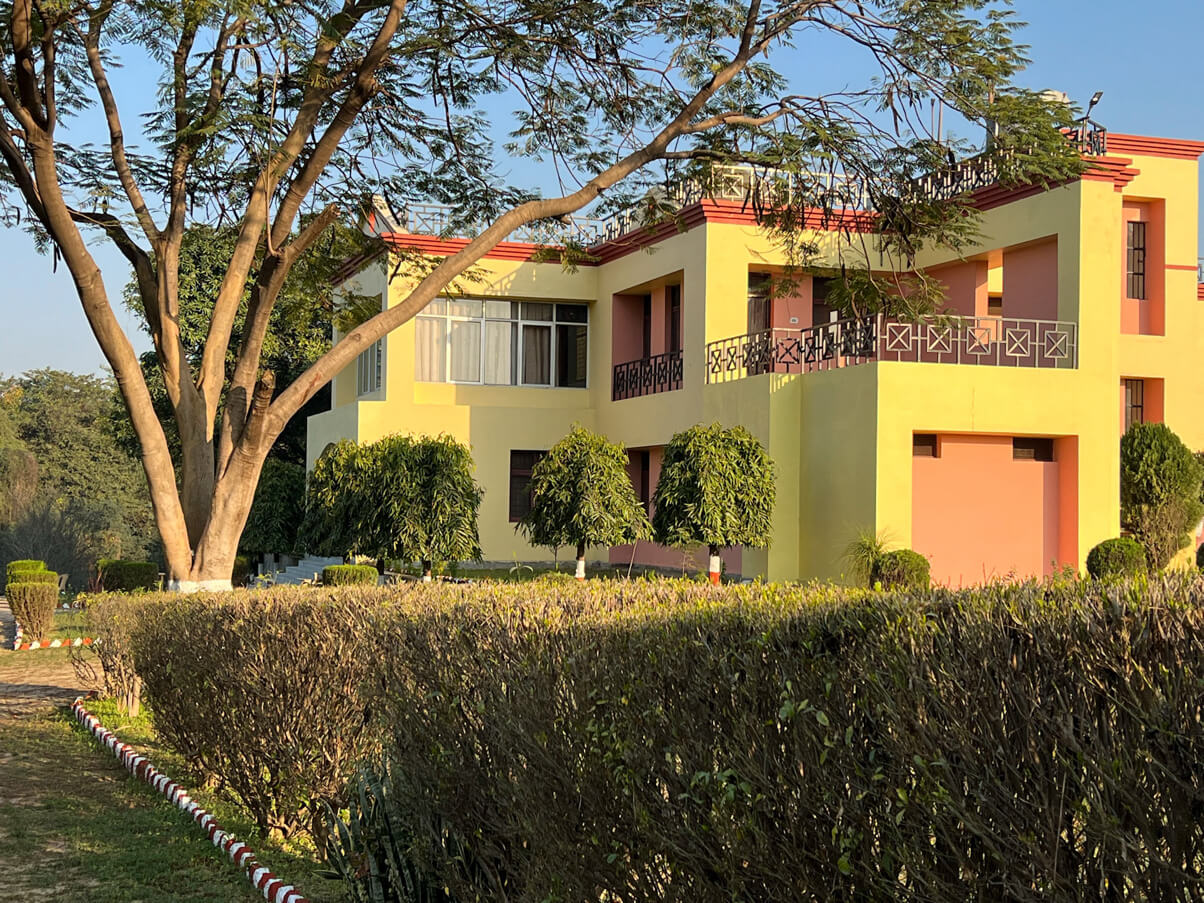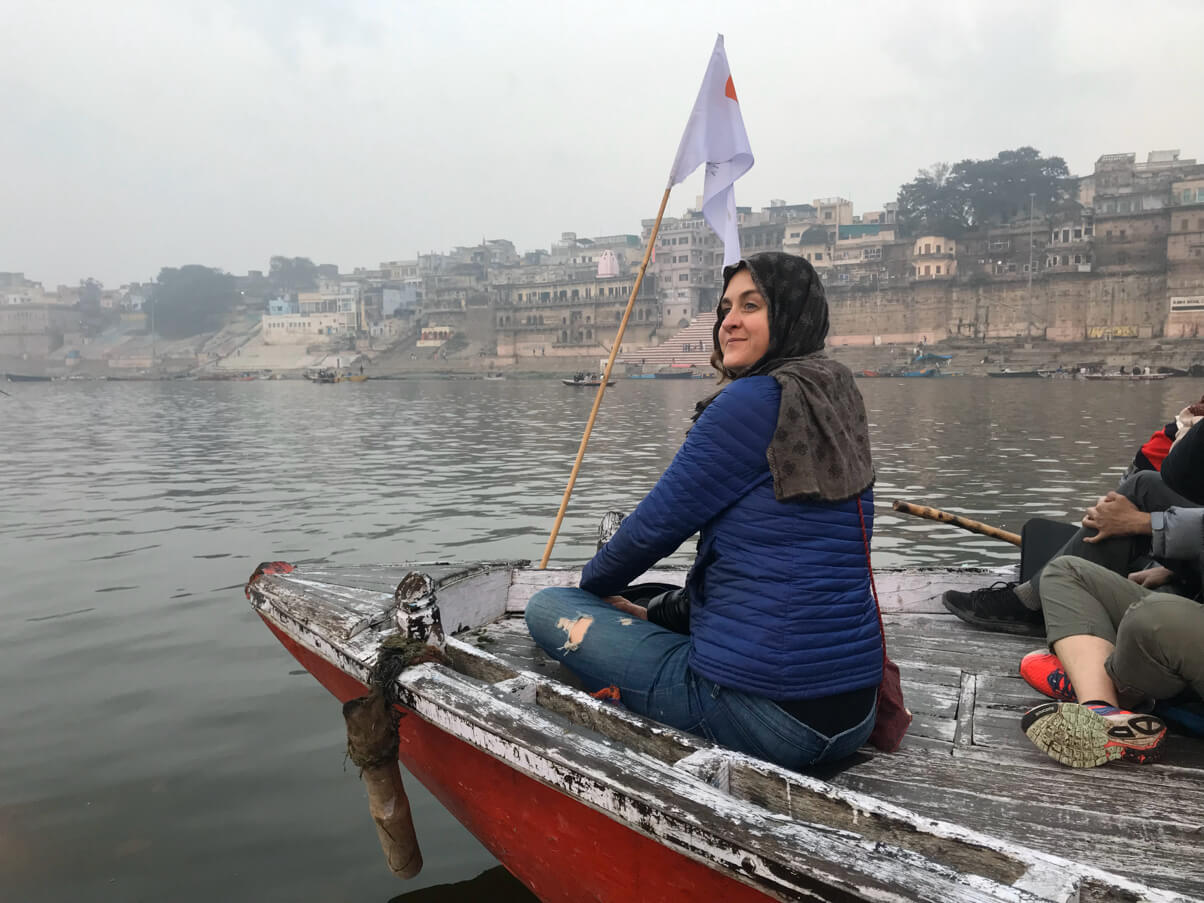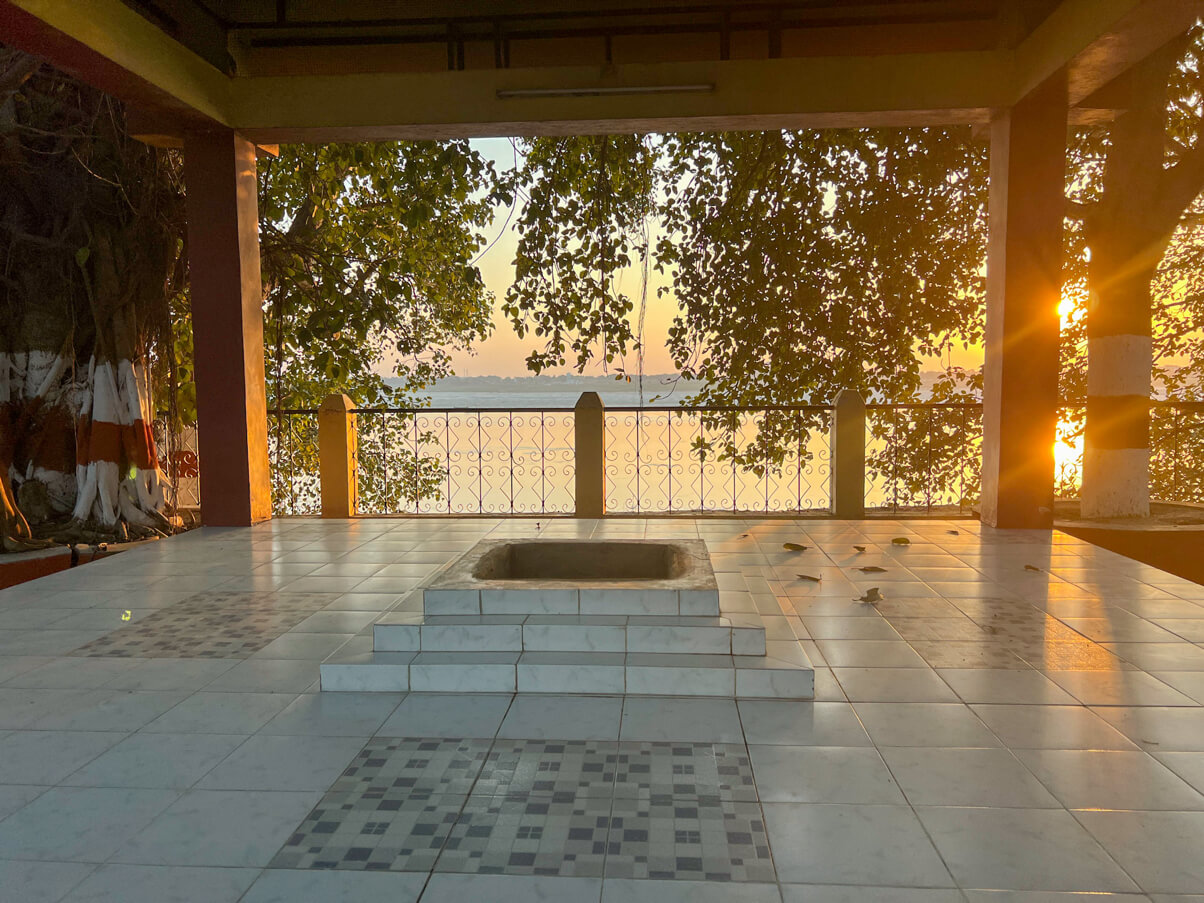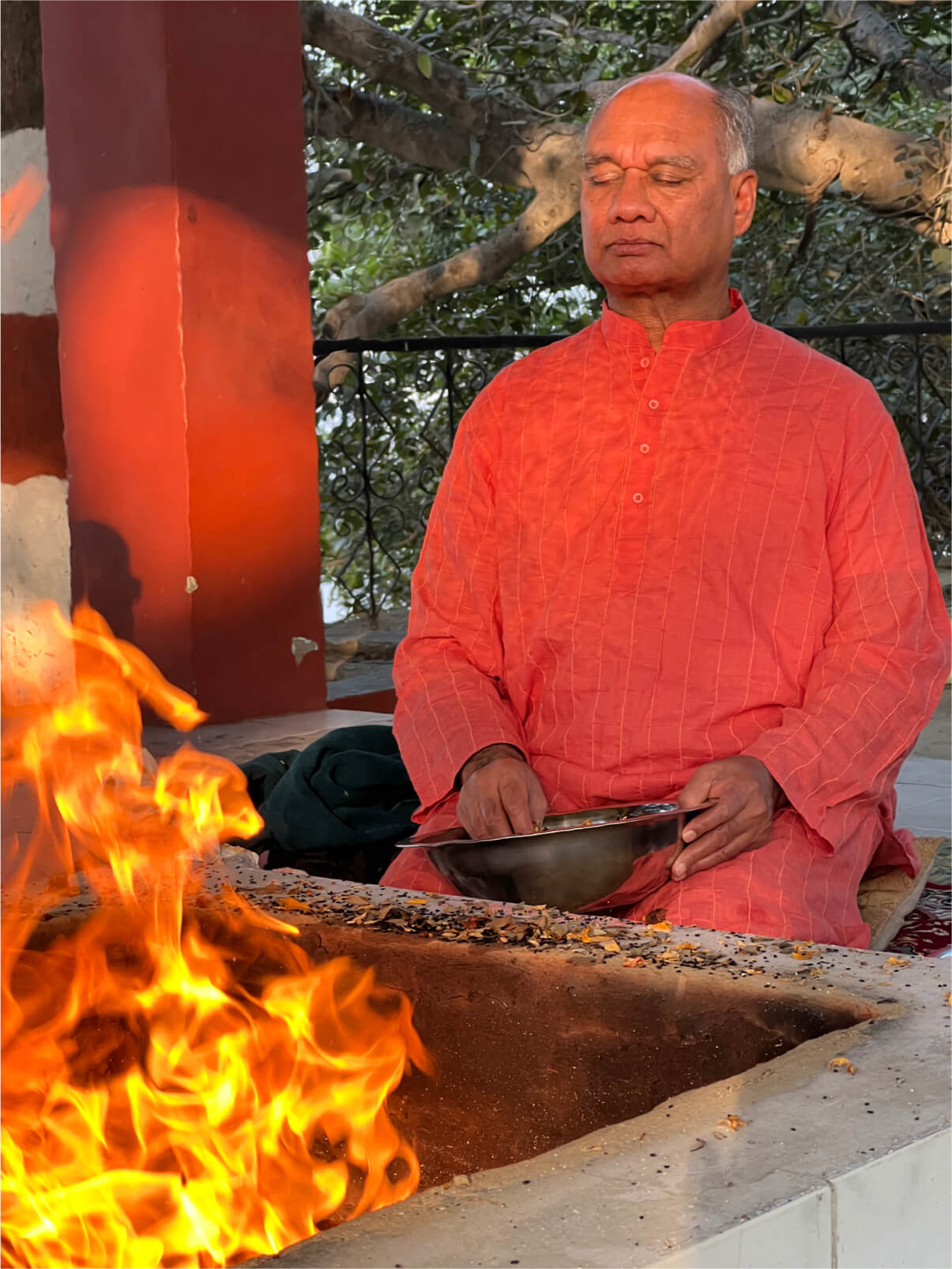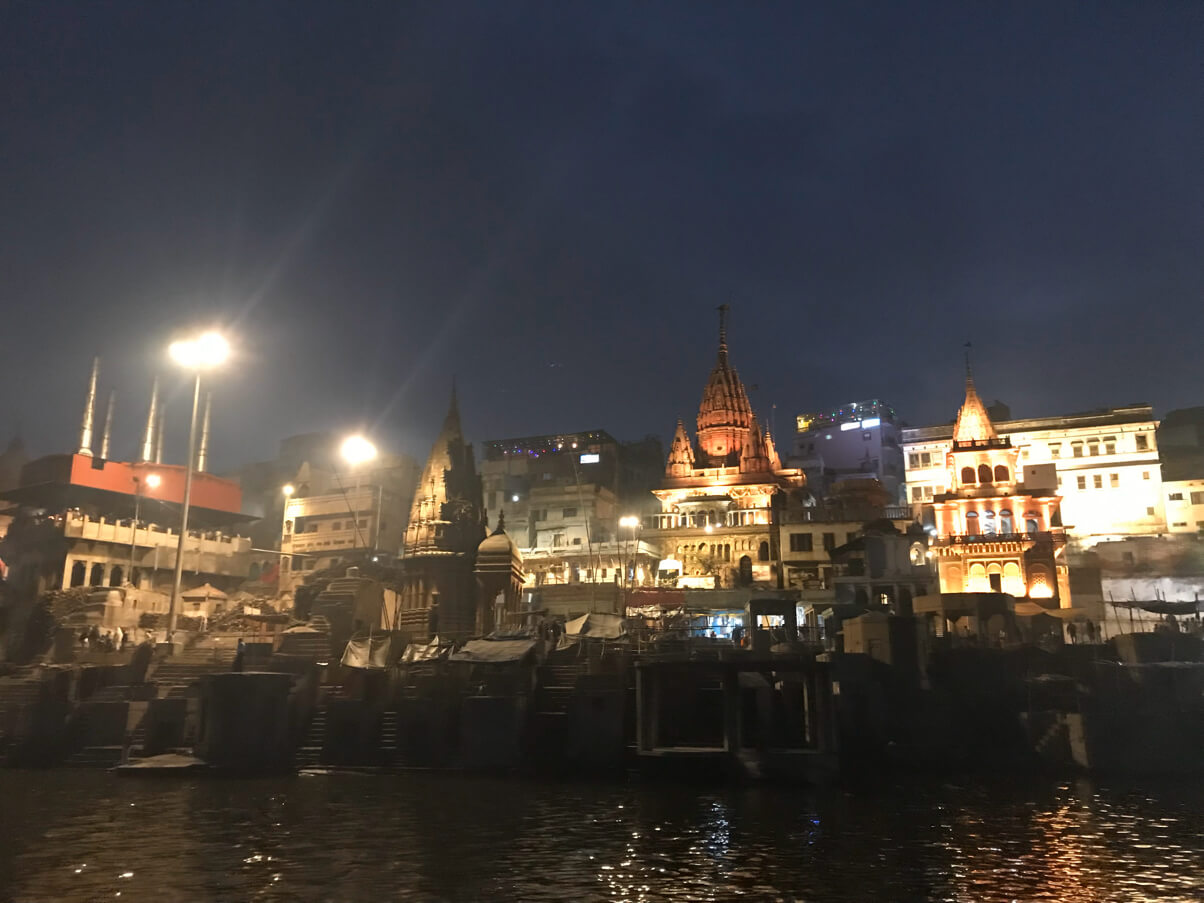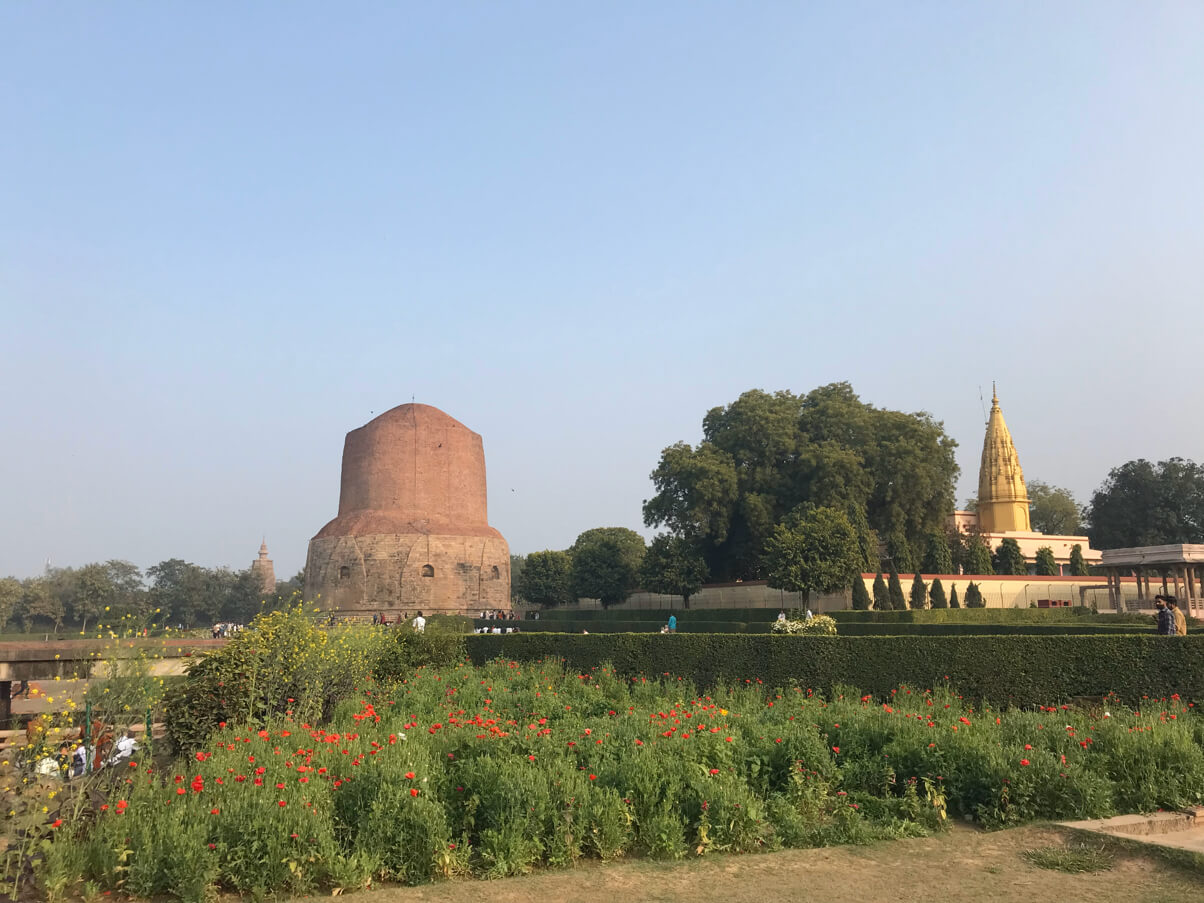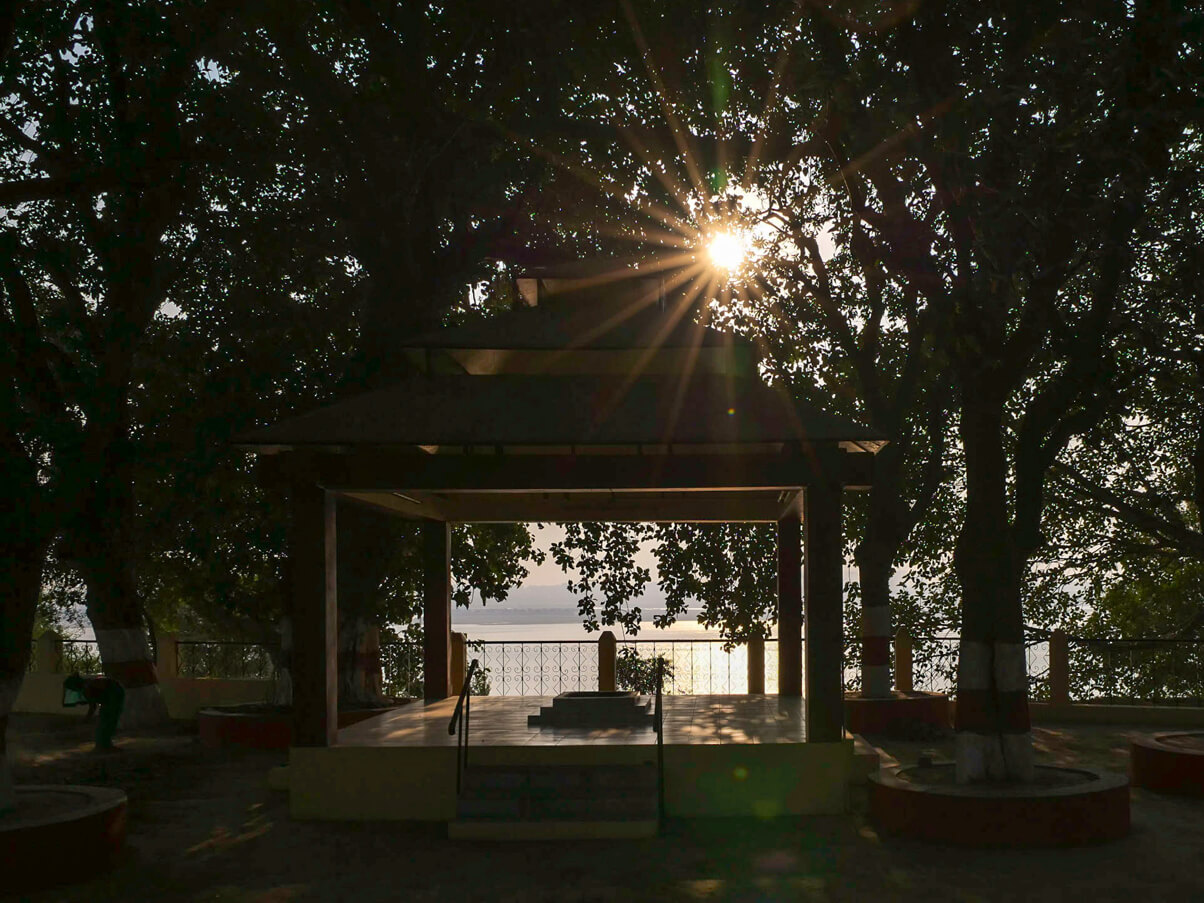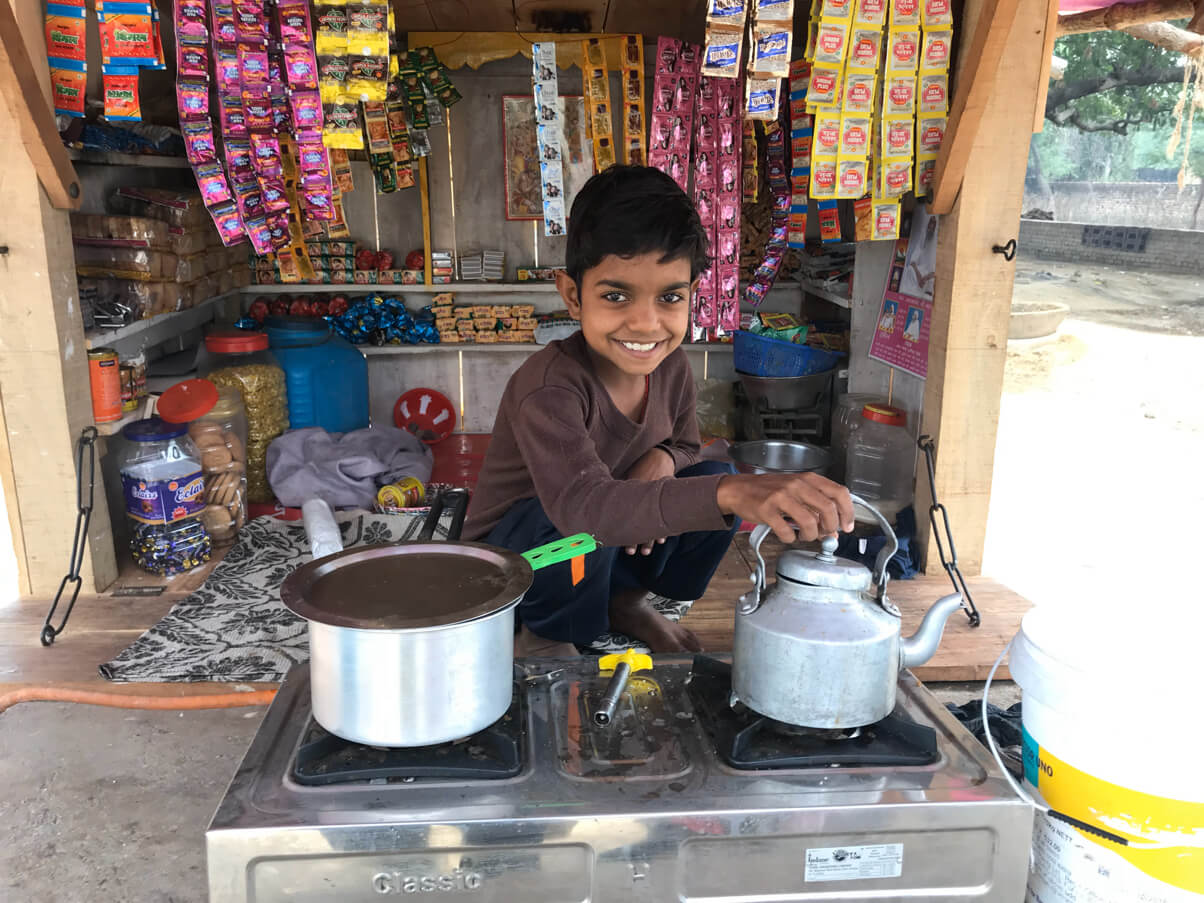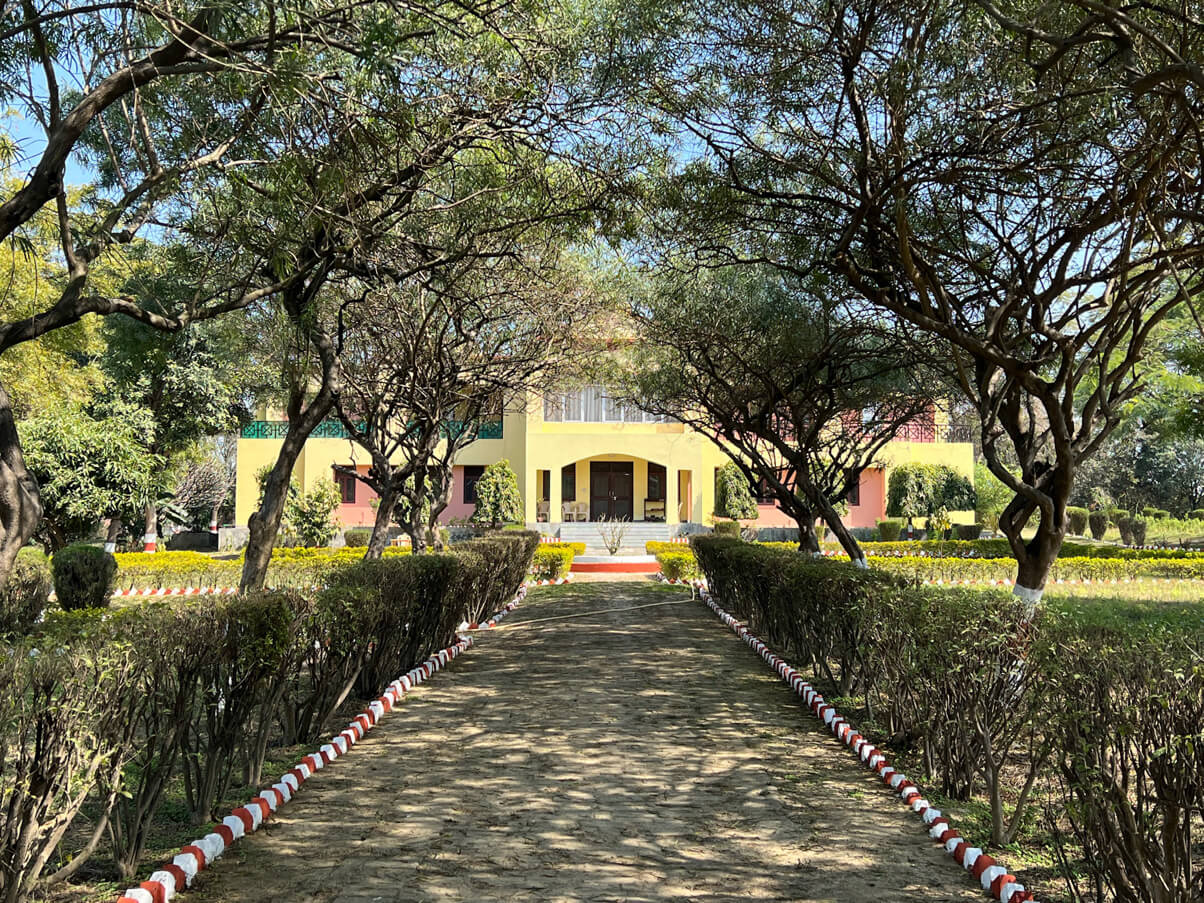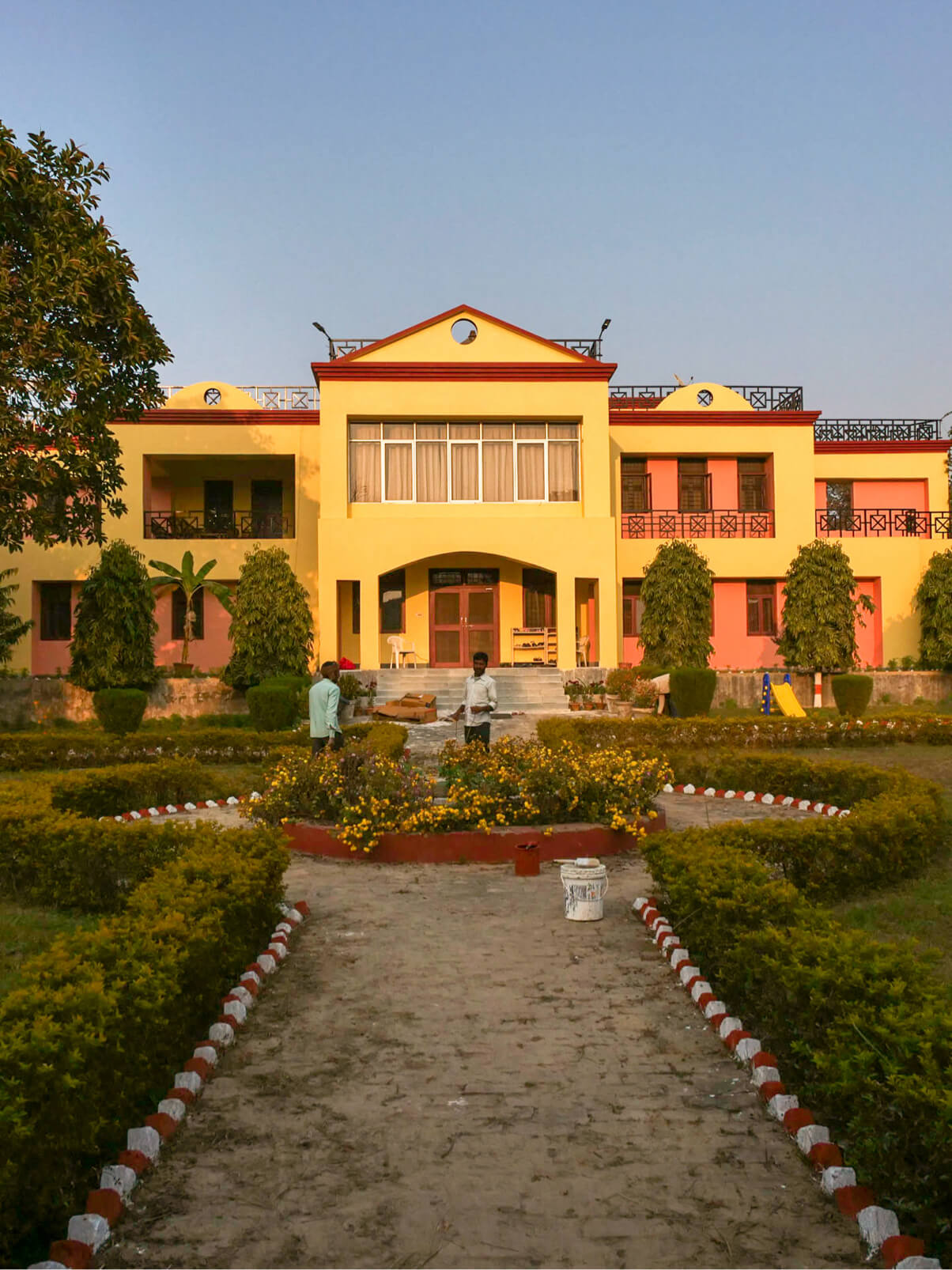Key Highlights
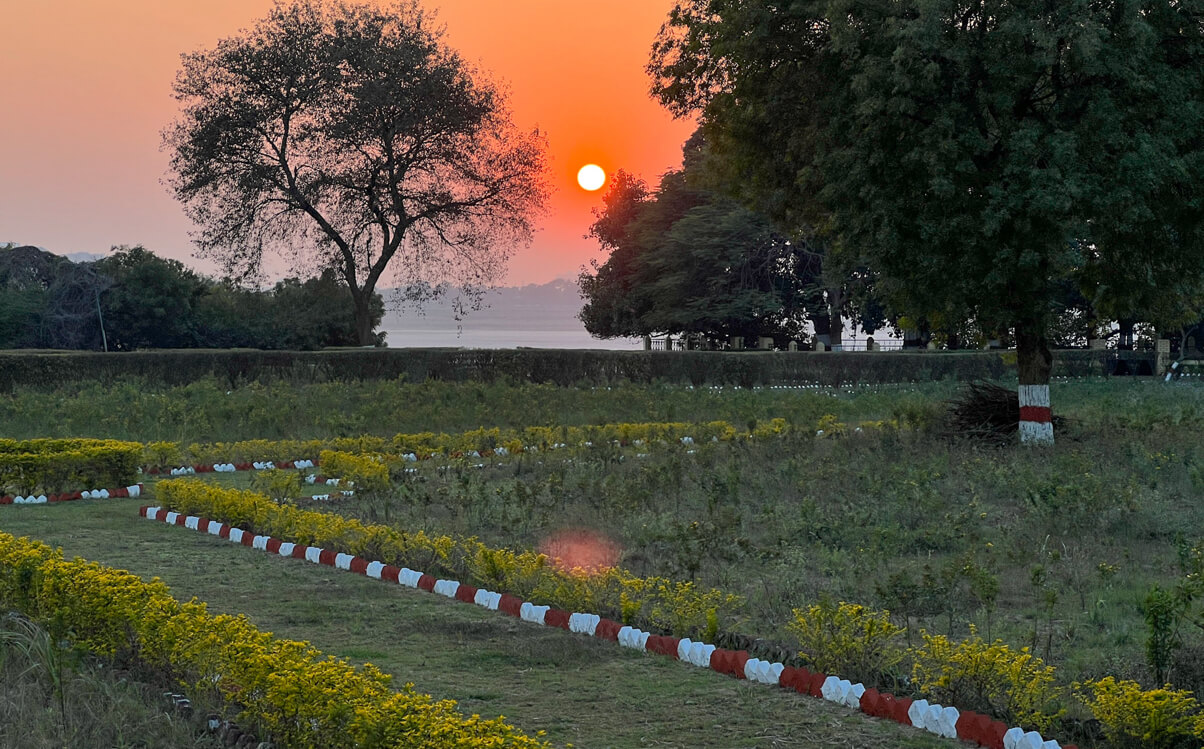
Prayagraj
- Rudra Yaga group practice | Undertake a highly potent 11-day group practice of Rudra Yaga, with daily havan, mantra recitation, and group meditation, under the guidance of Panditji and in the company of like-minded practitioners.
- Sacred space | Bask in the highly-charged sacred space of Prayagraj, the confluence of Ganga, Yamuna, and Saraswati rivers. Home to yajna (group practice) and the sages of the Himalayan tradition for millenia, this space is known as Tirtha Raja, lord of shrines.
- HI Prayagraj campus | The Himalayan Institute’s campus sits just one mile downstream from sangam (the sacred confluence), and has been potentized by 24 years of practice centered around Rudra Yaga. Beautifully landscaped with thousands of trees, gardens, and over 1 kilometer of Ganga-view waterfront, our 30-acre campus is an oasis of vibrancy and inner peace unlike any other.
- Day trip to Kumbha Mela | Experience the Kumbha Mela, held every 12 years as a grand gathering of various spiritual traditions of India for millenia.
- Day trip to key shrines of Prayagraj | Experience key tantric shrines of Prayagraj
- Day trip to Vindhyachal | Experience the vibrant shakti shrines of Vindyachal
- 8-part lecture series with Panditji | Imbibing the Forces of Protection, Guidance, and Stability
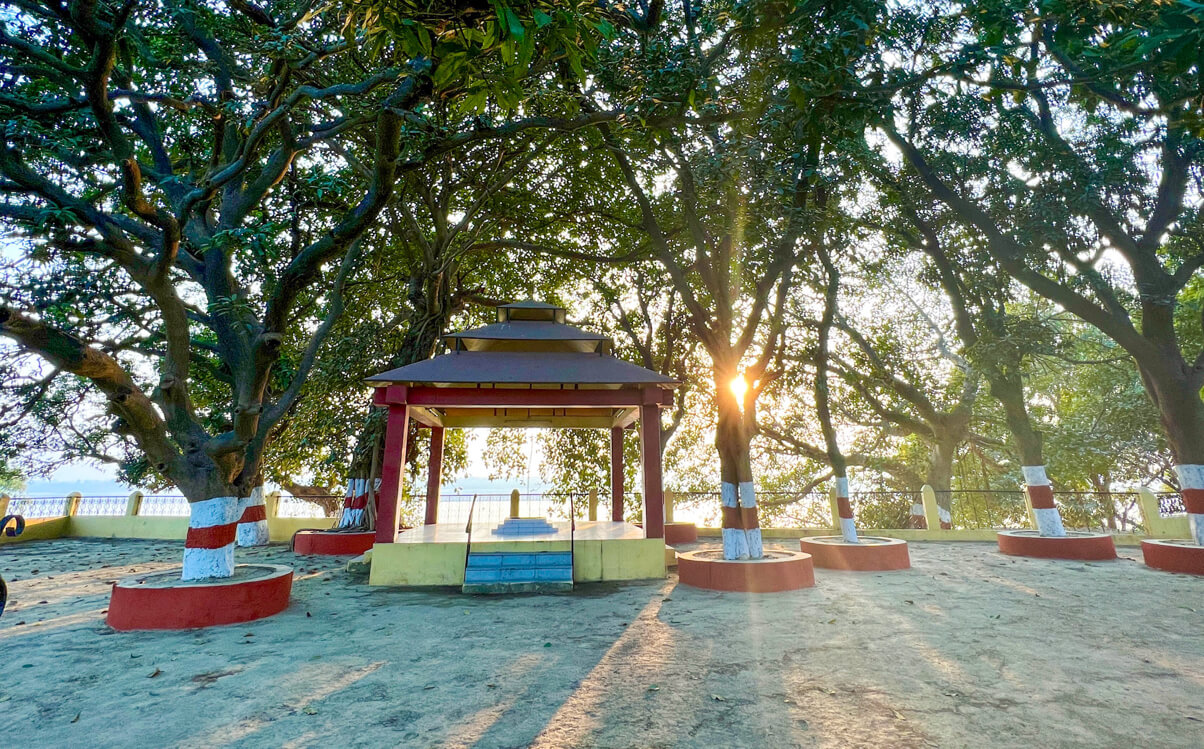
Lecture Series with Pandit Rajmani Tigunait, PhD
Imbibing the Forces of Protection, Guidance, and Stability
- Session 1 | The Daunting State of the World
- Session 2 | Sages’ Vision for Initiating a Change
- Session 3 | Protecting Our Personal Kumbha, the Vessel of Elixir
- Session 4 | Rudra Yaga — Group Practice for Invoking the Forces of Inner Protection
- Session 5 | Food for Rudra Yaga — Maitri, Karuna, Mudita, and Upeksha
- Session 6 | Tonic for Rudra Yaga — Seeing the Creator in Her Creation
- Session 7 | Walking in the Light of the Inner Guide
- Session 8 | Living a Safe, Stable, and Enlightened Life
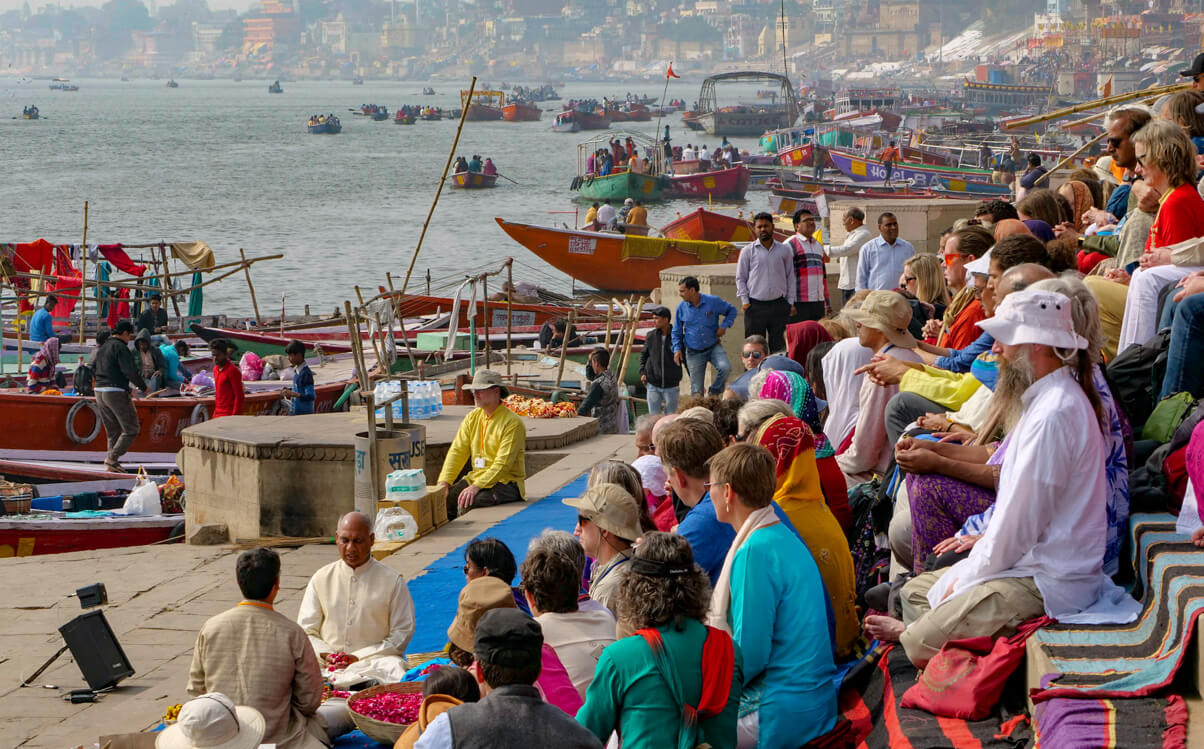
Varanasi
- Visit Marakandeshwar Mahadev shrine at the confluence of the Ganga and Gomati rivers, associated with the seer of the Maha Mritunjaya mantra, Markandeya
- Pilgrimage to prominent and lesser-known shrines of Varanasi, including Vishwanath, Annapurna, Vishalakshi (Sri Vidya), Kal Bhairava, and more.
- Undertake a portion of the traditional pilgrimage route around Varanasi known as the Pancha Koshi Yatra, anchored by visits to Kardameshwar and Kapileshwar shrines, dedicated to the sages Kardama (seer of Sri Sukta) and Kapila (master of Vishoka Meditation).
Itinerary
This is a realistic sample itinerary to show what a potential schedule might look like. Considering the broad hiking possibilities, and leaving room to adapt to a variety of circumstances, the exact itinerary will unfold on a day-by-day basis, with the exception of our fixed arrival time.
Accommodations
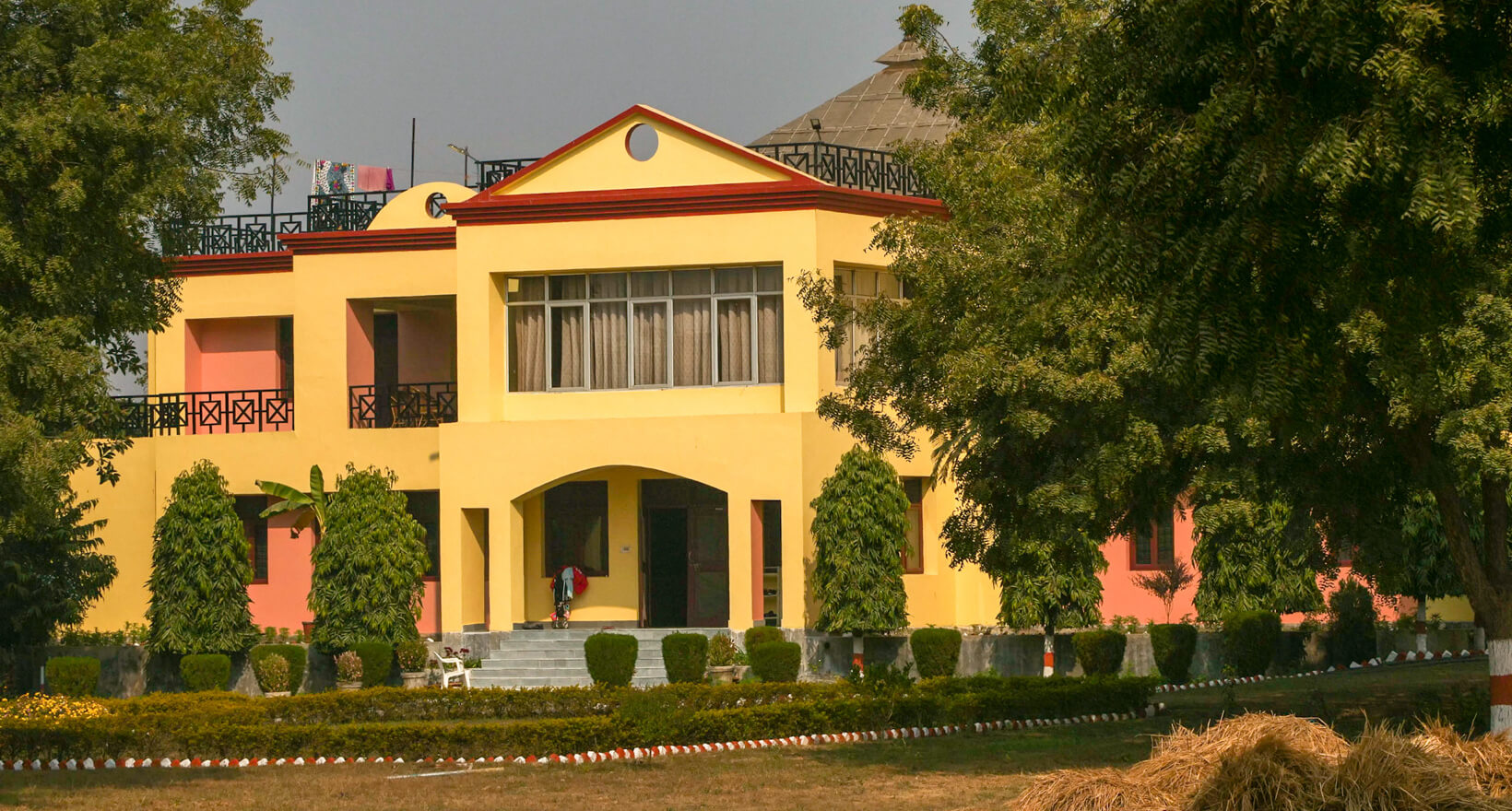
Accommodations at the Prayagraj campus are in triple occupancy rooms with attached en-suite bathrooms and 8-person dormitories with attached bathrooms in the main building and guest house. All rooms are single gender; participants will be assigned to a dorm or triple room based on availability. Due to space limitations we are unable to offer single rooms or private rooms for couples in Prayagraj. Accommodations are on a double sharing basis in Varanasi with an option for a single room upgrade.
About Himalayan Institute Prayagraj
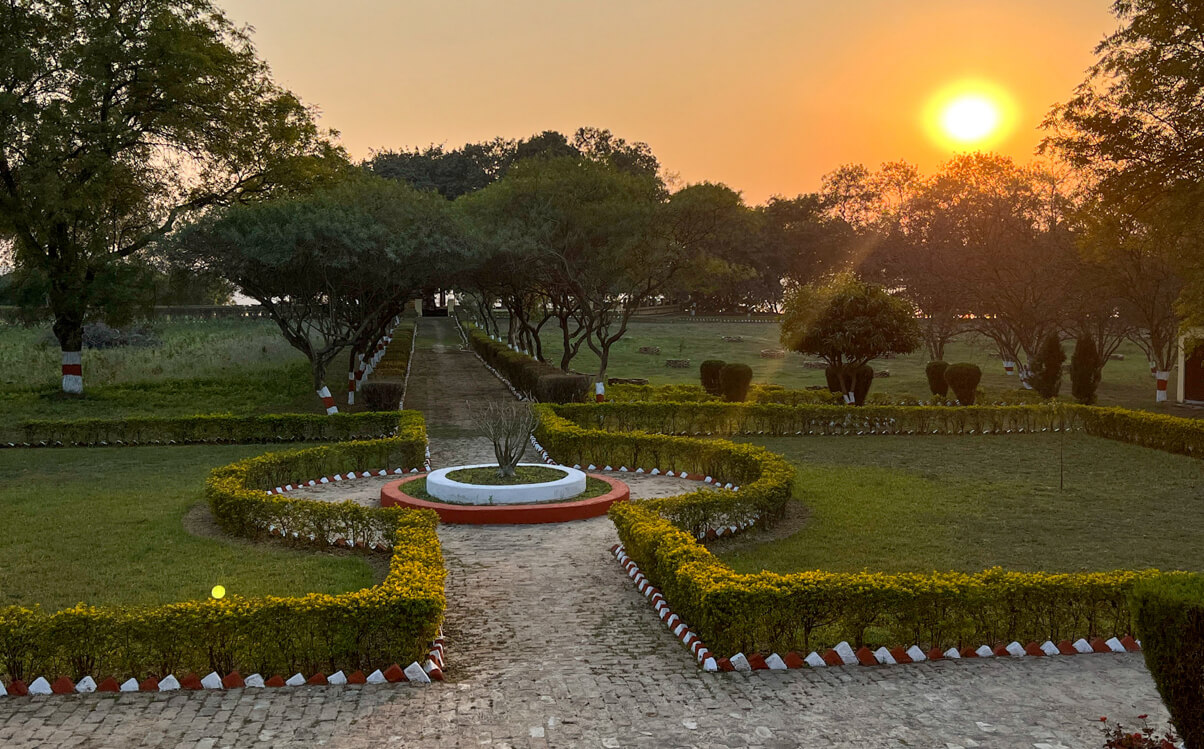
The Himalayan Institute’s campus at Prayagraj (Allahabad) was established in 2000 and inaugurated with 21-day Rudra Yaga with over 500 participants at 2001 the Maha Kumbha Mela. Landscaped with gardens, tree-lined hand-laid brick walking paths, and thousands of trees, this 30-acre campus is an oasis of natural beauty and spiritual vibrancy. Overlooking one kilometer of waterfront on the Ganga, the campus is just a few kilometers downstream from the sacred confluence (sangam) of the Ganga, Yamuna and mythical Saraswati rivers. The Sacred Grove overlooking the Ganga is the spiritual heart of the campus, and home to the havan kund (ceremonial fit pit) where we’ll practice the Rudra Yaga.
The main building serves as the primary guesthouse, with several guest rooms and dormitories, a dining room, meditation room, and lounge/library, and is located in direct alignment with the Sacred Grove and the Ganga. A second building on campus serves as an office and fulfillment center for Himalayan Institute Publications in India, with guest rooms on its second floor.
Excursion Leader
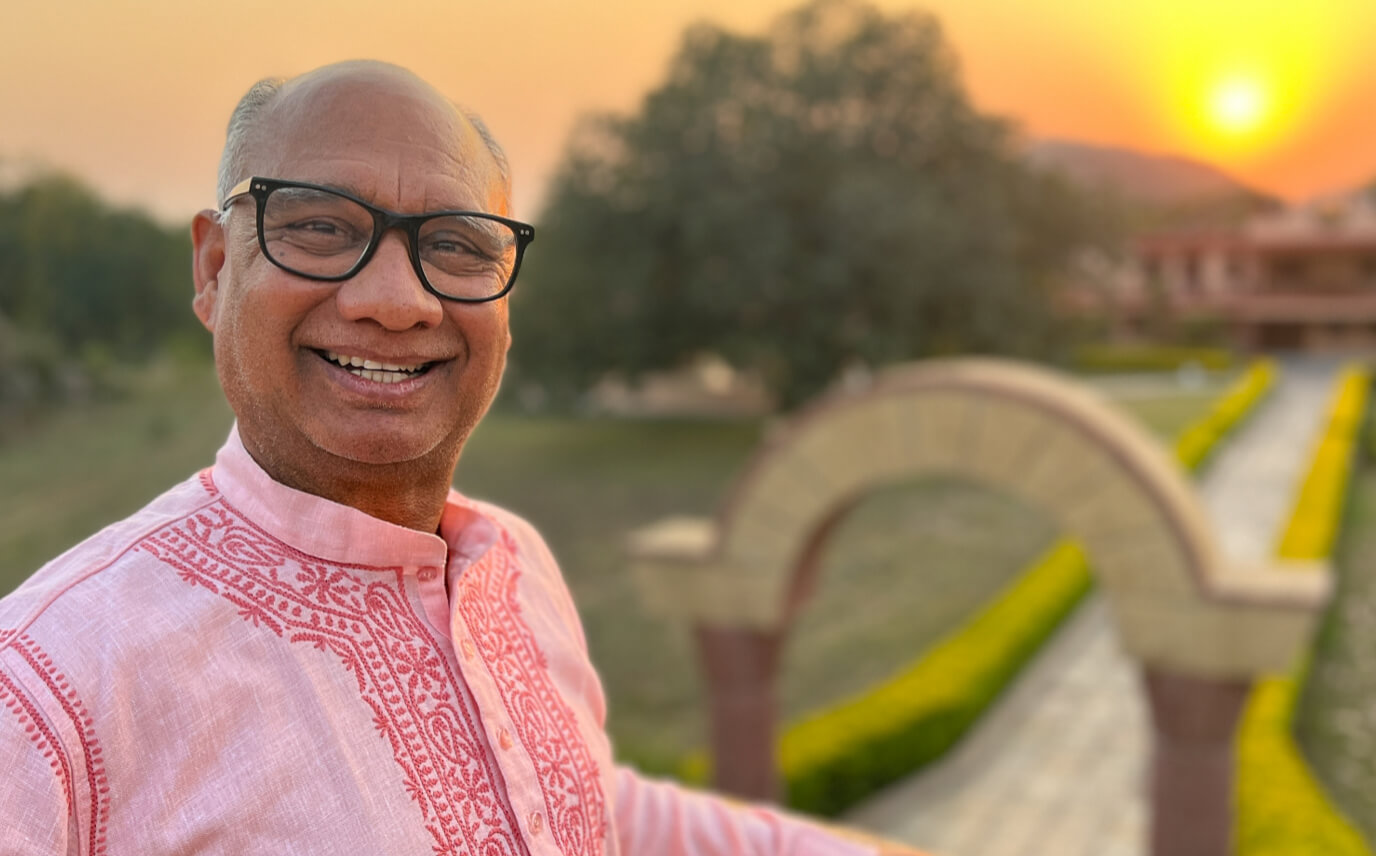
Pandit Rajmani Tigunait, PhD
Pandit Rajmani Tigunait, PhD, is a modern-day master and living link in the unbroken Himalayan Tradition. He is the successor to Sri Swami Rama of the Himalayas, and the spiritual head of the Himalayan Institute. As the author of numerous books, including his autobiography Touched by Fire: The Ongoing Journey of a Spiritual Seeker, Pandit Tigunait offers practical guidance on applying yogic and tantric wisdom to modern life. For over 40 years he has touched innumerable lives around the world as a teacher, humanitarian, and visionary spiritual leader. You can view more of his teachings online in the library of Himalayan Institute Online.
Pandit Tigunait holds two doctorates: one in Sanskrit from the University of Allahabad in India, and another in Oriental Studies from the University of Pennsylvania. Family tradition gave Pandit Tigunait access to a vast range of spiritual wisdom preserved in both the written and oral traditions. Before meeting his master, Pandit Tigunait studied Sanskrit, the language of the ancient scriptures of India, as well as the languages of the Buddhist, Jaina, and Zorastrian traditions. In 1976, Swami Rama ordained Pandit Tigunait into the 5,000-year-old lineage of the Himalayan Masters.
Dates & Prices
| Date | Price |
|---|---|
| February 1–16, 2025 | from $3,200 |
Call 1-800-822-4547 x5 or email [email protected] for more information.
